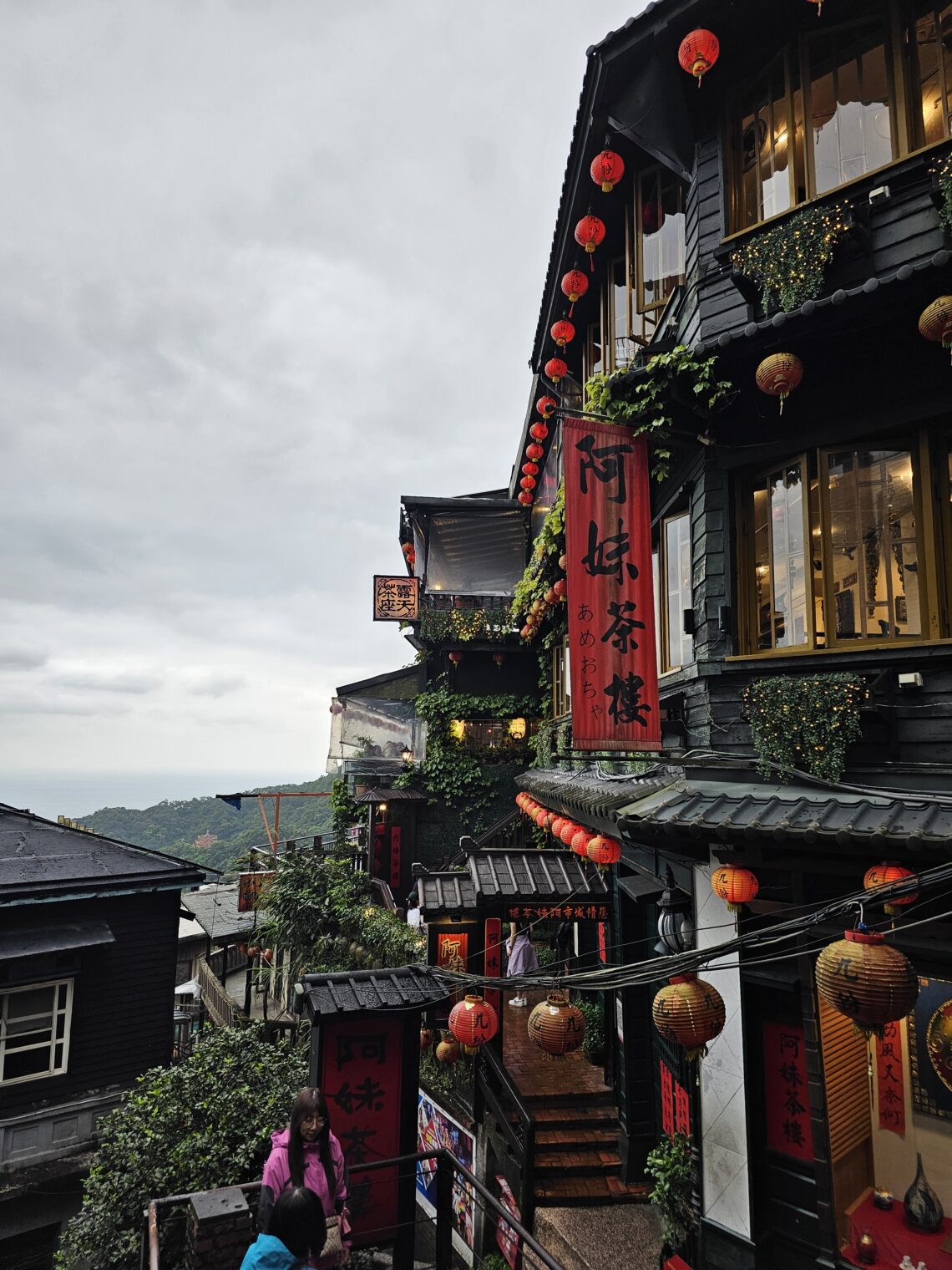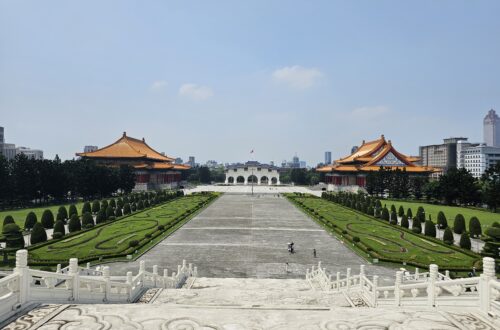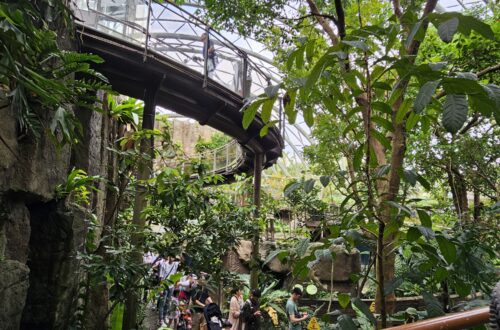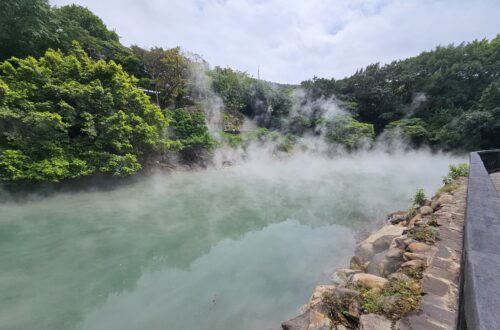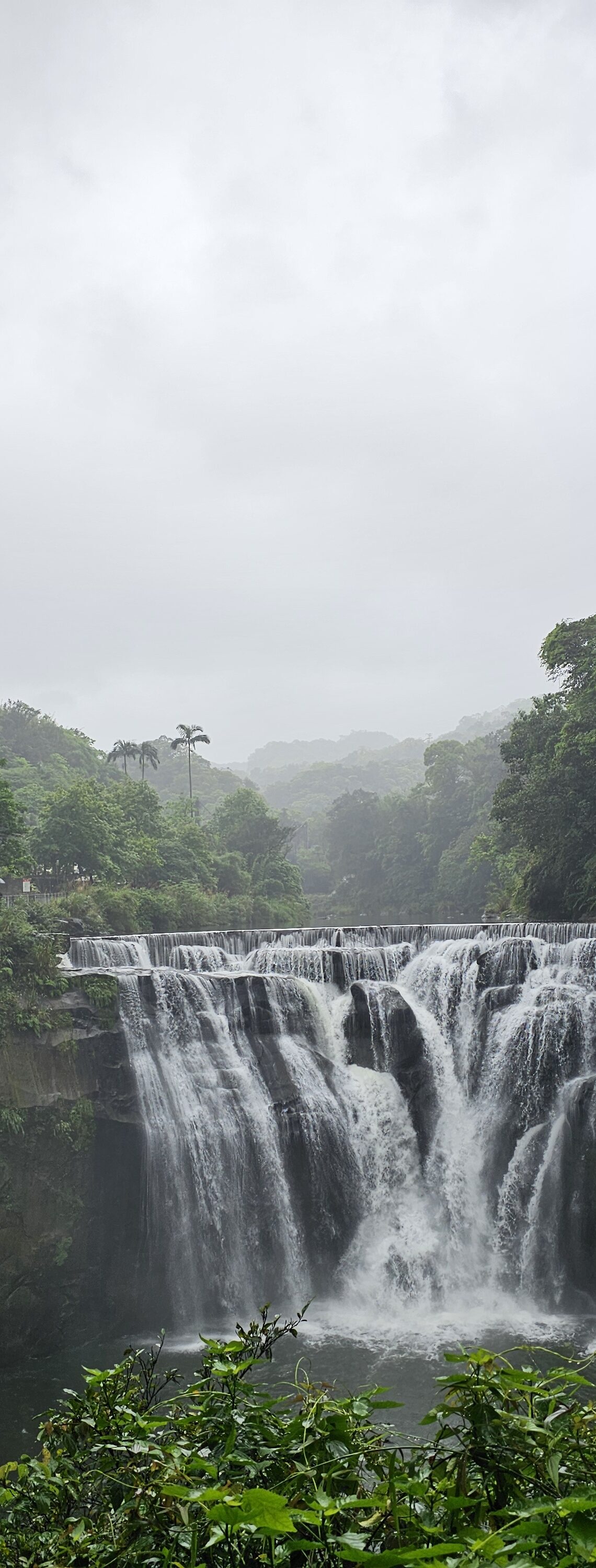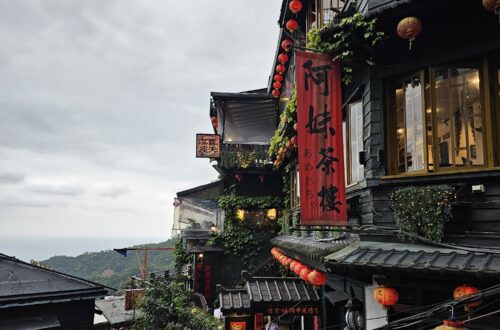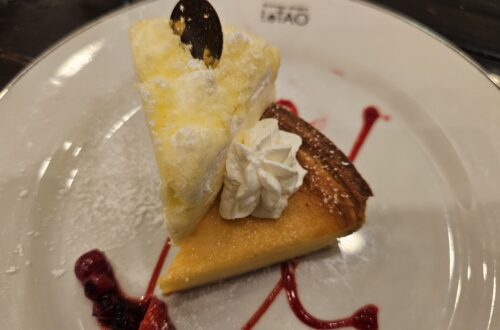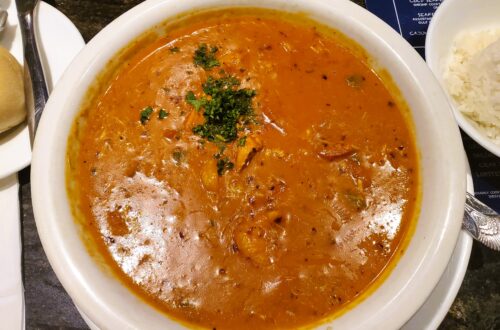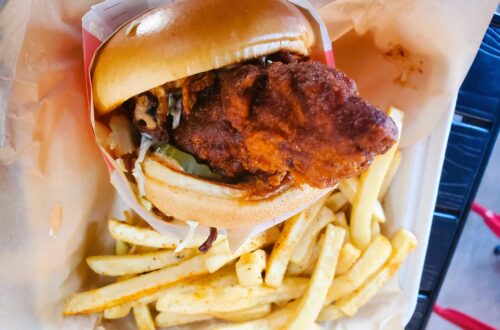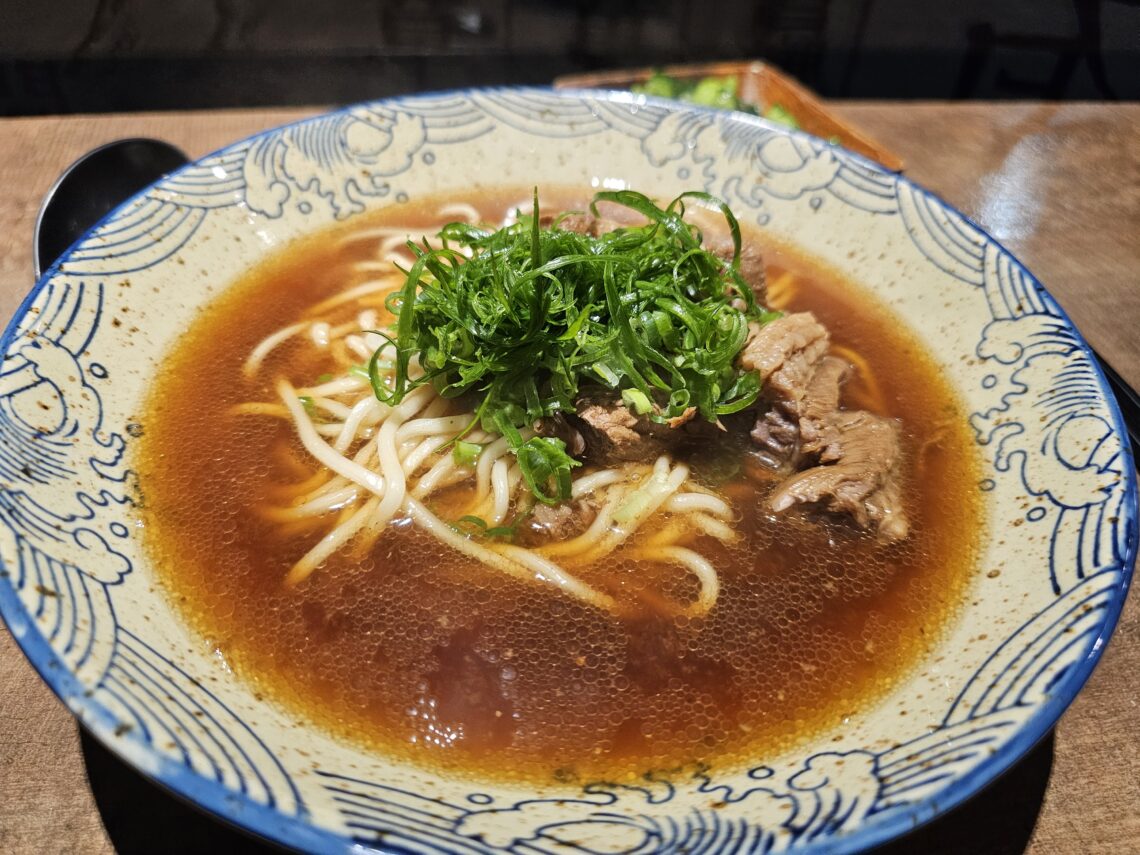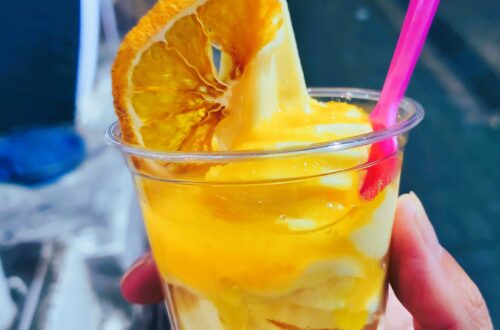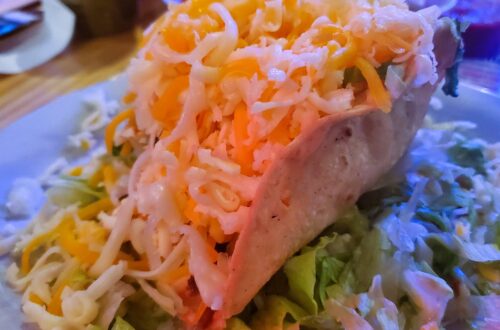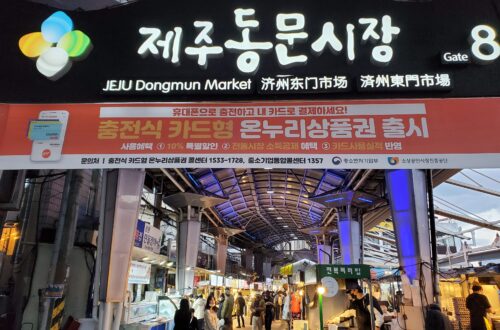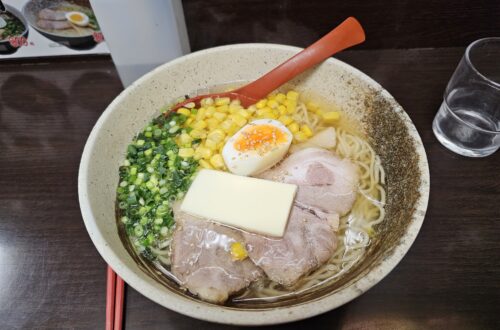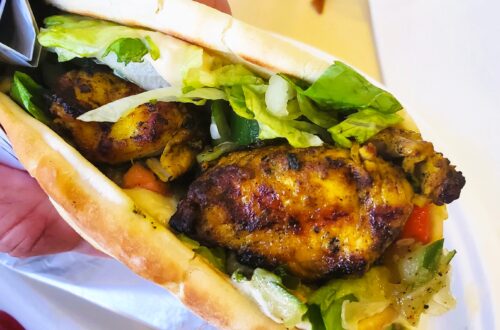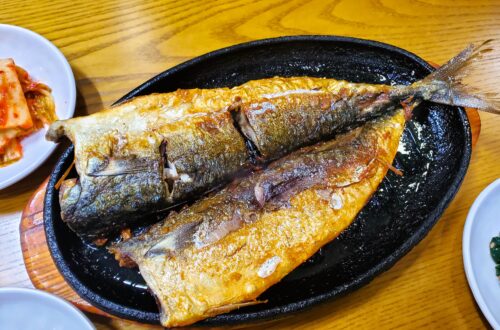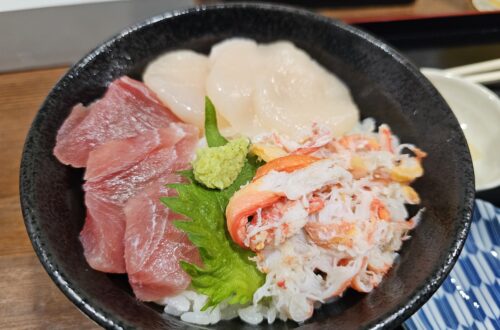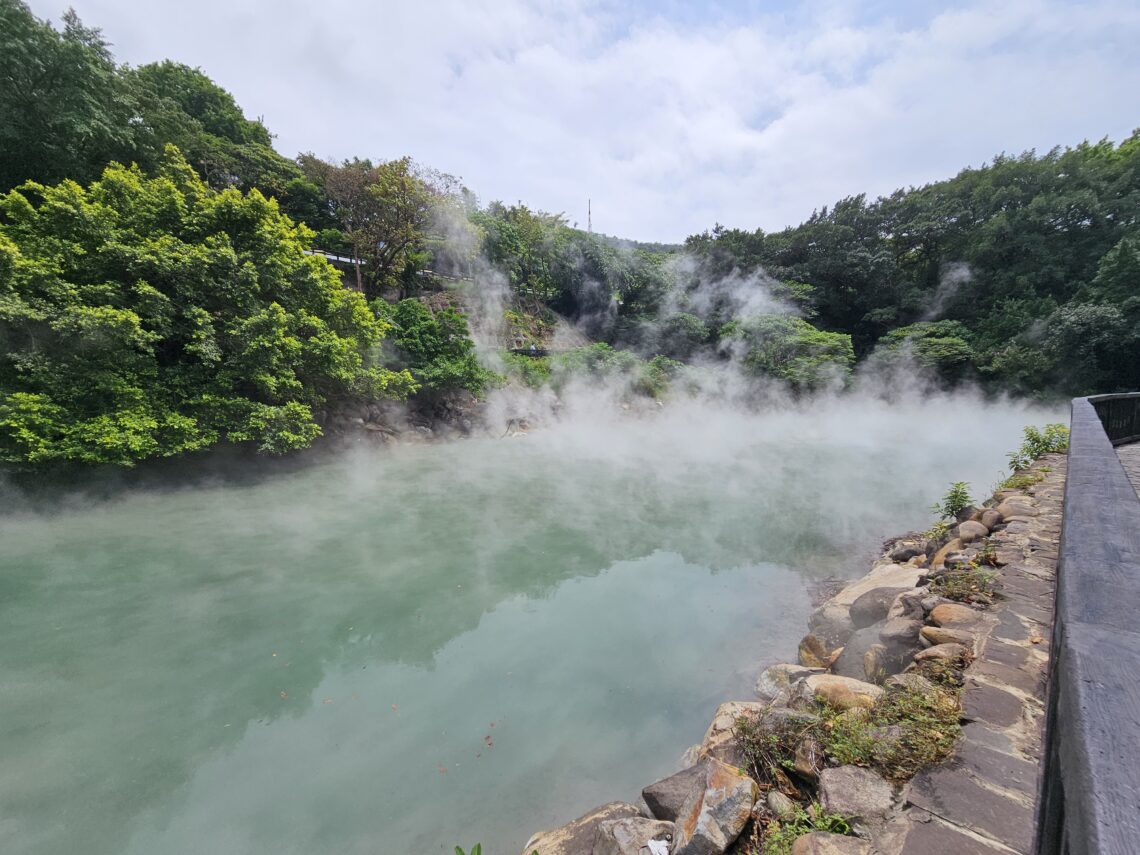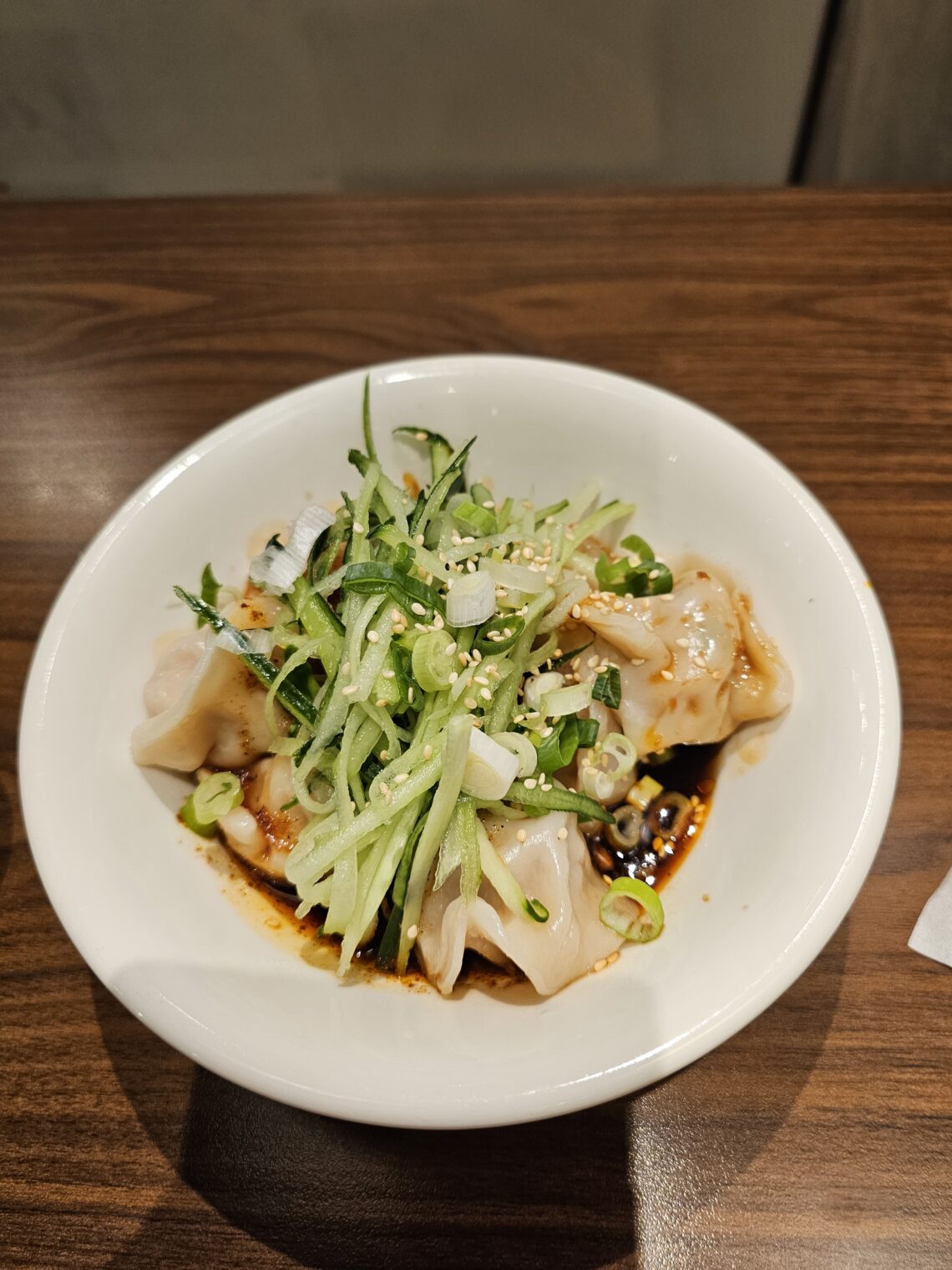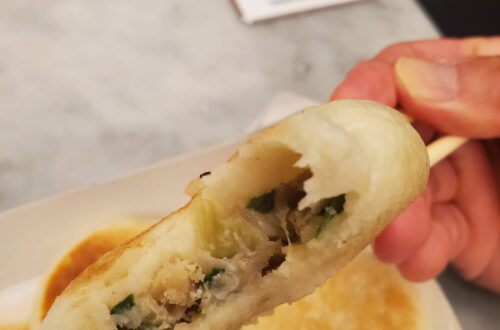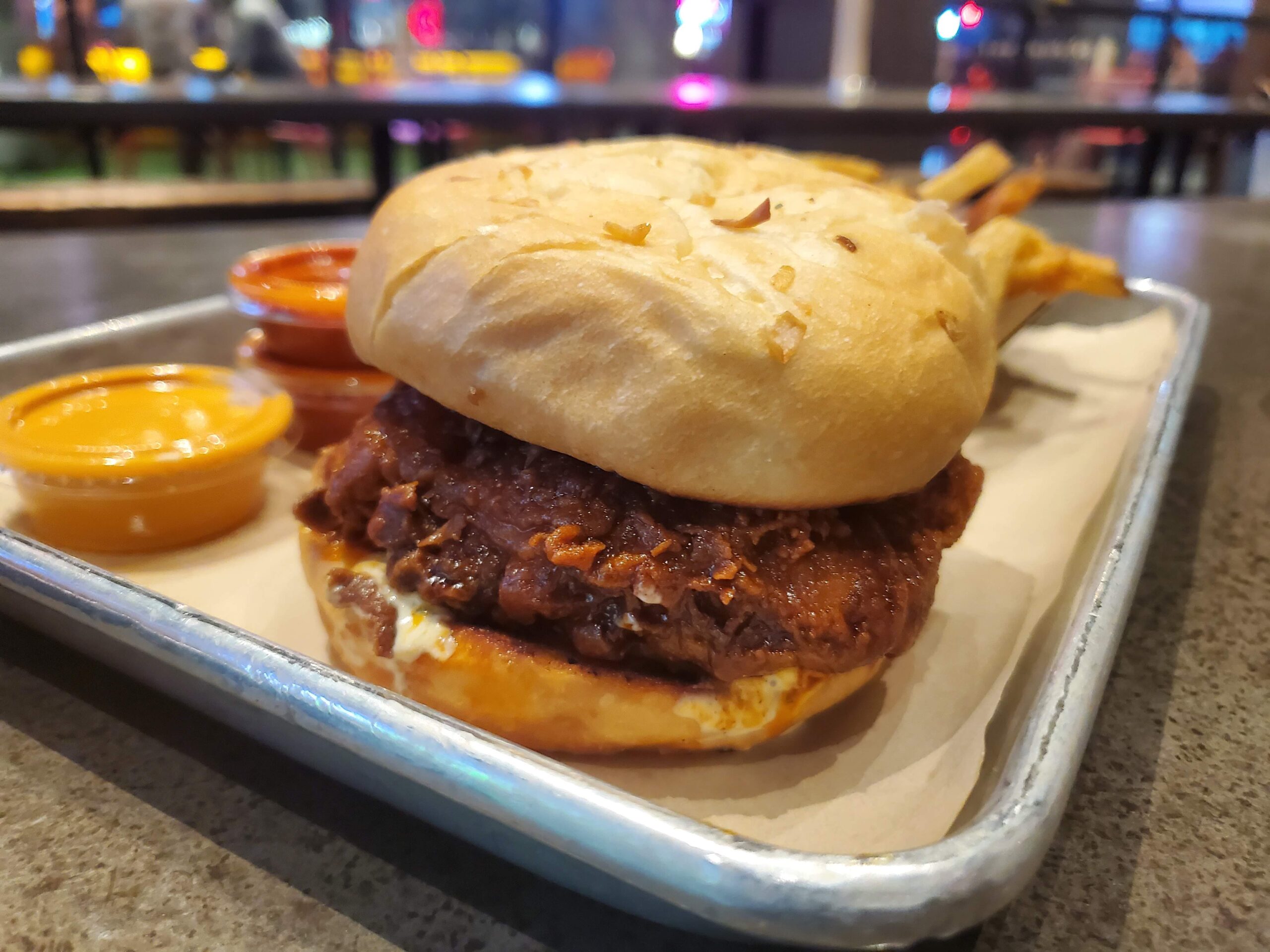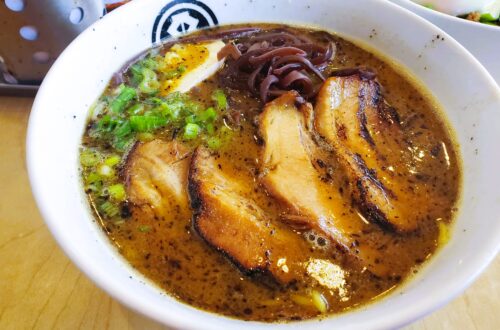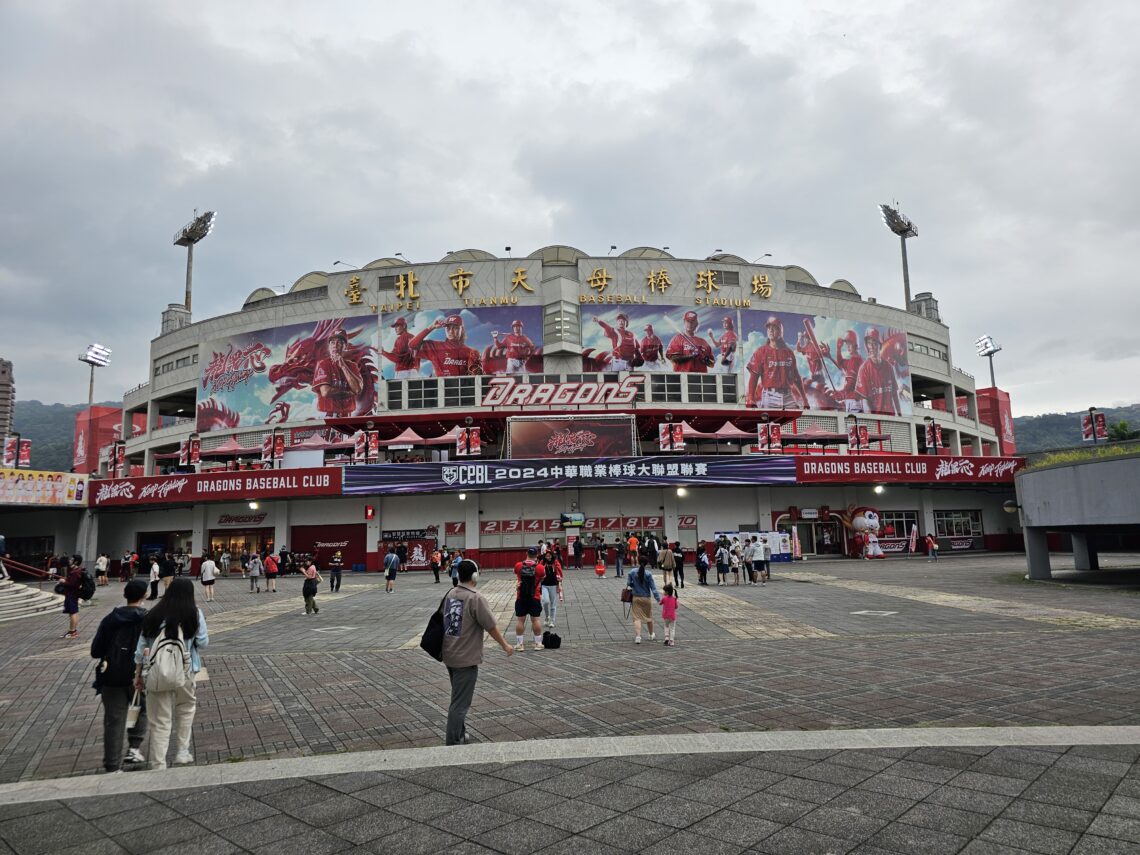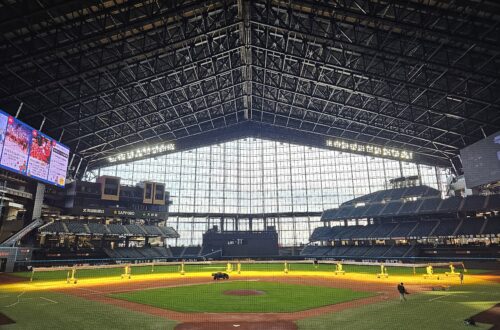-
Is The Popular Jiufen A Must-Visit In Taiwan?
Located in the Ruifang District of New Taipei City, Jiufen is a former goldmining village located in a seaside mountain area with the famous Jiufen Old Street as its main attraction.
It’s a very popular tourist spot in Taiwan and offers some incredible views of the sea. Jiufen itself, specifically the Old Street area, is very photogenic with the narrow alleyways and numerous red lanterns hanging all over the place. It’s a totally different vibe than Taipei.
Table of Contents
Why Is Jiufen Popular?
Located in the mountains, the town of Jiufen became extremely popular amongst tourists due to its similarity to the magical town in the famous animated movie Spirited Away. The similarities include the numerous illuminated red lanterns found in the movie which strongly resemble those found in Jiufen.
The movie’s famous director Hayao Miyazaki, has repeatedly shot down this rumor and insists the village found in Spirited Away is not based on Jiufen. This hasn’t stopped tourists from coming here in droves to witness it, since it does have similar vibes to what’s found in the movie.
Jiufen Old Street
Besides being known for looking similar to the village in Spirited Away, Jiufen Old Street in general is quite well-known. The street (it’s more of an alley) is chalk full of souvenir shops, food stalls, restuarants, teahouses, and even pottery stores. It branches off into other narrow alleyways with even more shops and various stores and stalls. You’ll encounter numerous steps going up and down while exploring through these alleys, so you will 100% get a workout in. Be ready for the steps!
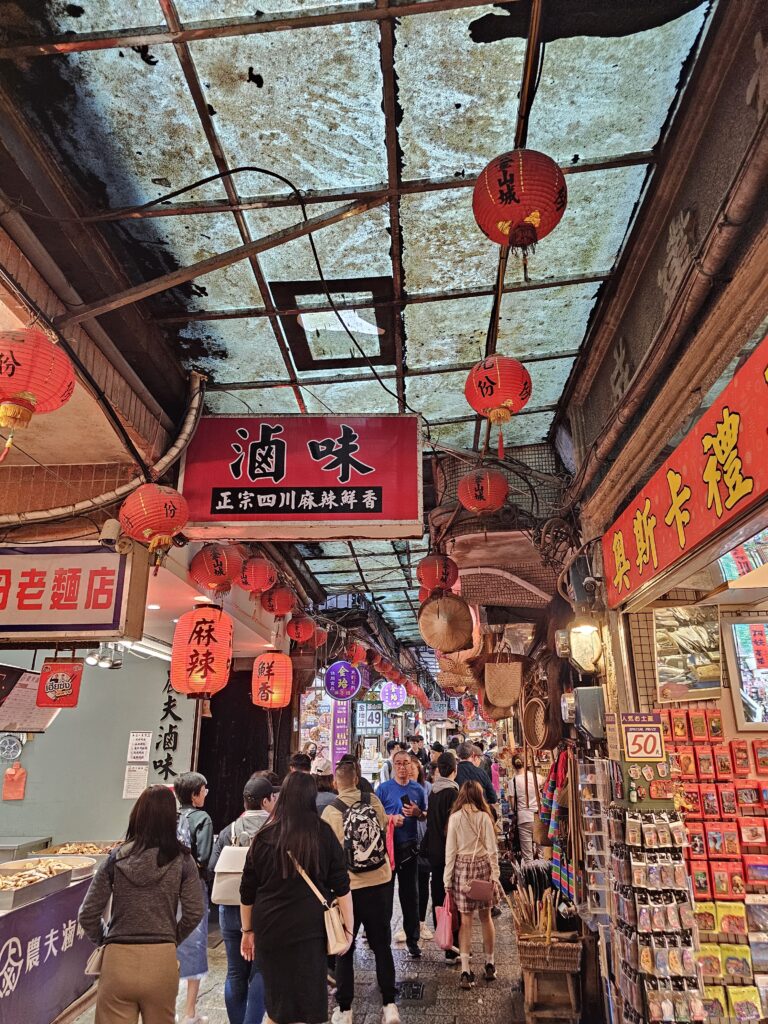
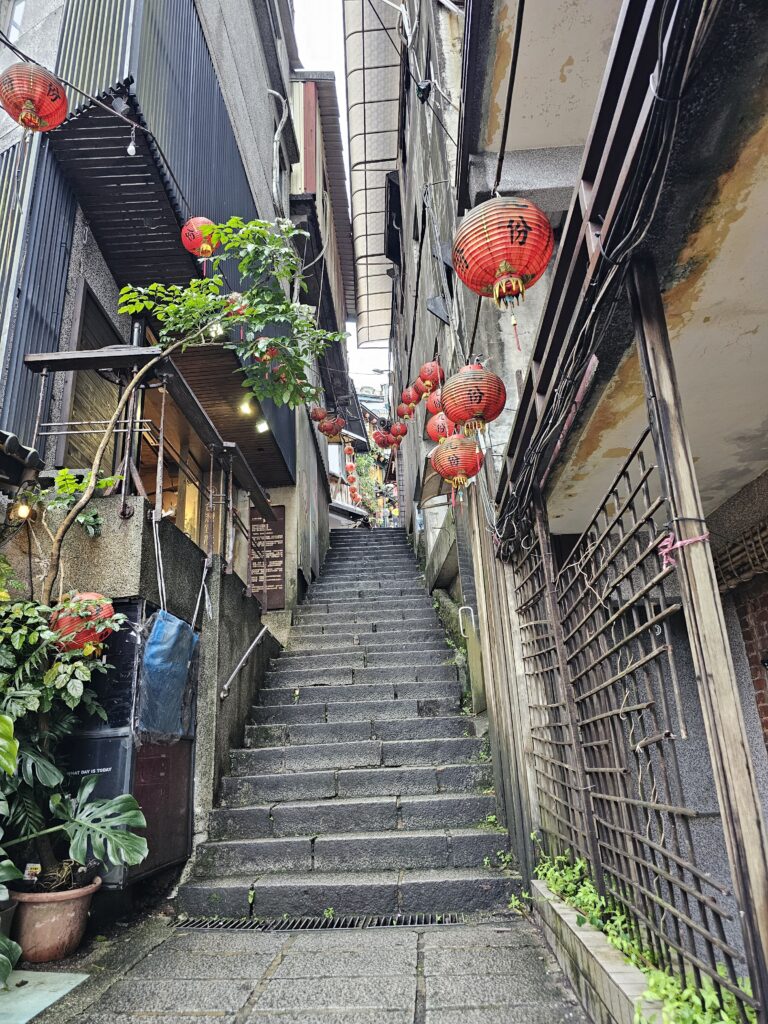
The street and the numerous alleyways are fun to meander through, get lost in, while embracing the uniqueness of the atmosphere and the surroundings. Spirited Away may not be based on this wonderful village, but if you’ve seen the movie you can see the similarities.
The Food
There’s a ton of food options on Jiufen Old Street. It all comes down to preference and what you may be either looking to try or craving. So far during my trip I hadn’t had the famous braised pork rice bowl, that’s one of the most popular dishes in Taiwan. I figured why not give it a try while exploring Jiufen?
I came across a place serving braised pork rice pretty early on while walking into the Old Street. I was quite hungry so decided to stop by and get my first taste of this famous dish.
With this being my first bowl, I wasn’t sure if all the toppings and trimmings included on this bowl were the standard or not, but this had spinach, tofu, egg, braised pork, and mustard greens over a bed of rice. The bowl was only (110 NTD, $3.12 USD), so certainly a solid price for a meal in a super touristy area.
The food itself was pretty solid. Nothing too mind boggling good, but this is a tourist area, so can’t complain too much. The bits of pork were pretty fatty and juicy and melted in my mouth. There wasn’t too much of the pork though. The sauce that covers the pork is slightly sweet, but not an overwhelming flavor. The rest of the toppings added different textures, the egg and mustards greens were my faves of the bunch, overall the toppings were enjoyable and added value to the bowl as compliments to the braised pork.
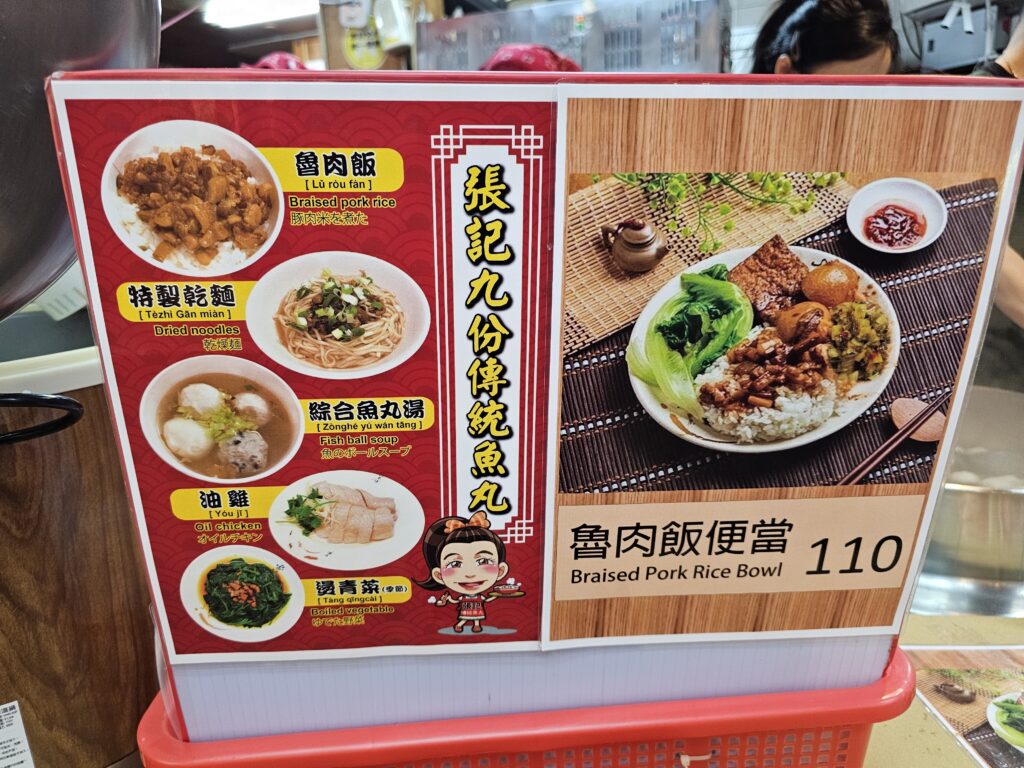
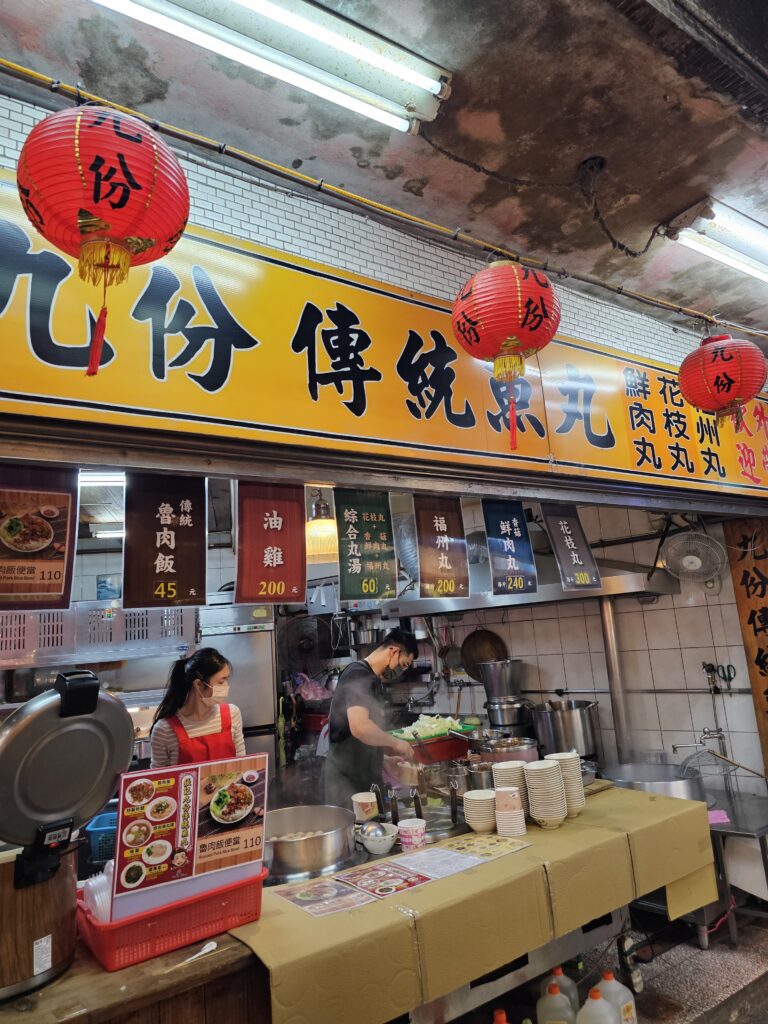
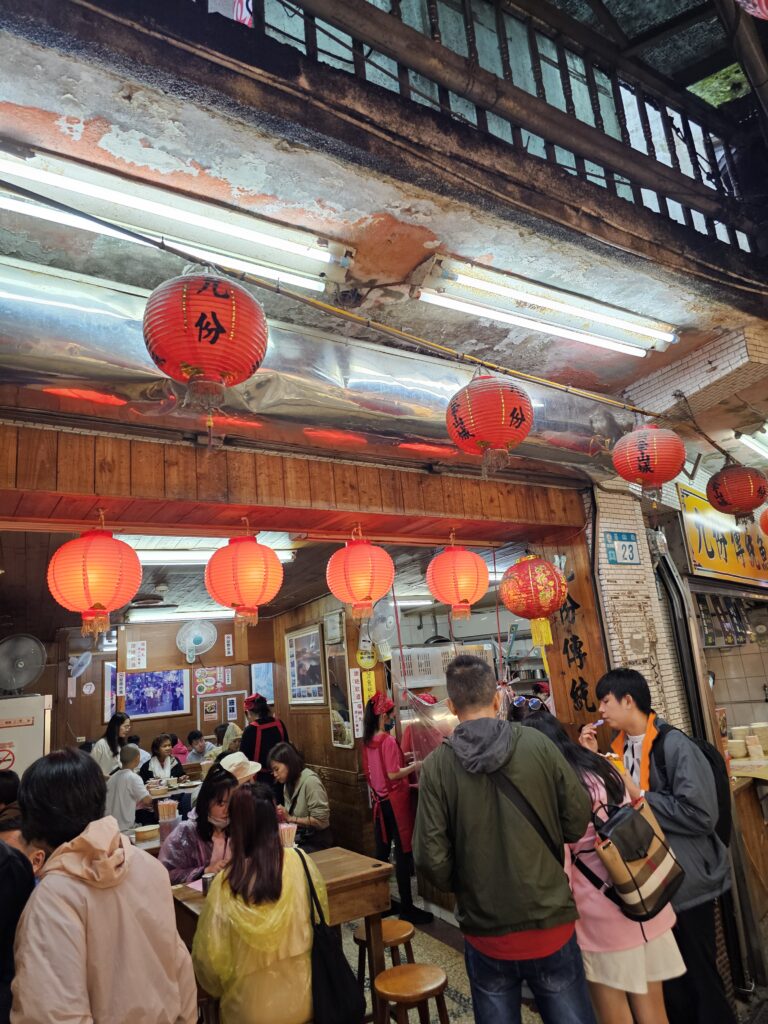
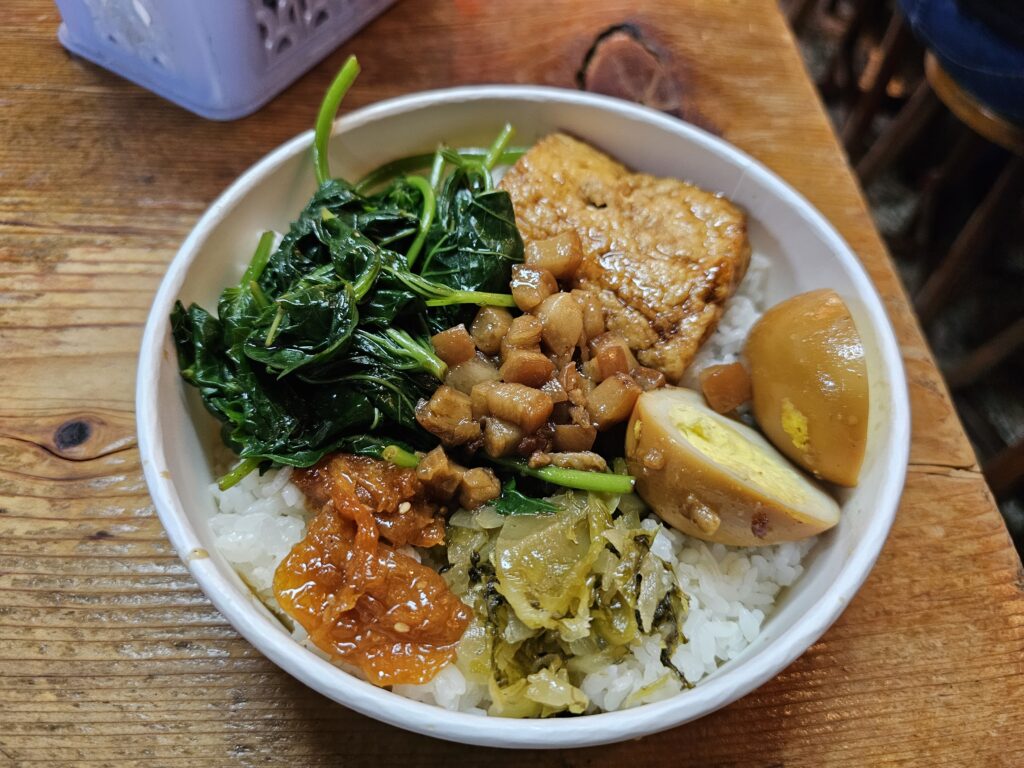
After eating the braised pork bowl, I was still a little hungry and wanting a little snack to fill me up. Luckily, there’s no shortage of snack related food pretty much everywhere in Jiufen Old Street.
I settled on getting a Taiwanese sausage on a stick. Seemed like a “light” snack, which was exactly what I was looking for.
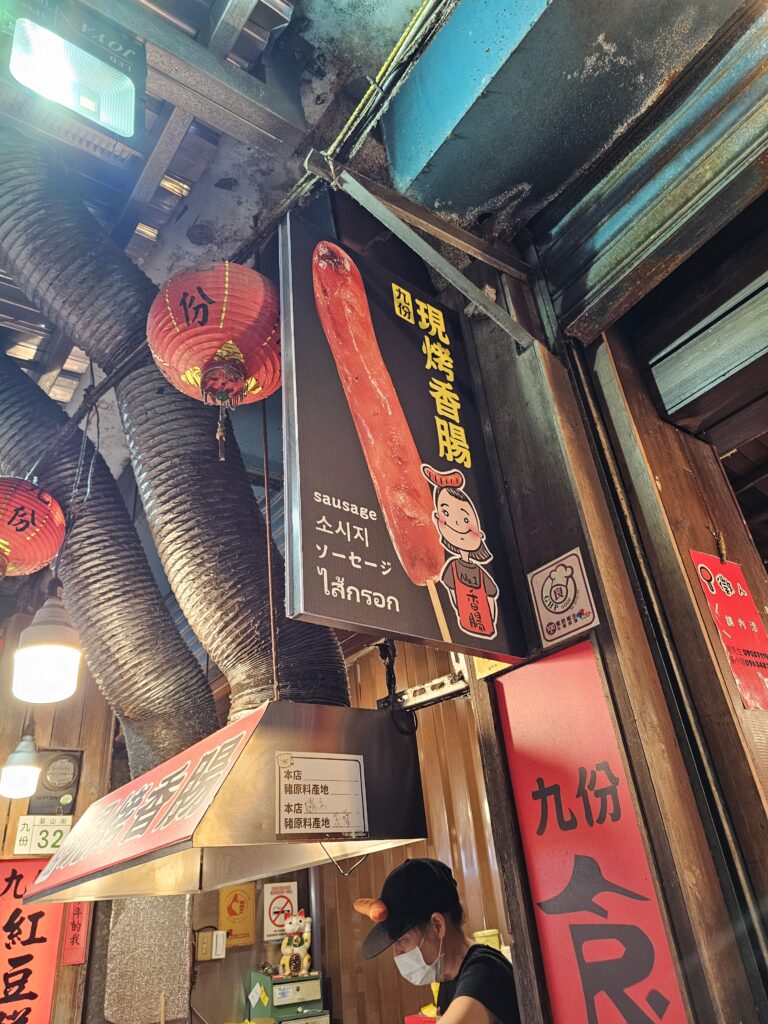
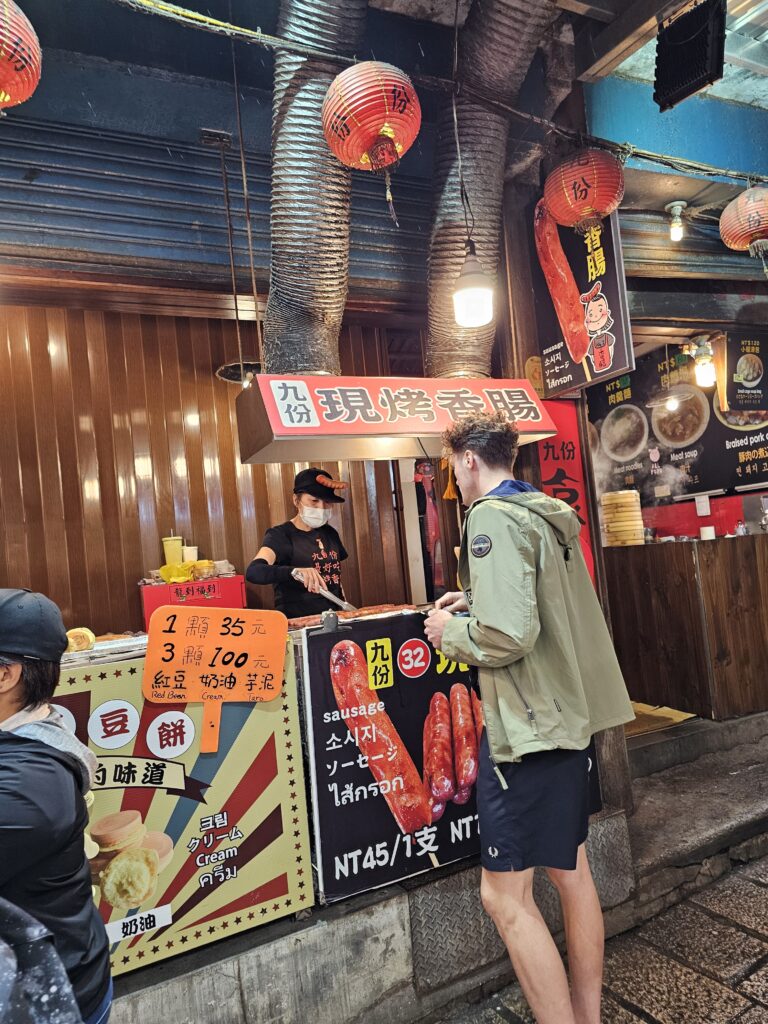
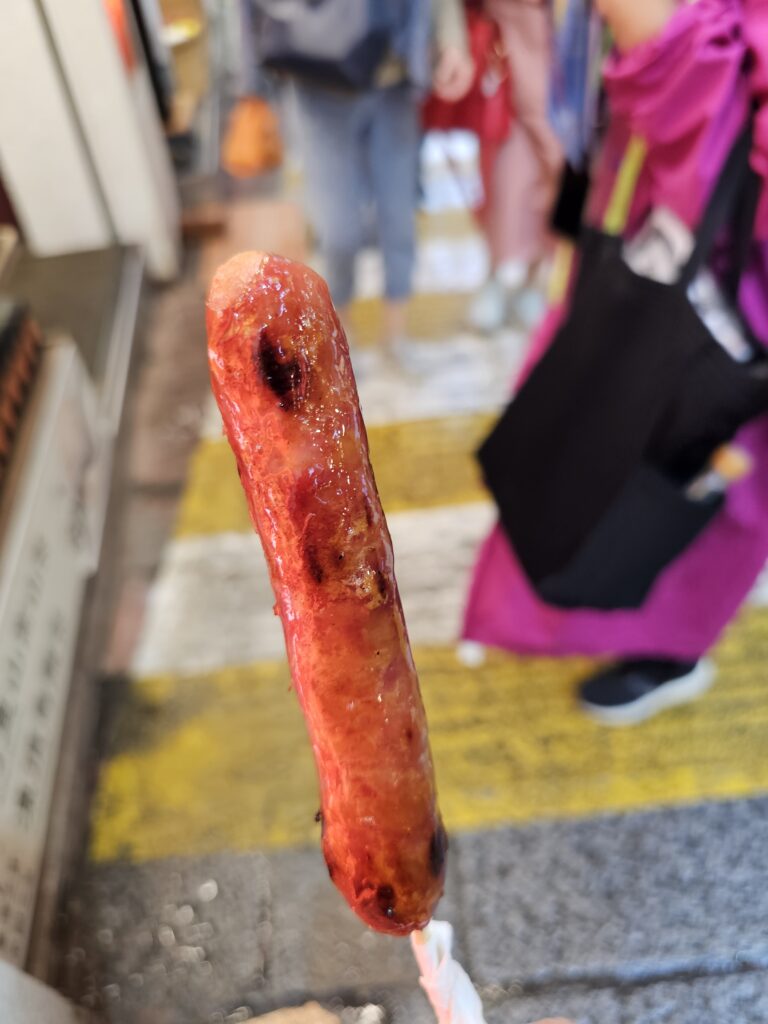
It literally is a sausage on a stick, which pretty much resembles a hot dog. It definitely had a crispy outside to it and was super juicy on the inside. It was a little sweet and savory and quite tasty. Super cheap snack as well (45 NTD, $1.40 USD) that really hit the spot.
The Views
There are views aplenty in Jiufen and the atmosphere makes you feel like you’re in a fantasy mountain side village. One of the most popular locations within Jiufen is the Jiufen Teahouse. It’s an iconic teahouse which offers a very unique building and an awesome view of the coast. It’s a very popular place. I didn’t end up grabbing a tea here (I was short on time unfortunately) but definitely would love to grab one whenever it is I come back.
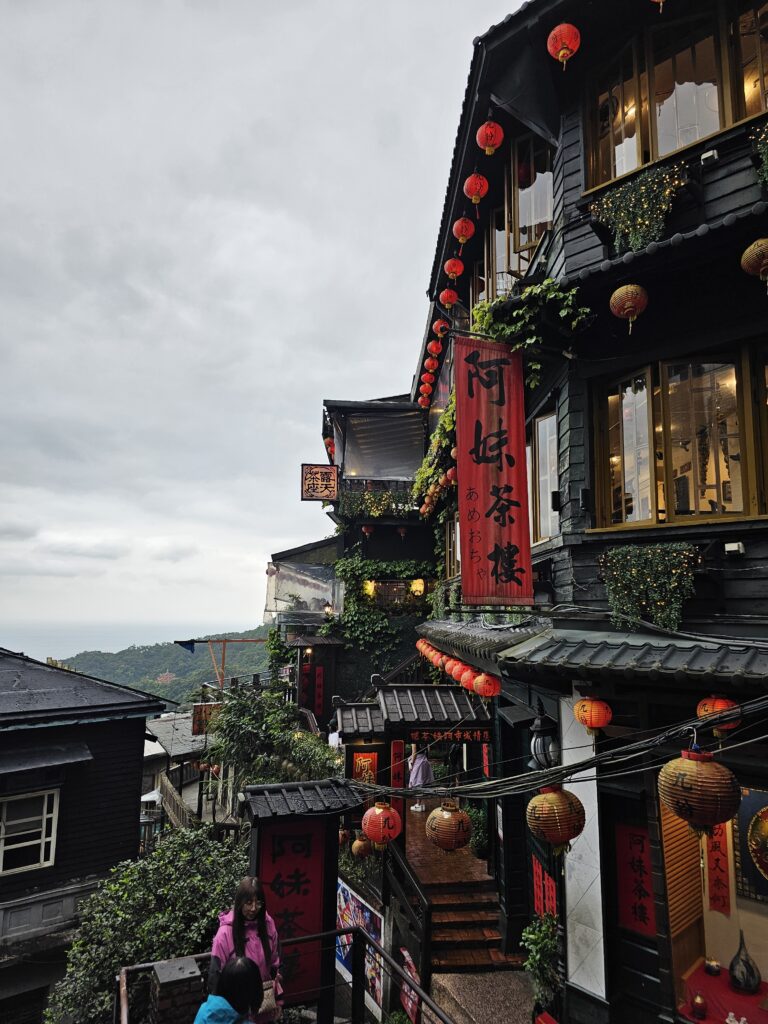
Just walking around Jiufen you are going to run into some awesome views. This was just at the end of one of the many offshoot alleys of Jiufen Old Street. There are a lot of teahouses or places where you can grab a beer and some finger foods that look out on the coast like this as well. Plenty of great places to take a breather either from all the stairs or the crowds or both and relax and enjoy some truly beautiful views.
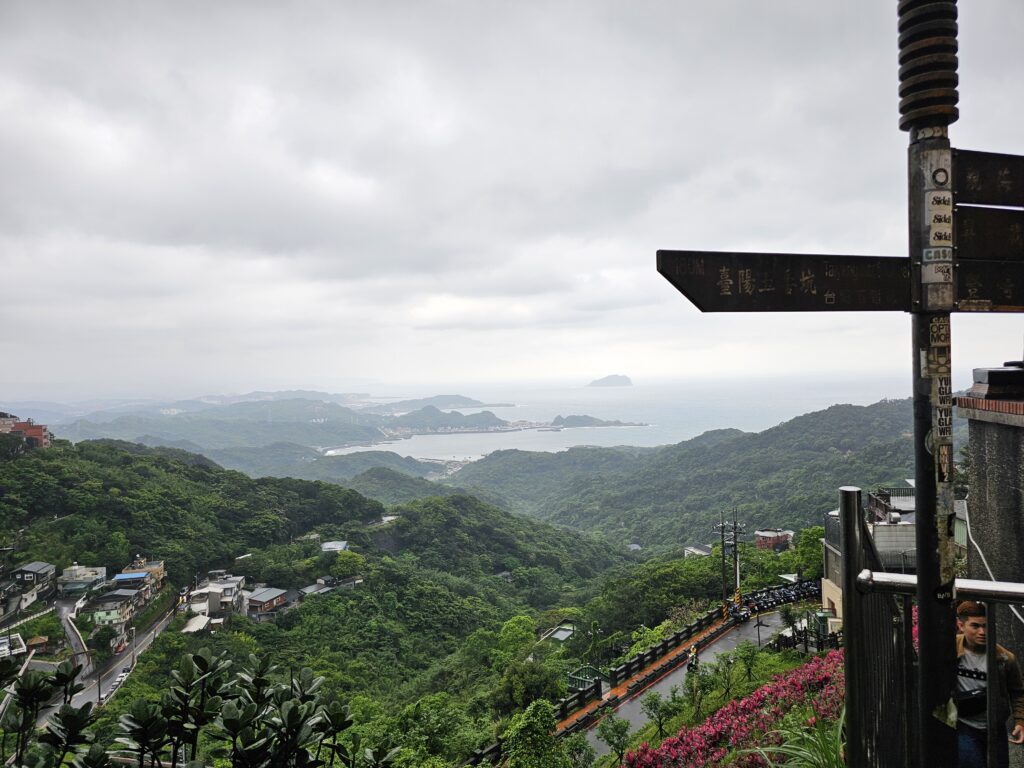
-
Is The Spectacular Shifen Waterfall Worth The Trek From Taipei?
If you’re visiting Taiwan, a trip to Shifen is likely on your “to do” list. The Shifen Waterfall and Shifen Old Street are two immensely popular tourist destination for good reason. They are certainly unique sights.
With that being said, it’s a little out of the way from Taipei and making the trip can take some time if using public transportation and require switching trains (if that’s the chosen mode of transportation) which can be a little confusing if you’re not too familiar with the trains in Taiwan.
So is it worth the hassle?
Shifen Old Street
If you take the train from Taipei to Shifen it will drop you off right on Shifen Old Street. You just have to exit and walk out of the train and down along the train tracks. It’s that easy!
Here you’ll find both sides of the train tracks lined with various shops and places to eat. It’s a cool little area and trains literally will run down the middle every once in a while which is pretty neat to see. It’s not a super big street by any means, but there’s a certain charm to it.
Shifen Old Street is the very famous area where you can purchase a sky lantern and release it into the sky. You’ve probably seen this on videos about Shifen or popular things to do while in Taiwan.
You can purchase a sky lantern and draw / write whatever you please on it’s sides. Once you’re all set, the lantern gets lit and then released and you can watch it soar up into the sky. It’s certainly an experience that people really enjoy.
Shifen Old Street is a little touristy as you might expect, but it’s a fun little street to walk down and check out the various shops and decorate / release a sky lantern as well!
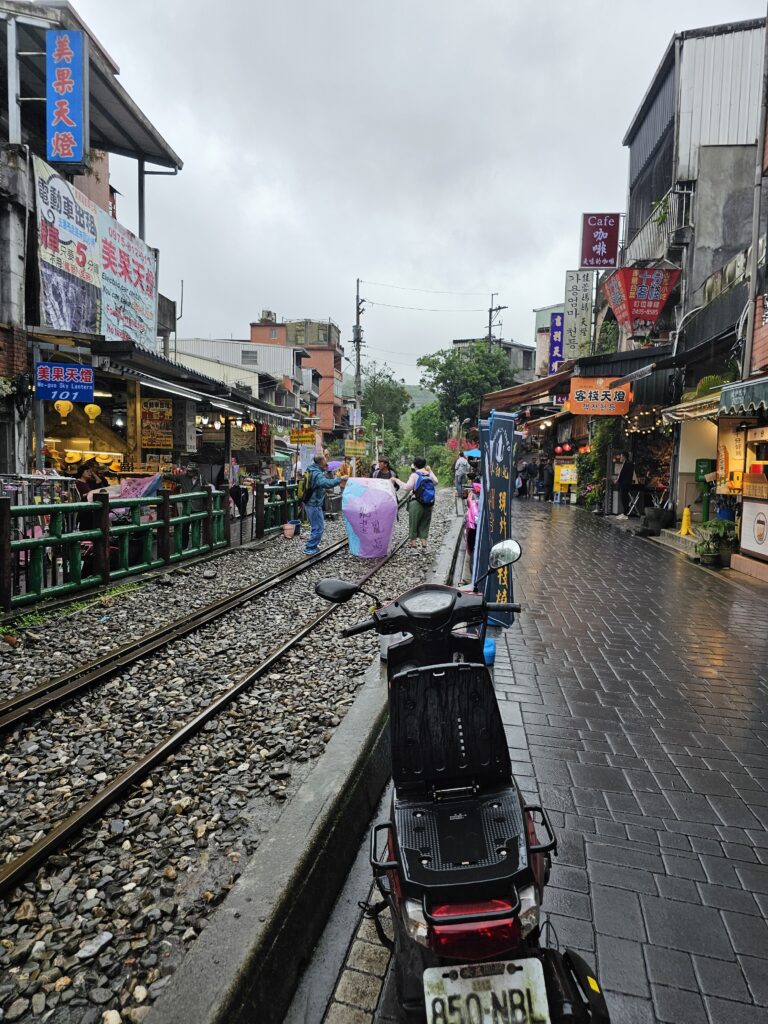
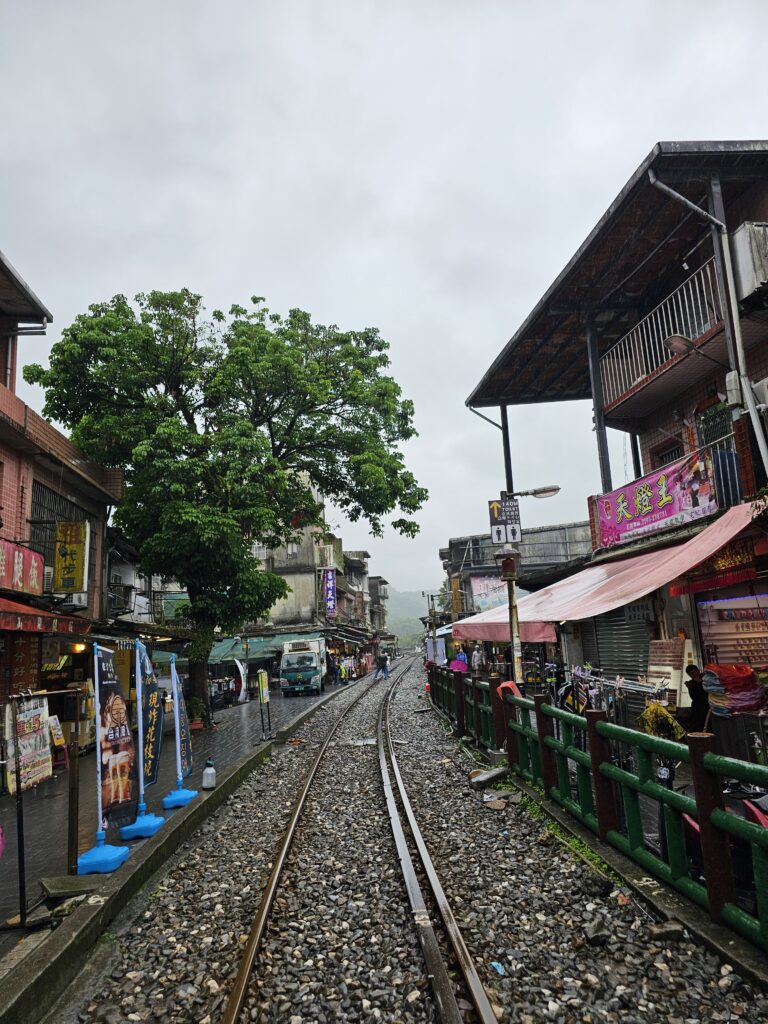
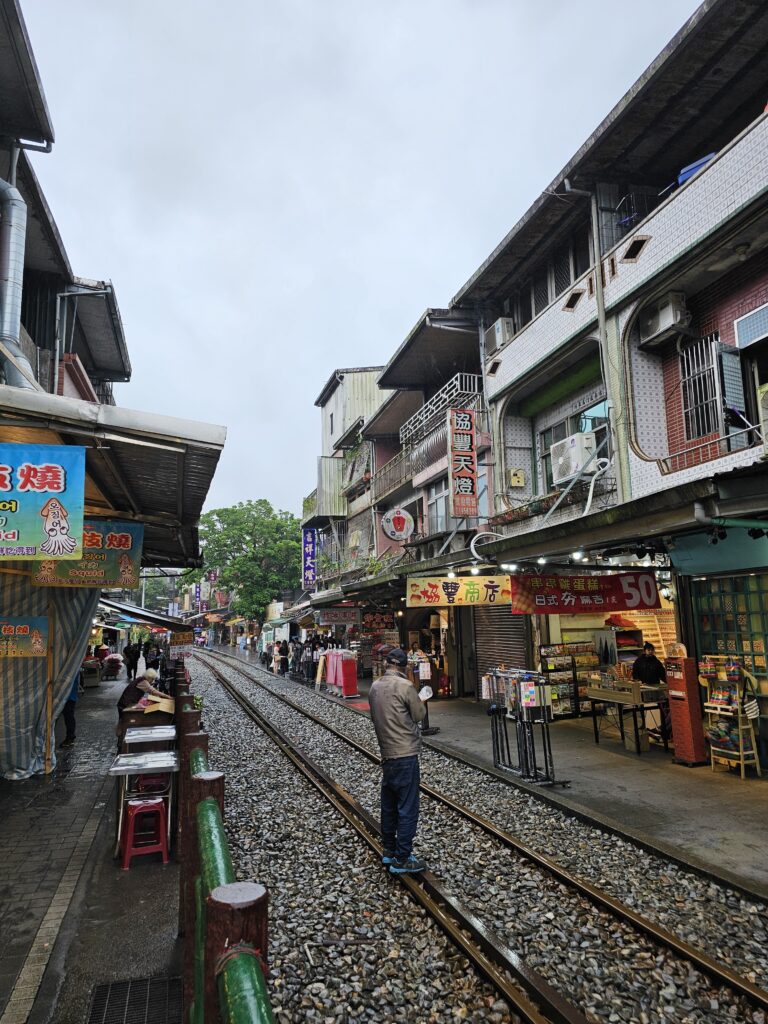
Shifen Waterfall
Adjacent to the Shifen’s Old Street is the Shifen Waterfall, which is located on the upper reaches of the Keelung River. It’s about a 30-minute walk from Old Street, depending how fast of a walker you are.
It’s a nice little walk, not very strenous at all, which starts as soon as Old Street ends which leads you to the highway. You walk along the highway (you’ll see a ton of people making the trip so you can follow the crowd but there’s also maps / signs to guide you) and then hit the Visitor Center which has restrooms, if needed. From there you’ll walk across your first suspension bridge and continue up the river trail, walk up some stairs and then cross another suspension bridge.
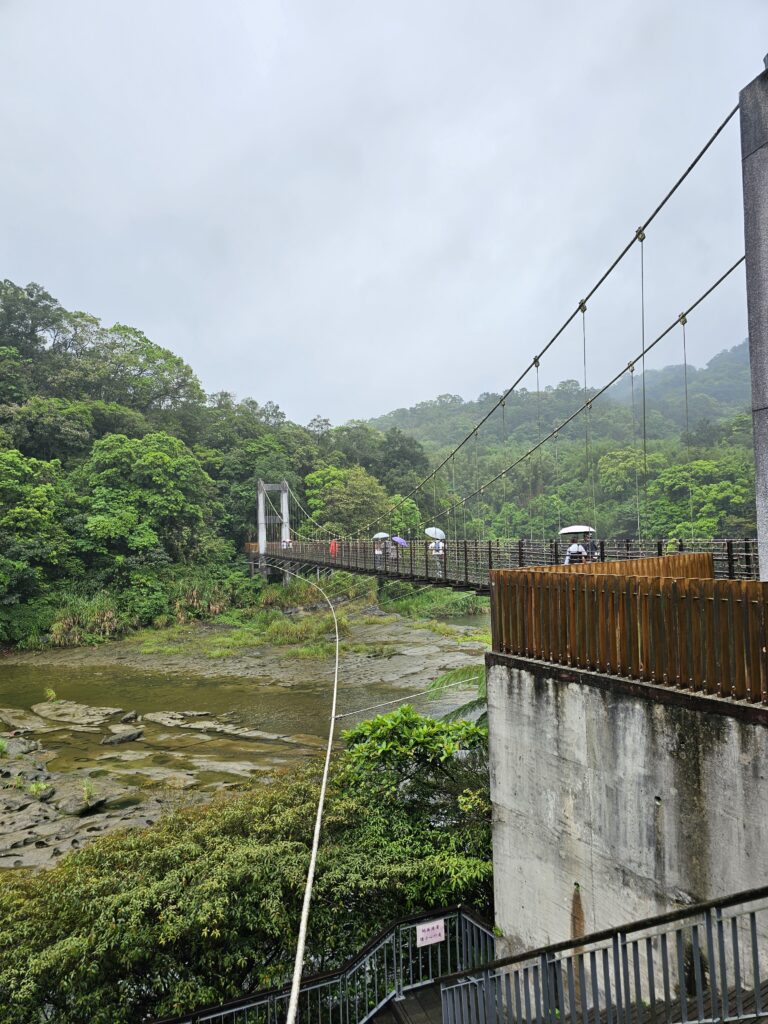
From there you’ll walk past a small Buddhist shrine that has several horse statues in front of it. Directly next to the shrine run are some tourist stalls that are selling souvenirs and food.
Once you walk past this short row of shops you’ll be at the waterfall. Whew!
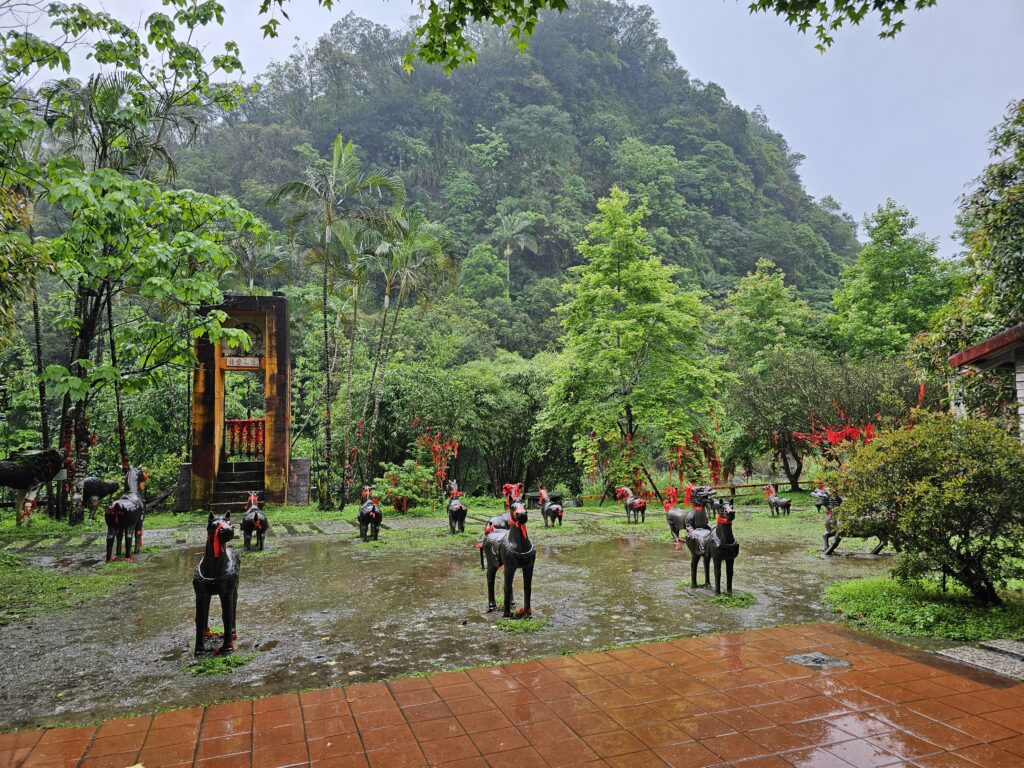
Shifen Waterfall is about 66 feet high and 130 feet wide and is certainly a beautiful sight to behold.
Once you get to the waterfall area, you’ll get to view it from multiple platforms at different levels where you can snap some pictures and enjoy the scenery of the waterfall and surrounding wilderness. It’s quite nice, even when raining!
There will definitely be crowds. This is one of the most popular tourist destinations, so be prepared for crowds. Even though it was a little drizzly there was still a decent number of people viewing the waterfall.
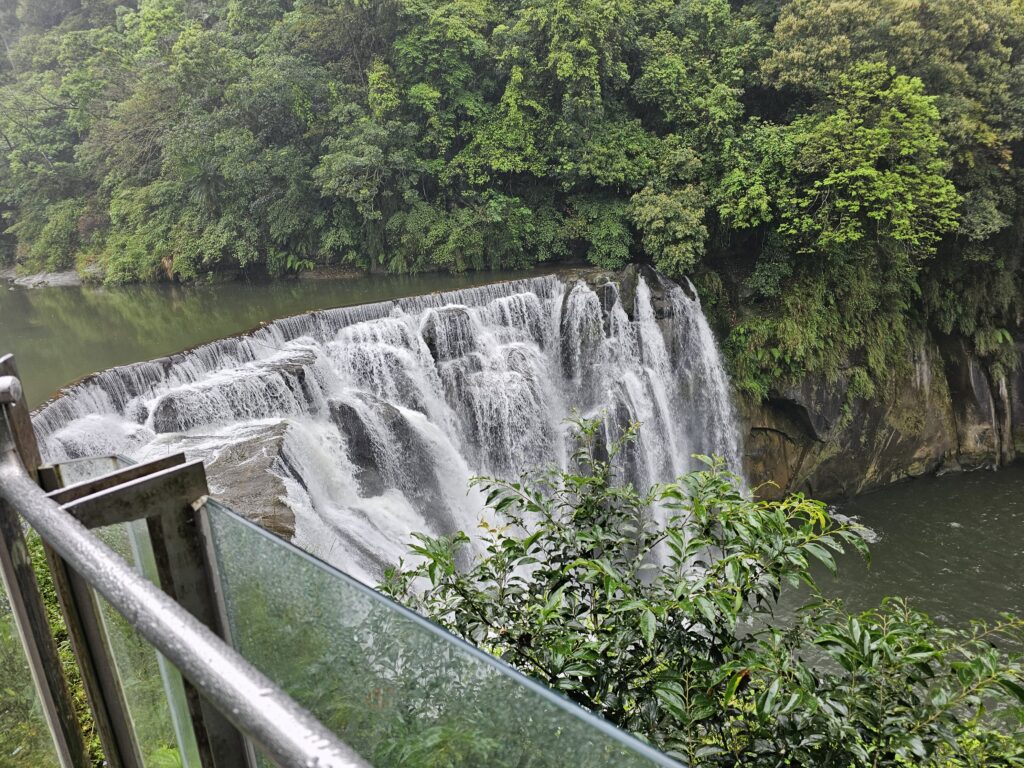
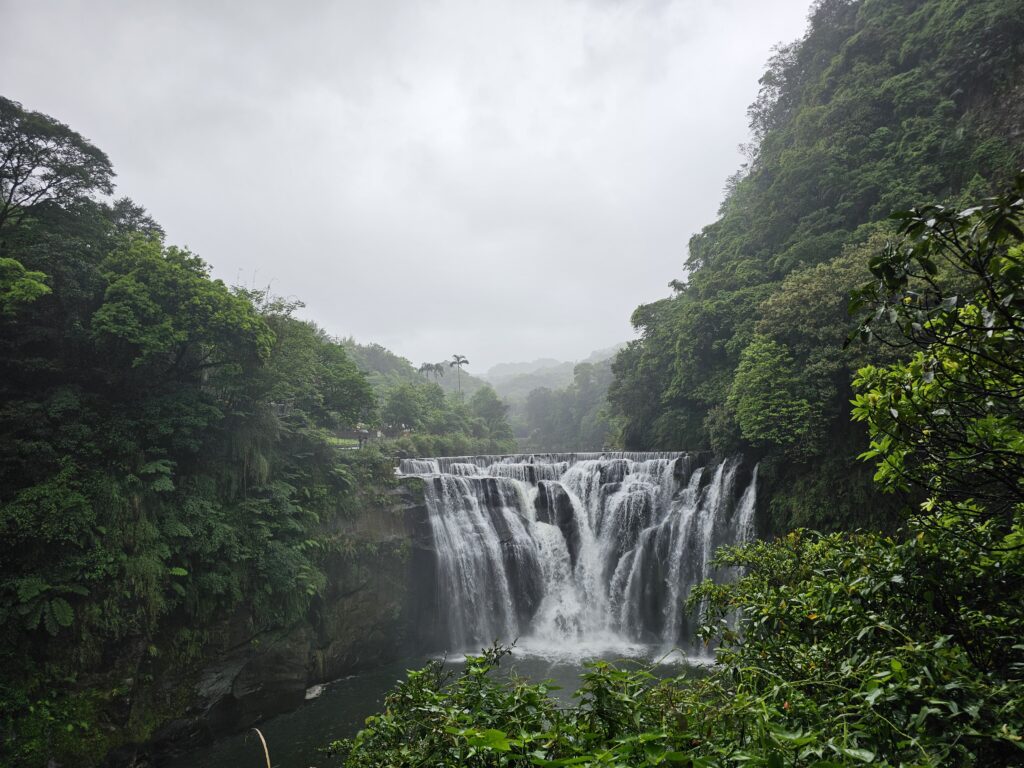
Is Visiting Shifen Worth The Effort?
Shifen is one the most popular tourist destinations in Taiwan. It’s a great opportunity to get out of Taipei, experience some nature and see a quaint little street full of shops and sky lanterns floating up to the sky. The waterfall is definitely quite a sight to see and admire and just enjoy the moment. The walk is scenic and isn’t difficult to do. Overall, you can spend a few hours here and it’s certainly worth the trek!
-
Is Ay-Chung Flour-Rice Noodle A Great Place To Eat?
Table of Contents
Ay-Chung Flour Rice-Noodle is a famous noodle stall in the heart of the popular Ximending area in Taipei on Emei Street. Having been around since 1975, Ay-Chung has established itself as a popular destination in Ximending through the years.
It’s a guarantee that there will be a line, I mean there’s painted lines on the ground with arrows directing you where to go if you show up on a especially busy day. Clearly, they know how to, and are used to dealing with large crowds.
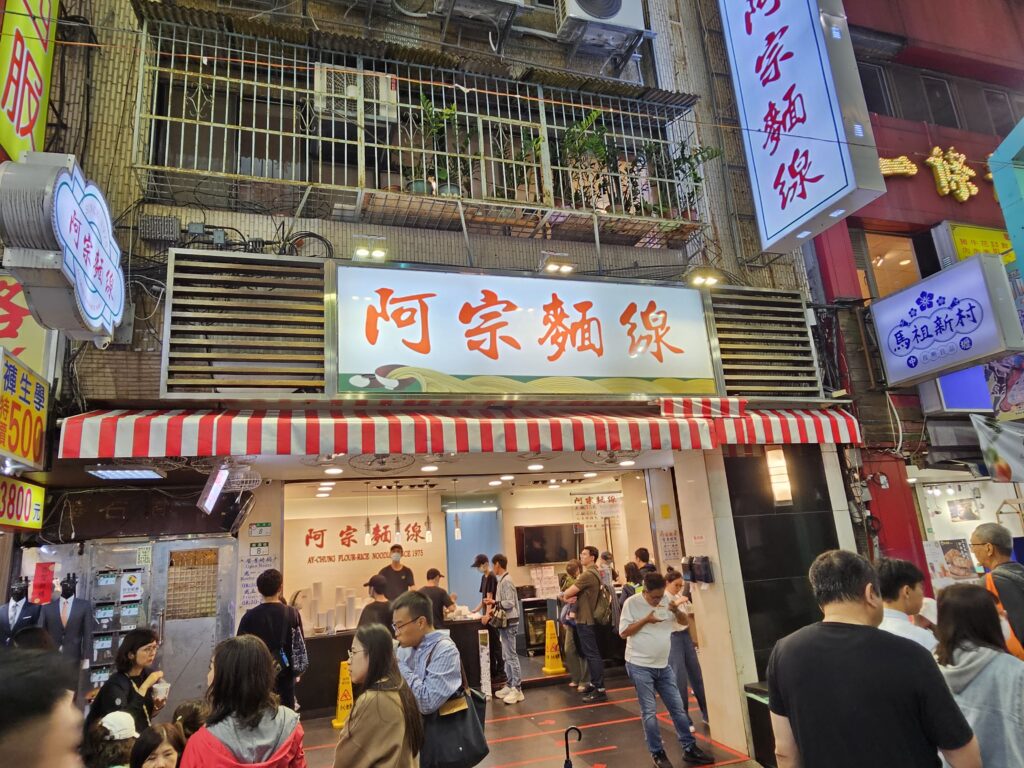
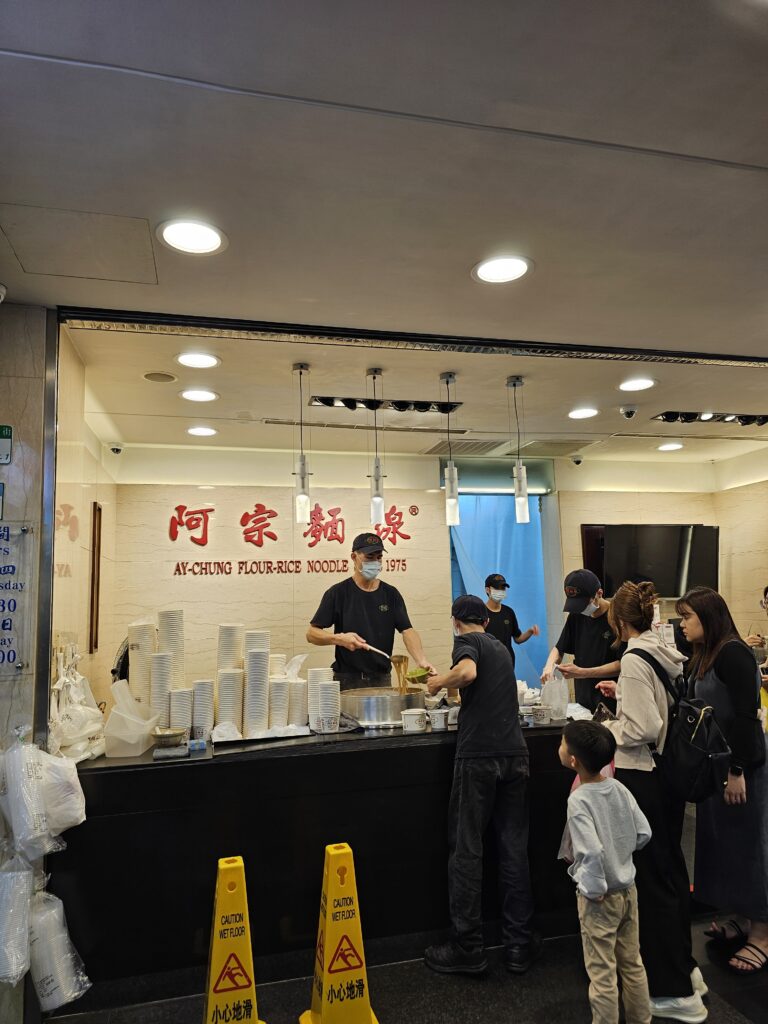
The Ay-Chung Menu
The menu at Ay-Chung is about as simple as it gets. There’s only one food option, with two different sizes. You can get the flour rice noodles in two different sizes: a large (80 NTD, $2.46 USD) or a small (65 NTD, $2.00 USD) and that’s it. There’s also the option to buy frozen food or a jar of the chili sauce, but in terms of food options they only serve their famous flour rice noodles.
They obviously know what their bread and butter is here and 100% focus on it. Based off how crowded it generally is, their focus on just the flour rice noodles has paid off!
Ay-Chung Flour-Rice Noodle
I ended up getting a small cup of the Ay-Chung flour rice noodle. With the quick assembly line like service they have, my order came up quite quickly, another benefit of serving one item.
There’s some single chairs around that you can sit in, if you can find one available, to eat your noodles. Otherwise you can stand around and eat, which is what the majority of people are doing.
They have a nice little self service condiment station that included vinegar, garlic, and chili sauce. You can help yourself to it and mix and match to your heart’s content until you find that right flavor mix.
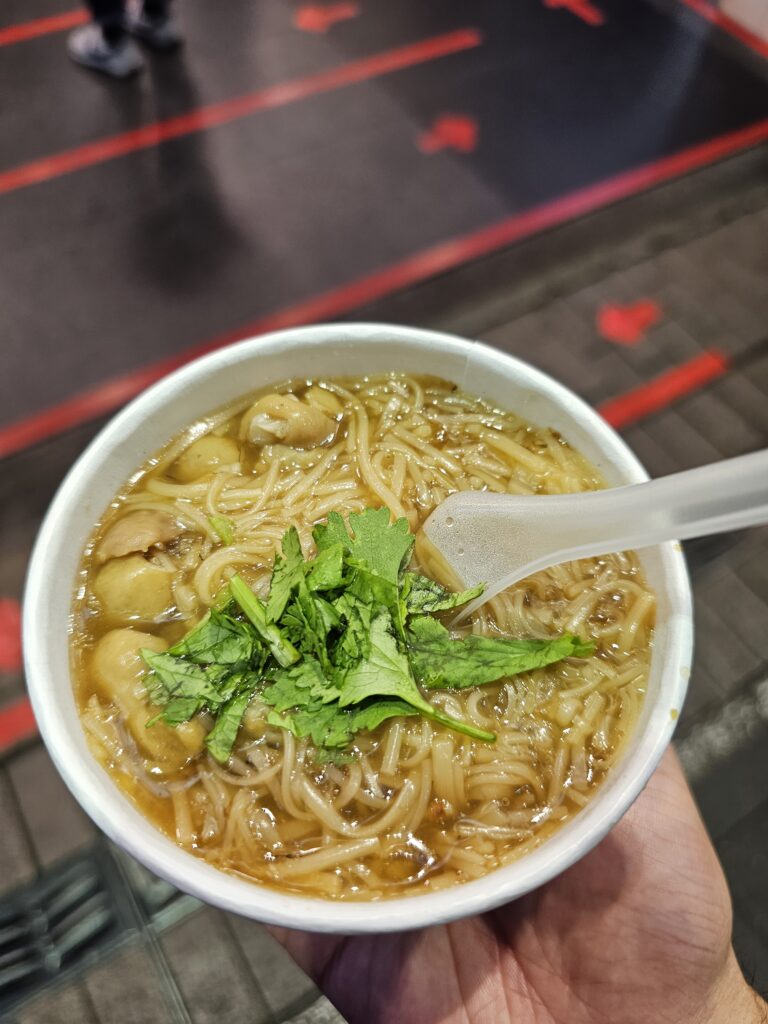
Before I added anything, I wanted to give the base soup a taste.
I don’t know that I would call this a soup. The consistency wasn’t very soup like at all. It was quite thick. More like gravy in its consistency…which was interesting. Definitely quite salty with a smoky, fishy taste to it. It was alright on its own. Certainly a unique taste and consistency combination.
After giving it a taste, I added a little bit of vinegar, garlic, and chilii sauce to get the flavor to something more my liking.
The noodles were very thin, silky smooth, and very soft. They were pretty good and certainly soaked up the soupy gravy.
There were pieces of pig intestine mixed in with the noodles as well. Some pieces were tender and others pretty chewy. I’m not a big boiled intestine fan so this was a mixed bag for me.
The cilantro topping provided a nice complementary flavor to the soupy gravy and noodles which was nice.
Is Ay-Chung Flour-Rice Noodle Worth A Visit?
If you’re in Ximending, sure, it’s worth a visit. It’s a very famous stall that’s been around for nearly 50 years serving one dish. Certainly they must be doing something right. The throngs of people that frequent it and give it a try is really, truly impressive.
With that being said, in my own personal opinion, it was just alright. The soupy gravy consistency wasn’t something I could totally get behind and it was really salty. I liked that they had vinegar, garlic, and chili sauce that you could at your leisure. That certainly helped me create a soupy gravy that was more to my liking.
I’m also really not into intestines so having bits of it with the noodles wasn’t my favorite thing in the world lol.
But the noodles were pretty solid and let’s be honest a small cup of this was only $2.00 USD so why not give it a try and see what you think about it?
-
How Good is Authentic Taiwanese Beef Noodle Soup In Taipei?
Table of Contents
Beef noodle soup is considered the national dish of Taiwan so it’s safe to say it’s one of, if not, the most popular food in Taiwan. I couldn’t recall ever eating beef noodle soup before prior to my trip, so it was definitely one of those foods I was really forward to getting.
What Is Taiwanese Beef Noodle Soup?
Taiwanese beef noodle soup consists of braised beef, beef broth, and noodles. Of course what separates the numerous bowls of Taiwanese beef noodle soup is the quality of the beef and noodles, vegetables, heaps of mustard greens, and most importantly the broth.
It’s All About The Broth!
Broth is essential in any kind of soup and is something that can truly separate a good bowl of beef noodle soup from a great bowl. In a city and country where there’s seemingly an endless amount of restuarants serving beef noodle soup, the broth can really make the restuarant stand out amongst its peers.
The broth is a deep, savory umami flavor due to the base of beef bones and chunks of beef which get simmered for hours. This long simmering base creates a rich, hearty taste.
From there it’s all about the spices and how to best utilize them and in what amounts. These are what separates the broths. Soy sauce is often included in the broth accompanied with any kind of mixture of spices generally including star anise, cinnamon, ginger, garlic, fennel seeds, Sichaun peppercorns, and dried chili peppers and chilil oil, if it’s a spicier broth.
Recipes can be long held family secrets and each restaurant in Taiwan that serves beef noodle soup will have their own unique spin on this tasty broth.
Du Li Beef Noodle
Located in the Wanhua District, Du Li Beef Noodle is popular, well-rated Taiwanese beef noodle soup restuarant in the area. I was wandering around in Wanhua and was randomly looking for a nice Taiwanese beef noodle soup place and Du Li Beef Noodle was the clear cut place to visit based on the high ratings.
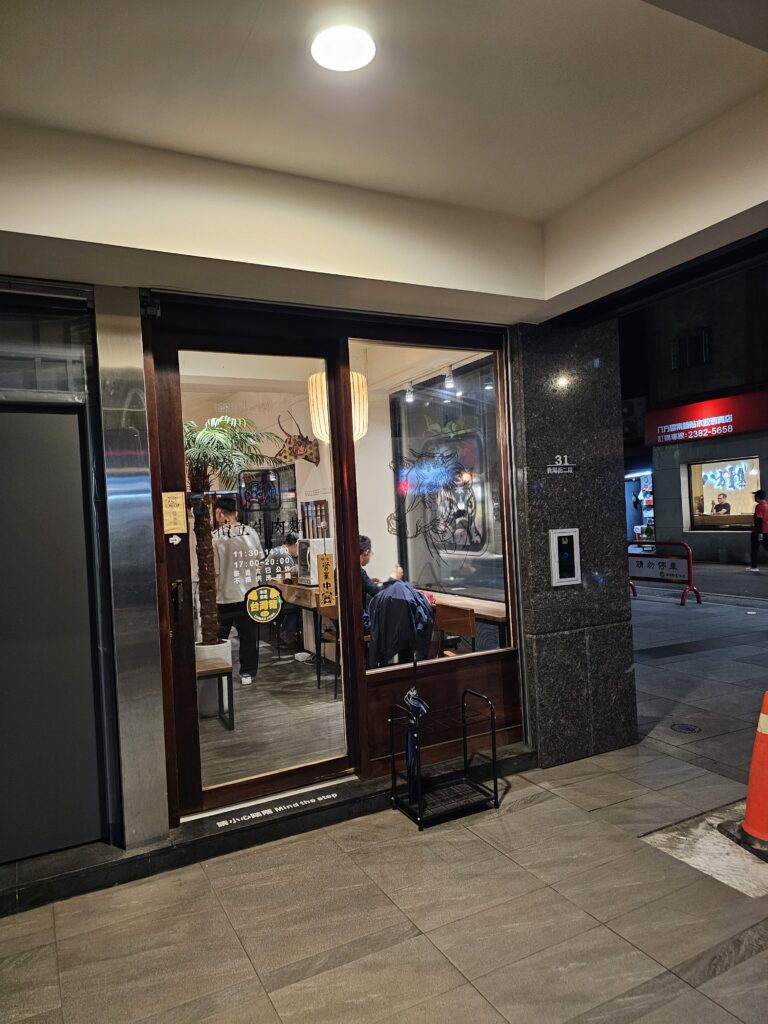
It’s a smaller restaurant with a few tables and long counter top which is the main seating area. I went at a good time, it wasn’t too busy and I was able to grab a seat without waiting.
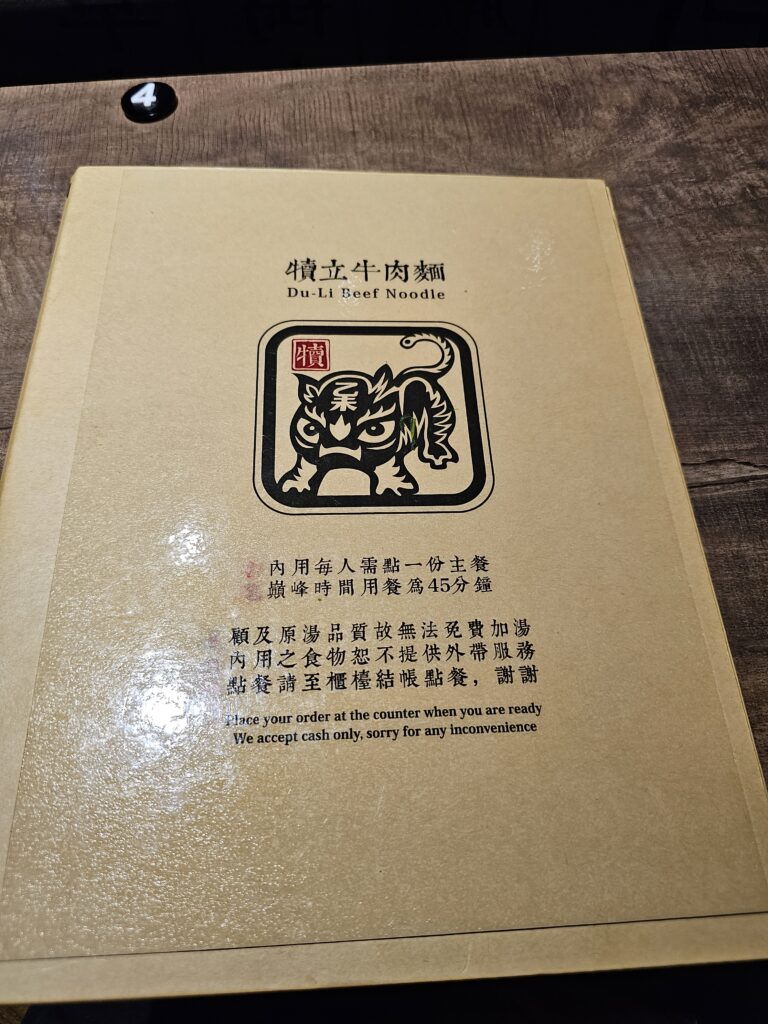
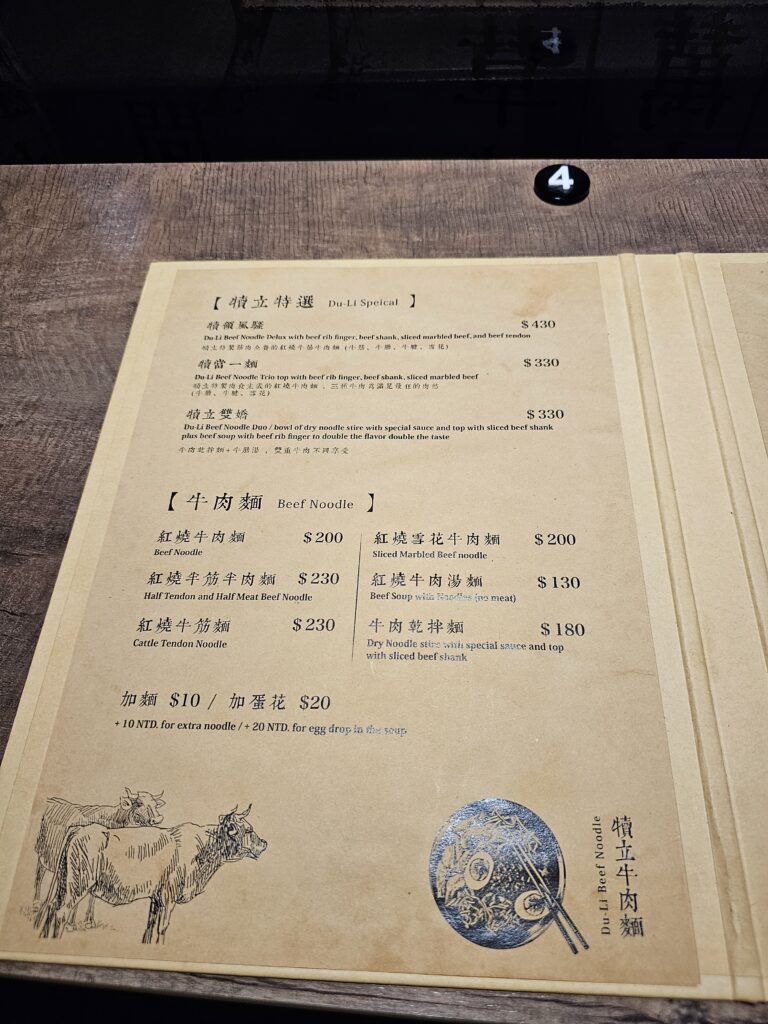
They have a nice selection of different types of beef noodle soup, which mainly was different types of cuts of meat. I went with the original Beef Noodle for 200 NTD, $6.20 USD and also got a side of pickled Chinese Cucumber for 35 NTD, $1.09 USD.
The Beef Noodle Soup
The presentation of the soup was great. Nice large bowl brimmiing with broth, noodles, an ample amount of beef pieces, and topped with shredded green onion (I think). Very appetizing and appealing looking.
The first taste test of any kind of soup related meal has to start with a spoonful of the broth. I was really looking forward to my first spoonful of Taiwanese beef noodle soup broth!
The broth definitely had a savory umami flavor to it with a nice beefy presence to it to go along with a slightly sweet and tangy flavor. You could definitely taste the star anise but I couldn’t quite put my finger on what exactly the other spices might have been. There wasn’t too much spice to it. Overall, it was quite tasty, and very warming.
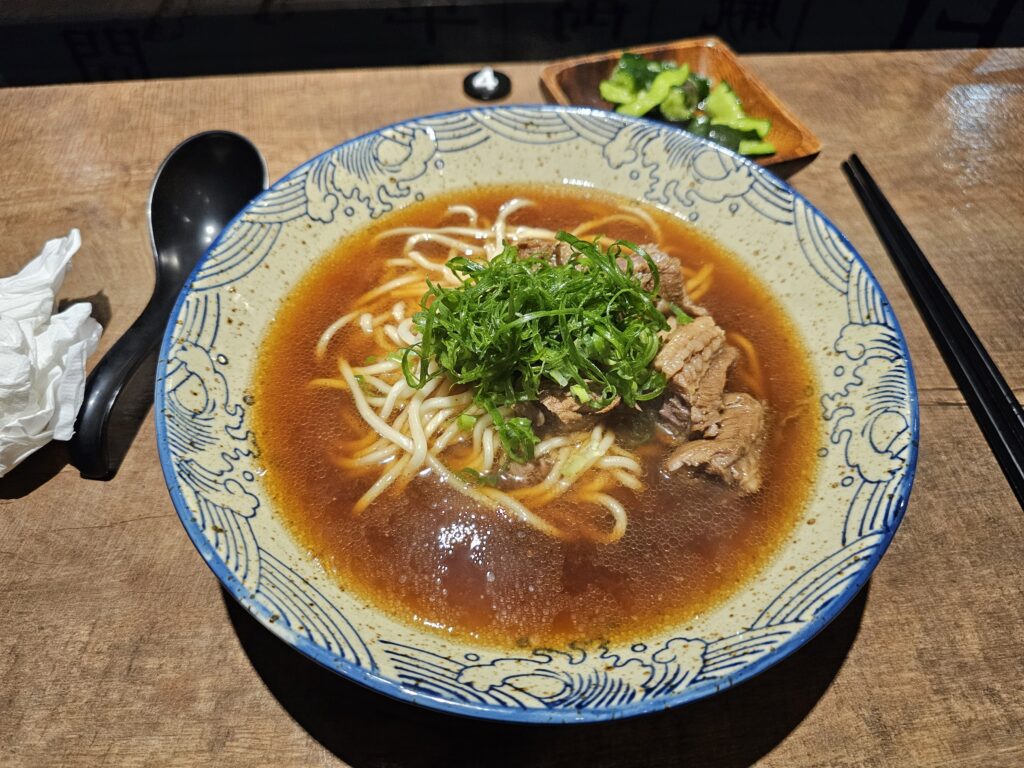
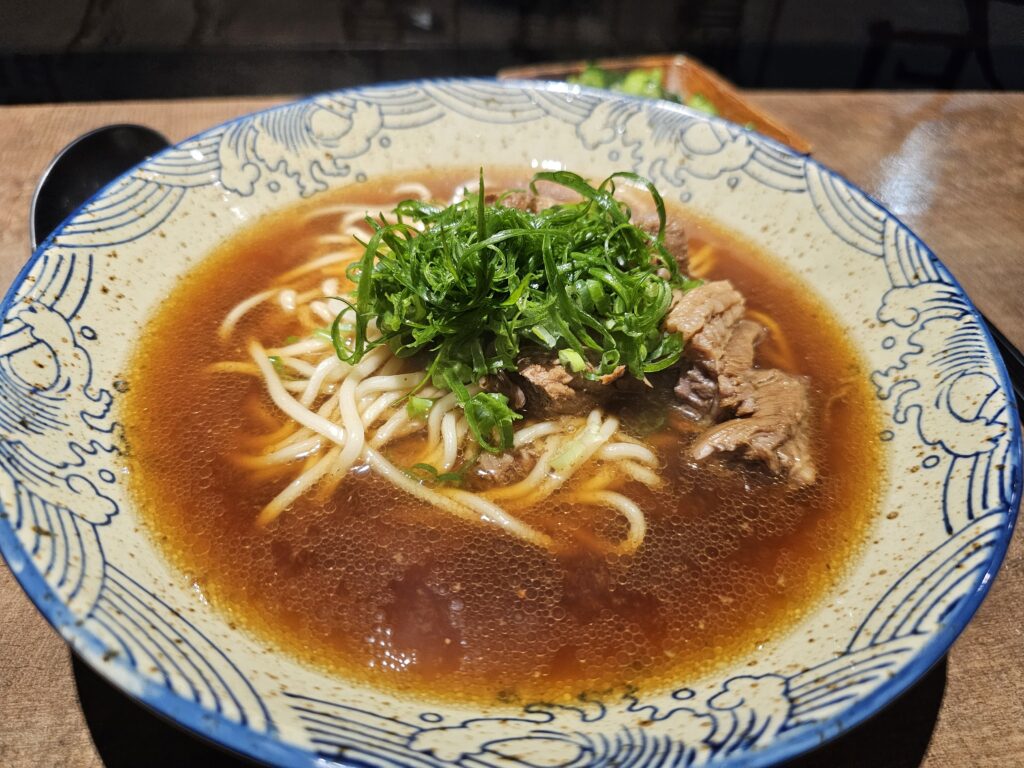
The pieces of beef in the soup were incredibly tender. Not too much seasoning at all, just fall apart tender with some nice juicy fat in there as well. The pieces of beef were definitely very tasty.
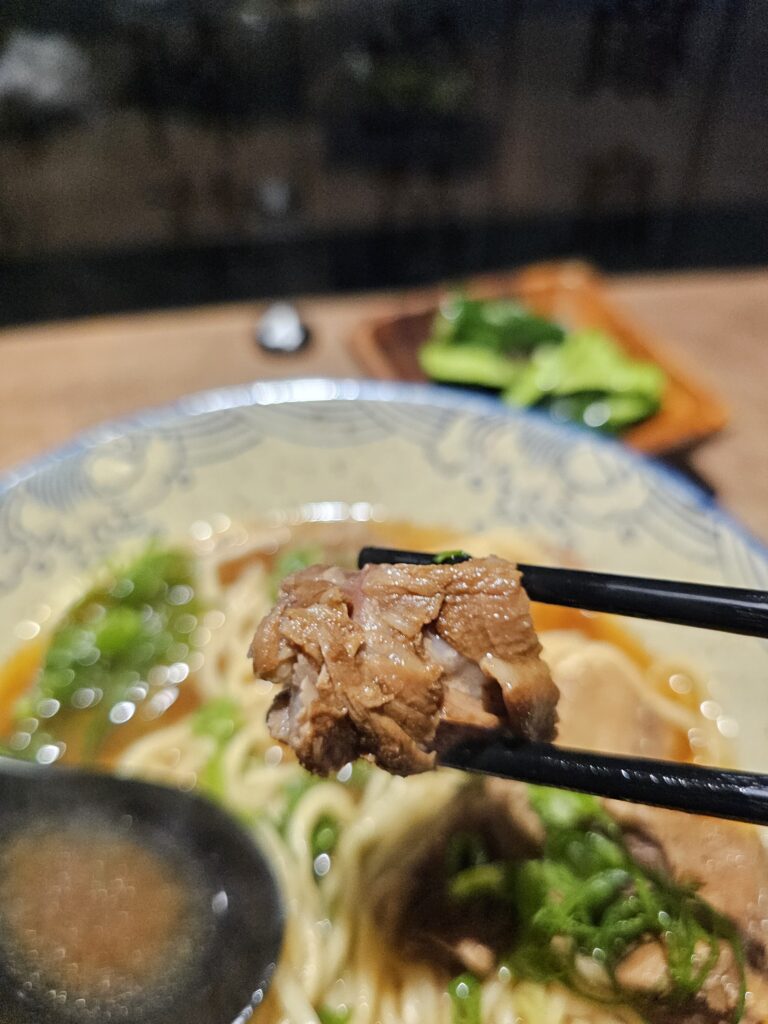
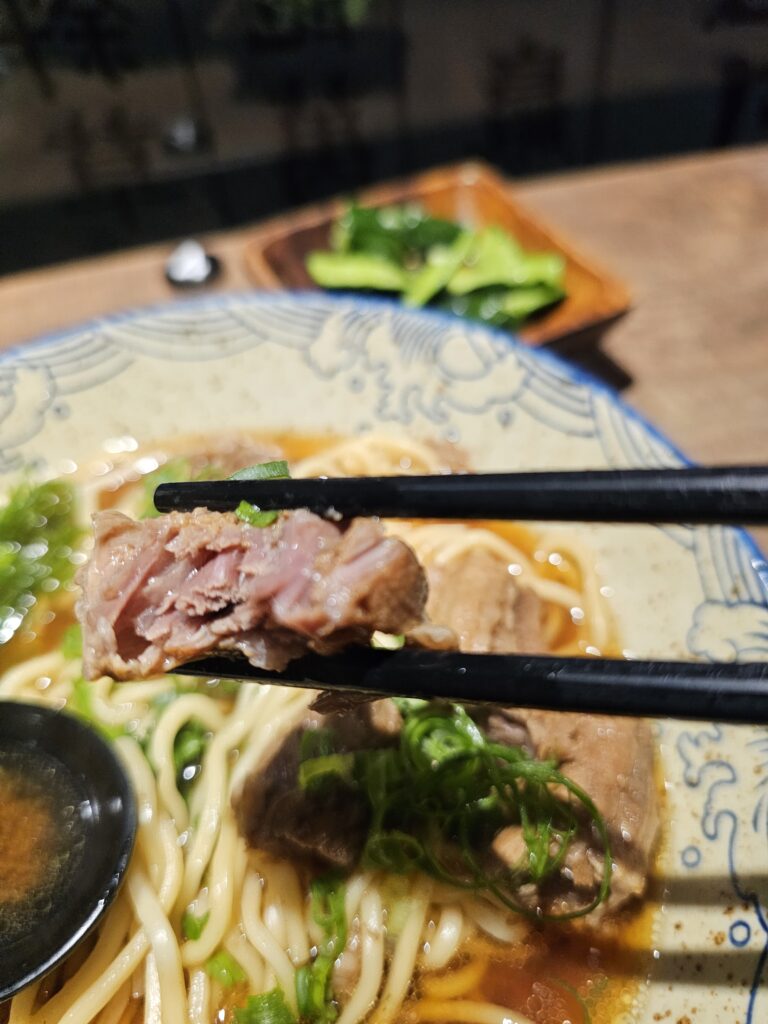
The noodles were fairly thick, think in between a ramen and udon noodle, and were quite fresh tasting. They had a good bounce to them and were al dente. Perfect noodles for this soup that went great with the delicious pieces of beef.
Did It Live Up To The Hype?
One of the foods that I was absolutely looking forward to eating was Taiwanese beef noodle soup. I had seen so many videos of people enjoying it on Youtube, it was certainly one of the most hyped foods I couldn’t wait to try.
I’m glad that I waited and found a highly rated place like Du Li Beef Noodle to enjoy my first bowl. The people working there were very nice and the food was delicious. I obviously had nothing to compare this bowl of beef noodle soup to, but I found it to be quite good and really enjoyed it. Whenever I go back to Taipei I’d certainly venture back to Du Li Beef Noodle to grab another bowl.
-
How Good is Authentic Dim Sum In Taipei?
Dim sum is another one of those foods that I was really looking forward to having in Taiwan. I’ve always LOVED dim sum and have had it througout my life and was looking forward to see good it was in Taiwan.
I hadn’t run across any dim sum places through the first few days of my stay in Taipei but hadn’t exactly gone out of my way to find a place as I got acclimated to Taipei. I decided to stay in the Ximending district for a couple days and thought it would be a good time to have some dim sum.
Table of Contents
Hung Kan Dim Sum
Luckily, there was a pretty highly rated dim sum restaurant in the area called Hung Kan Dim Sum. I stopped by later in the morning for brunch and was definitely reminded of dim sum / Chinese restaurants back in SoCal. The restaurant was on the second level and was a massive floor with a ton of round tables with lazy susan’s on them. It was nice to be around that familiarity, even in another country.
The menu was HUGE. There were multiple pages dedicated to just dim sum items and the more pages with more lunch / dinner items. I was tempted to get some non-dim sum stuff since it looked and sounded really good but I had to go with dim sum only this go around.
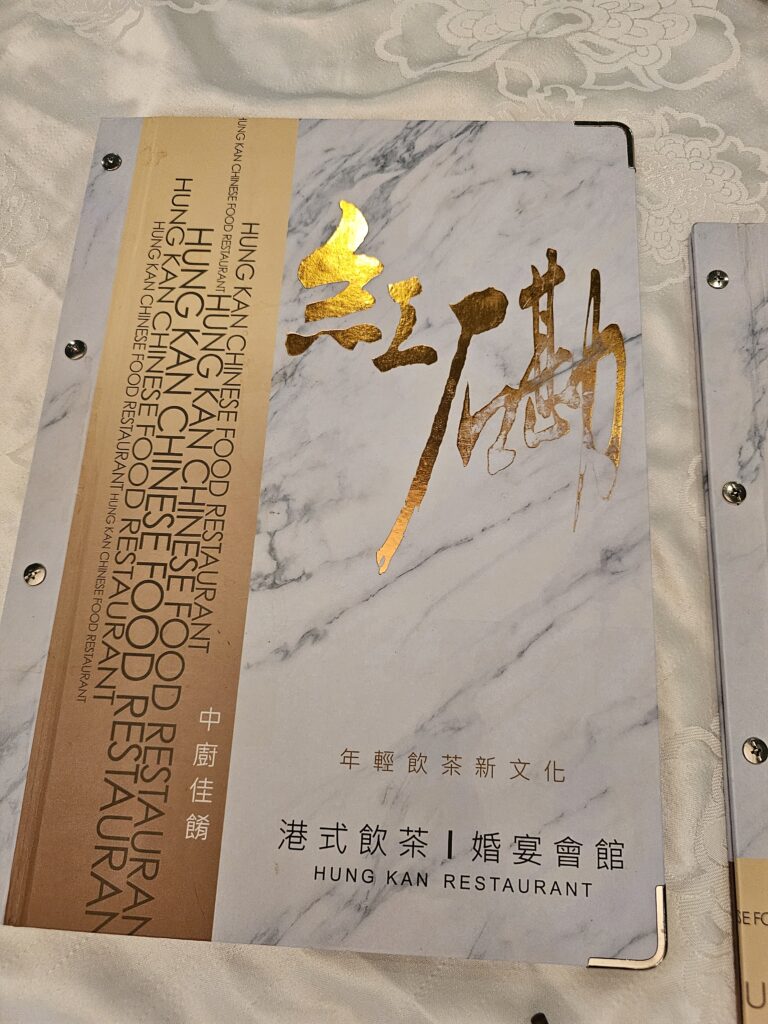
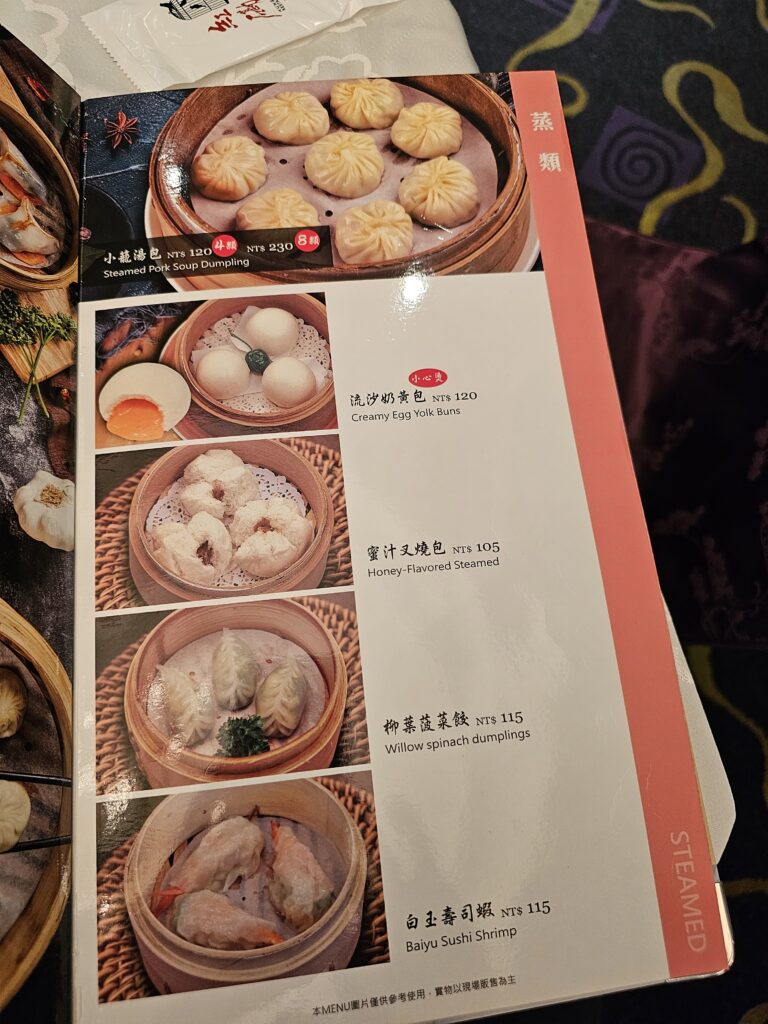
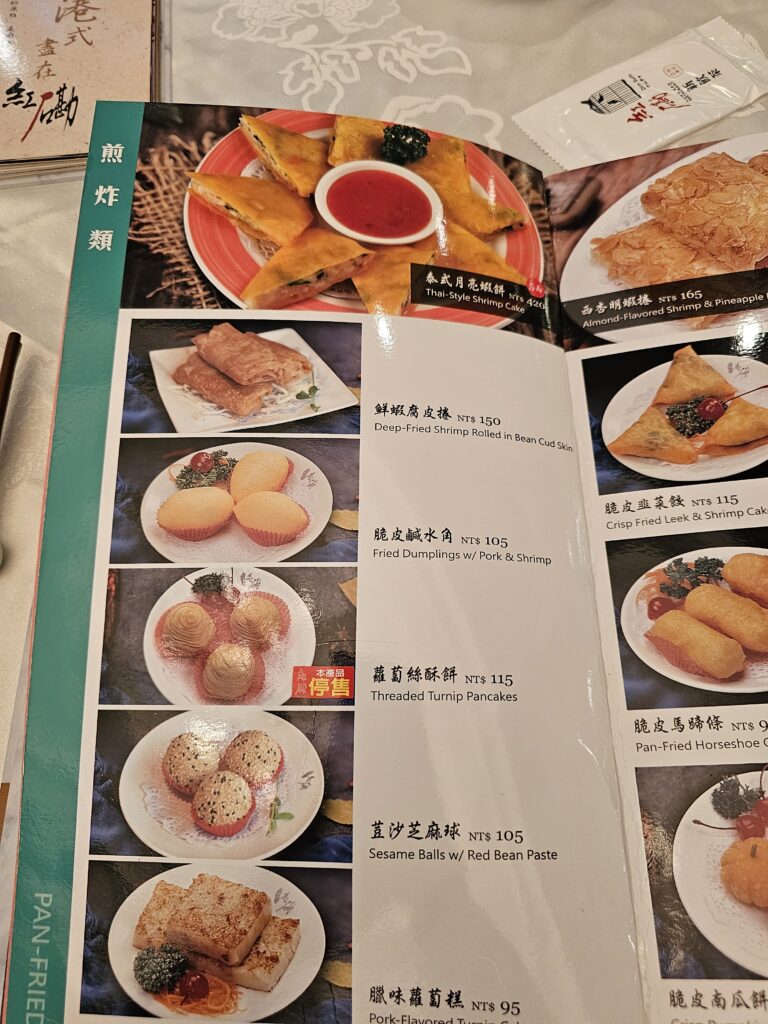
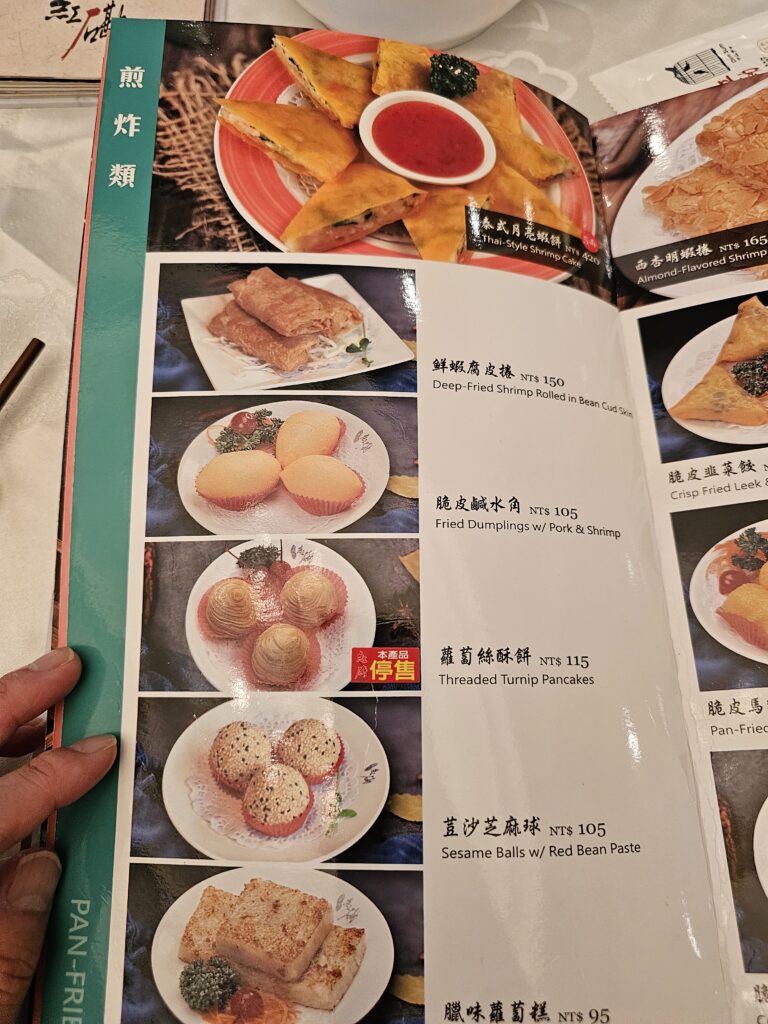
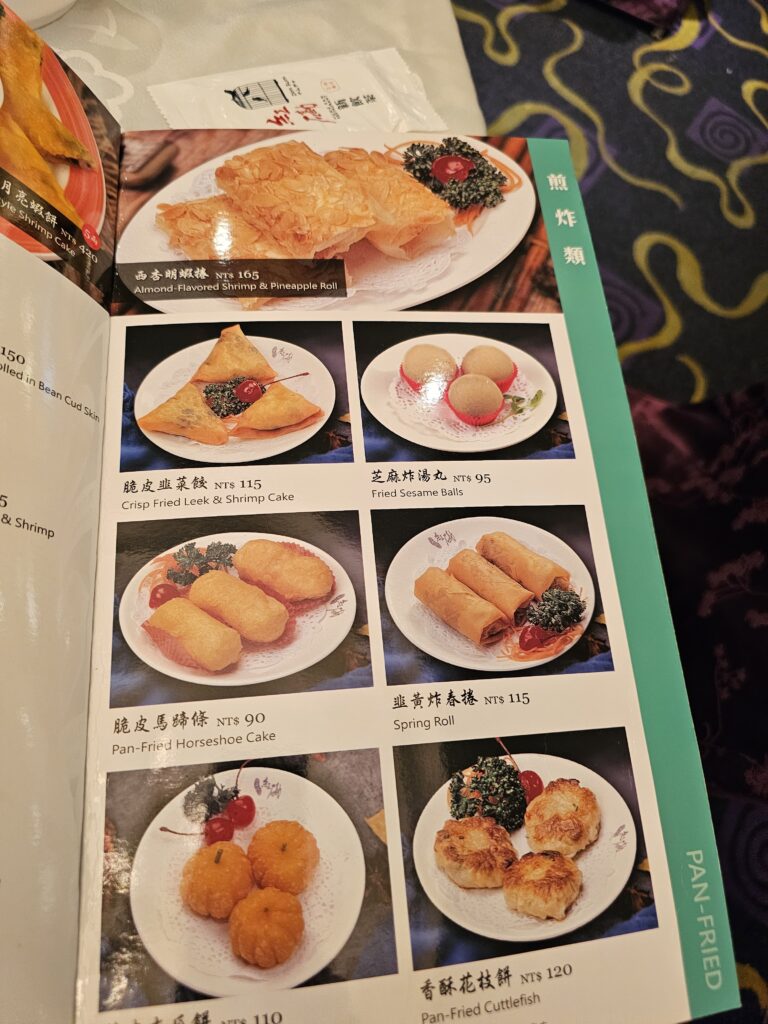
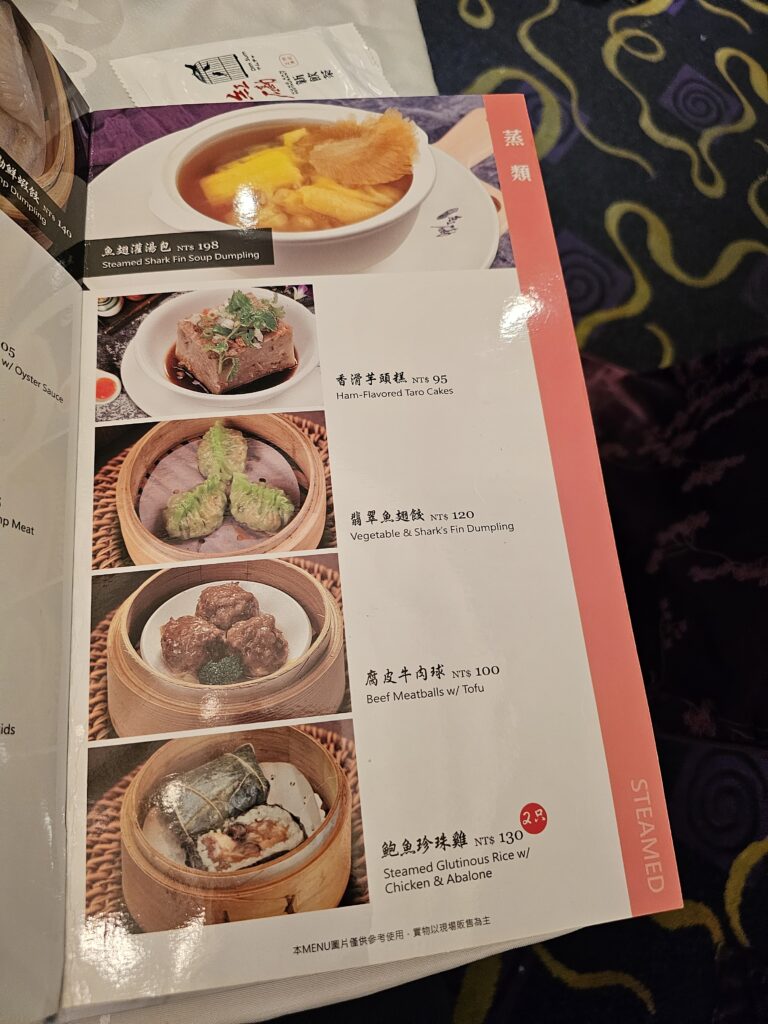
There was just so much to choose from, lol, it was hard for me to narrow it down. I wanted to try new things but also wanted to try old favorites back home to see how they stack up against dim sum in Taiwan. I ended up getting creamy egg yolk buns (120 NTD, $3.76 USD), steamed glutionous rice with chicken and abalone (130 NTD, $4.07 USD), and fried dumplings with pork and shrimp (105 NTD, $3.29 USD).
That’s the big drawback with traveling solo, I’m not able to get and try as much food as I’d like!
The Food
Creamy Egg Yolk Buns
Starting with the creamy egg yolk buns.
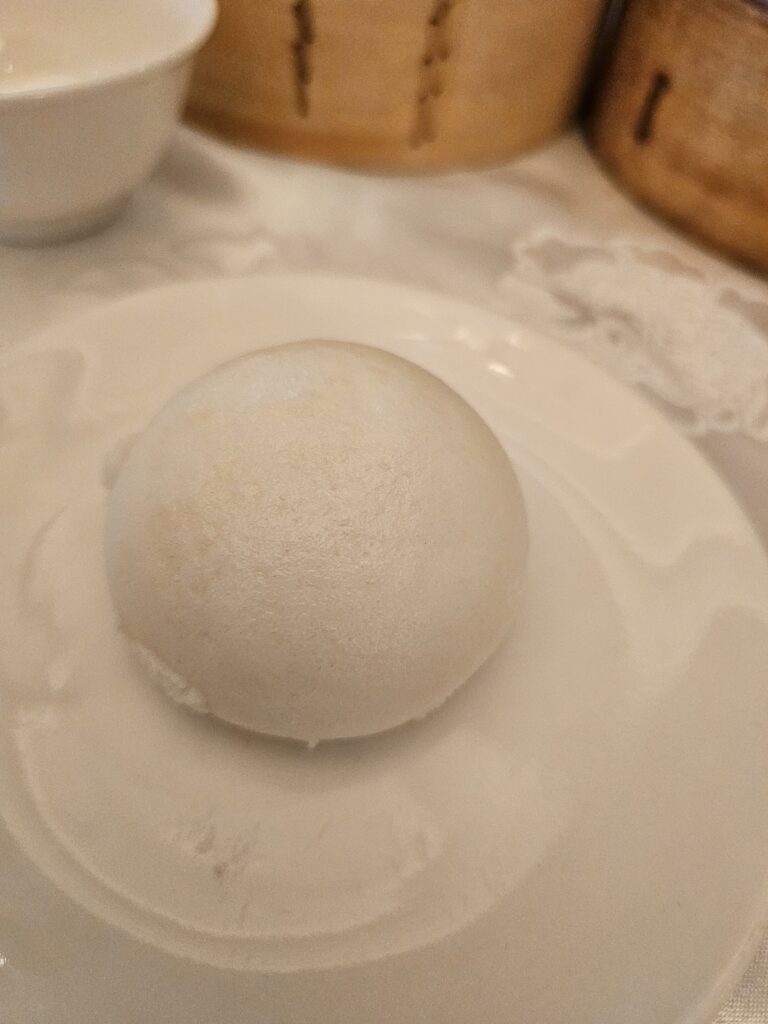
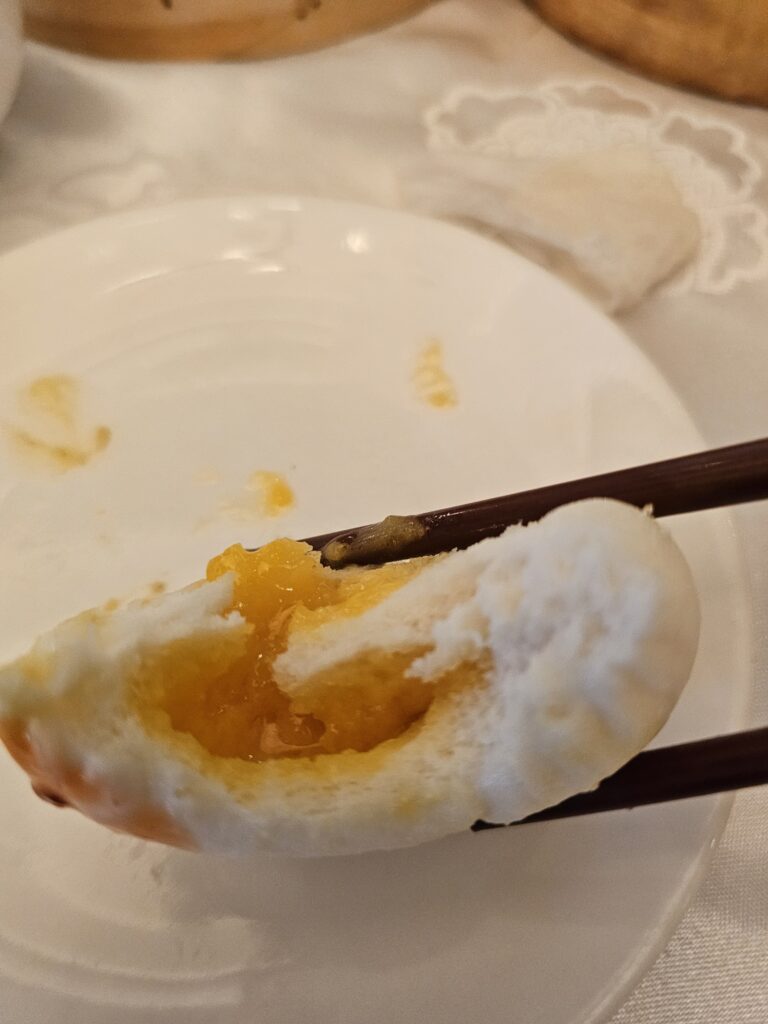
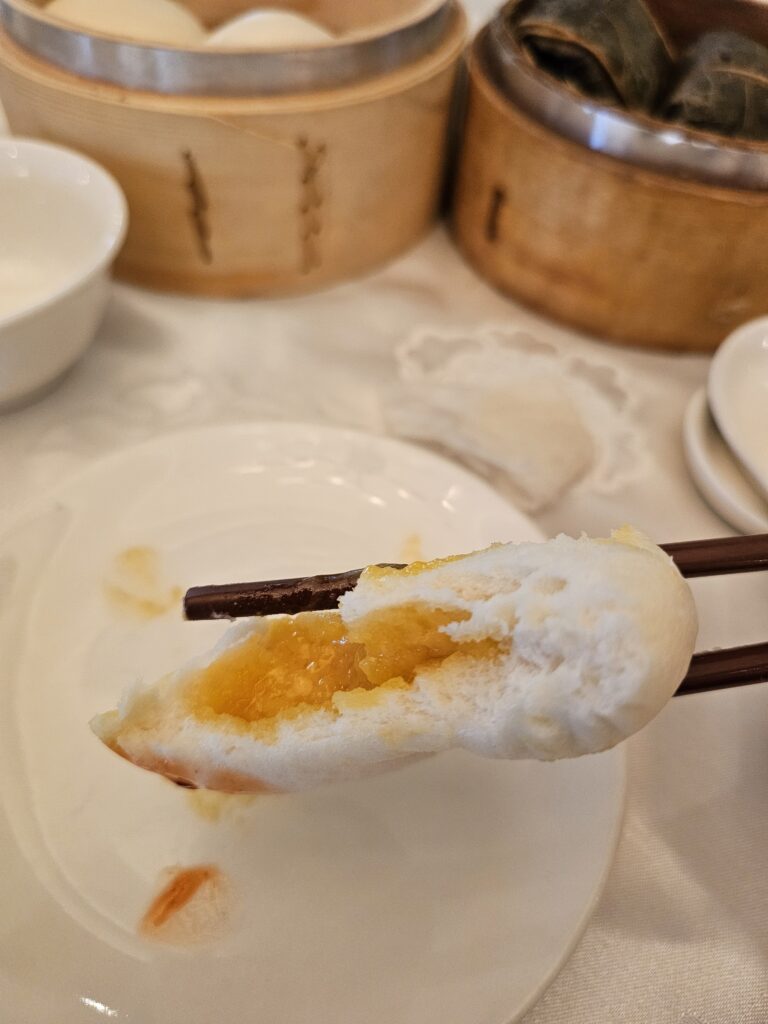
These things were super light. The dough was incredibly light and airy and the egg filling was a little runny and surprisingly sweet. I wasn’t expecting that sweetness, but it was a pleasant surprise. The yolk was more like custard in my opinion. These were really tasty overall. Even better when they were first brought out and nice and warm. Yum!
Sticky Rice
Next up was the steamed glutionous rice with chicken and abalone which, seemed to be a long-winded name for sticky rice wrapped in a lotus leaf. This was pretty much like the sticky rice I have at dim sum down in Southern California. It had a rich, savory flavor to it, and was extremely sticky (of course). The bits of chicken, abalone, and mushrooms in it was tasty, and they all went really well together. It didn’t necessarily stand out from the sticky rice that I get back home but it was definitely solid.
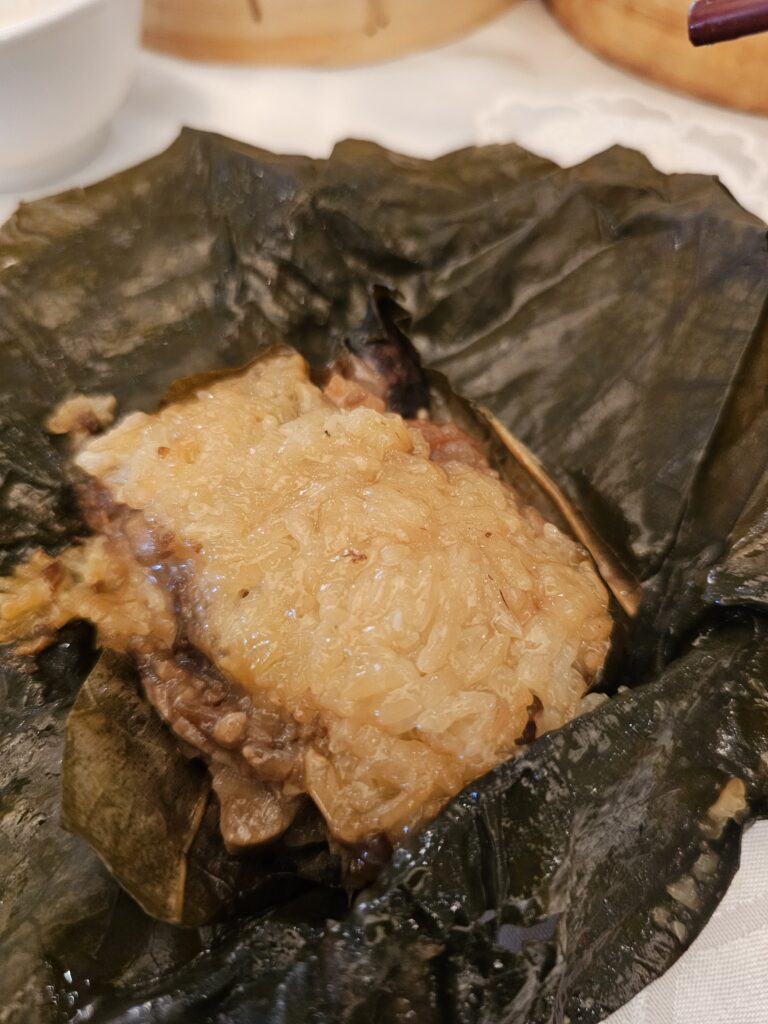

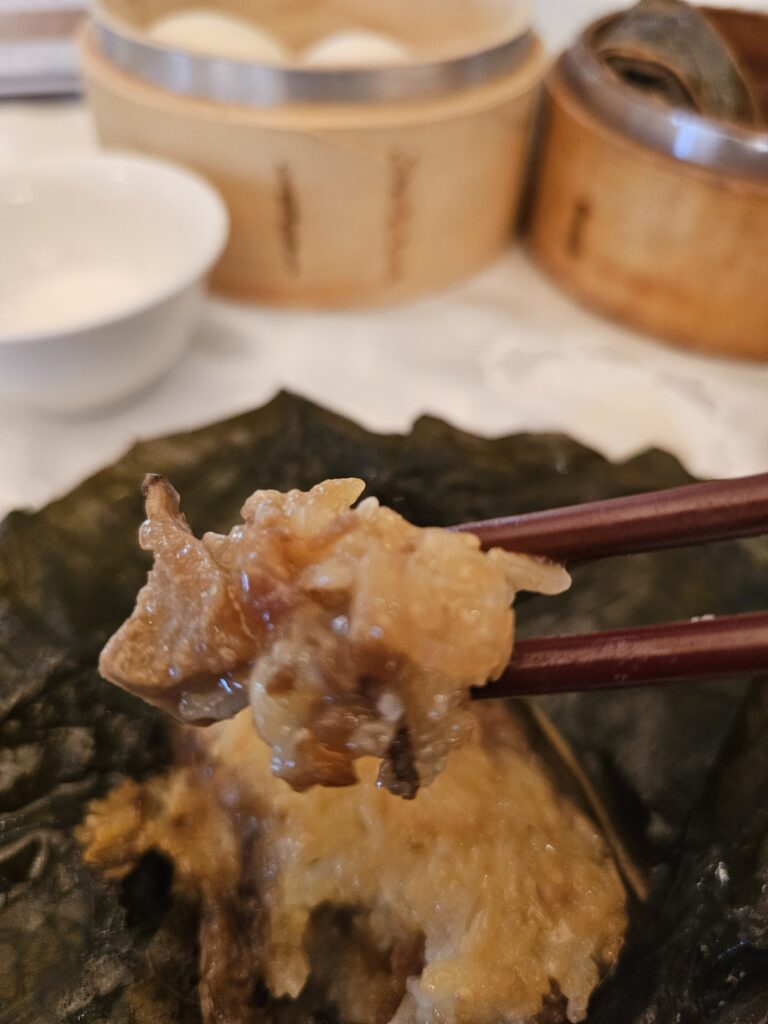
Fried Dumplings with Pork and Shrimp
These dumplings had a super hard exterior. Trying to pick one up with chopsticks was like trying to pick up an egg, lol. Which is fitting since these were egg shaped. That was the initial impression I got of them. Once I actually picked one up and took a bite, it was pretty solid. The fried dumpling definitely had a very crunchy exterior as you’d expect since they’re fried. The inside portion was nice and gooey.
The filling was lacking in this though. It was pretty tasty, there just wasn’t very much of it inside of them. It seemed like the dough to filling, ratio was heavily tilted to dough. It was hard to taste the filling with so much dough. These would have been quite good if there was some more filling in them.
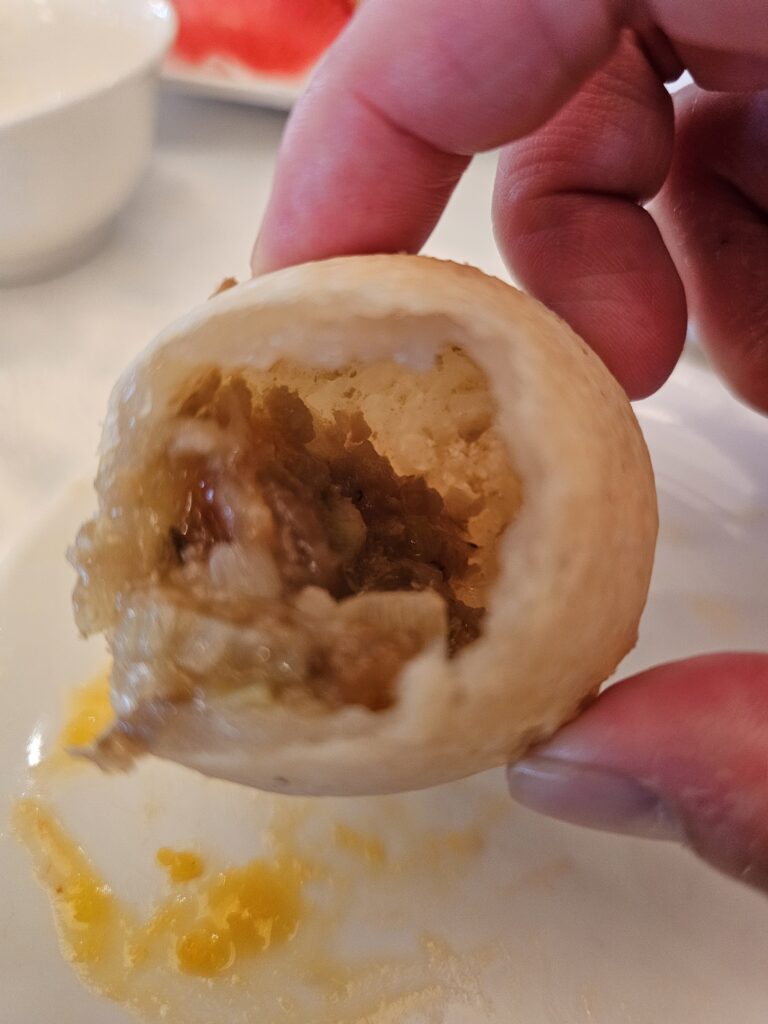
Was There Any Difference In The Dim Sum?
I really couldn’t tell too much of a difference between the dim sum in Taipei than what I have in Southern California. Although there’s way more items on the menu and a lot of different items that I hadn’t seen before in Southern California. It would have been nice to try way more of the menu and experience some of those other items that I don’t really see here in Southern California. BUT the items I did have, were really good and I enjoyed them. They just didn’t necessarily floor me.
-
How Good Is Authentic Chinese Hot Pot In Taiwan?
Hot pot in Taiwan is without a doubt, a popular meal. Many different cultures worldwide have put their own spin on hot pot with different broth bases, spices, meats, and vegetables.
China is the home of hot pot and where it originates from. Though the origins may be debated, in terms of where within the country it originated from, hot pot is a uniquely Chinese meal and is immensly popular there.
It only makes sense that hot pot in Taiwan is also extremely popular, due to the close cultural ties.
Table of Contents
The Origins Of Hot Pot
Hot pot in Taiwan is not only a delicious, beloved meal, it’s also very, very, old. Its origins date back to the Three Kingdoms period (220-280 AD) which correlates with the creation of copper pots.
How it precisely evolved is a bit of a mystery. It’s said that the Mongols had a strong influence in it’s growth. It’s also rumored to have become more popular at the communal level within temples and other public spaces.
Regardless of it’s true origins, hot pot came to prominence during the Ming and Qing dynasties (late 14th century to early 20th century) when the meal started to be eaten and enjoyed by the upper echelon of society, most notably by the emperors.
Regional adaptions with different spices, broths, meats, and vegetables spread throughout the country over time and eventually the beloved Chinese dish spread throughout the world.
Hot Pot In Taiwan
I was a few days into my trip and was certainly looking forward to having my first hot pot in Taiwan experience. Love Hot Pot was right next to the hotel I was staying at in the Luzhou District, had great ratings, and most importantly, was BUSY (the photo below was in the morning before it was open, lol).
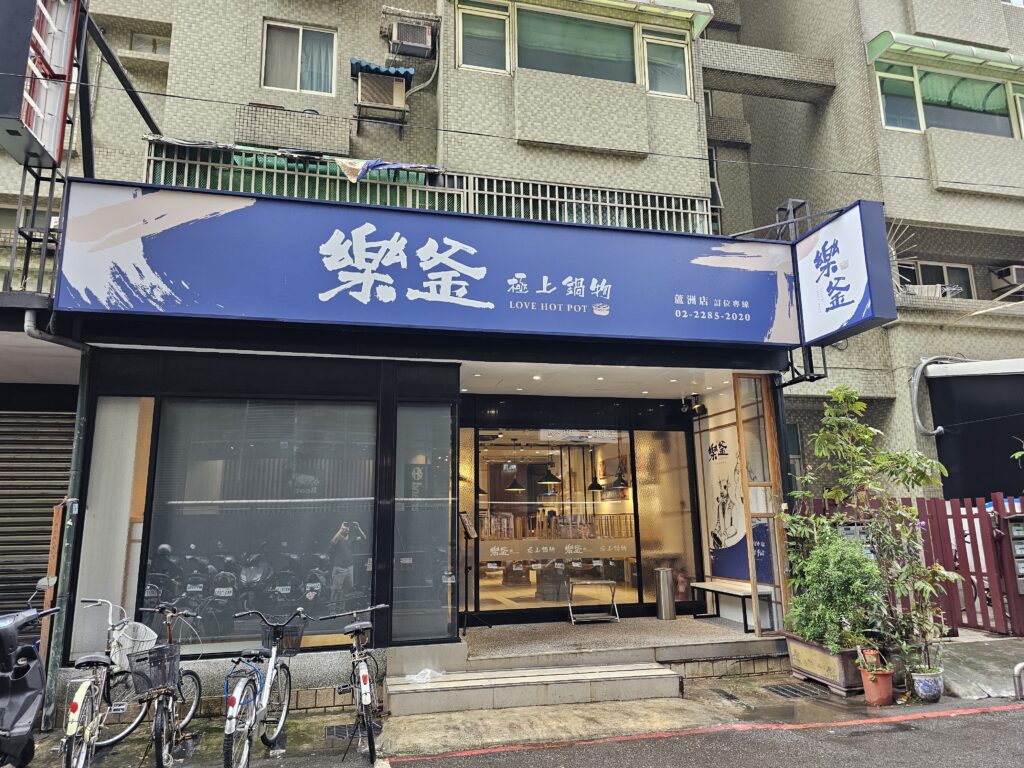
They had quite a large menu, with lots of different options and price points. It was easy to find something within my budget. It was tough to decide on just what I wanted to get though since there was a lot of items you could get on the side as well, which of course all sounded quite delicious.
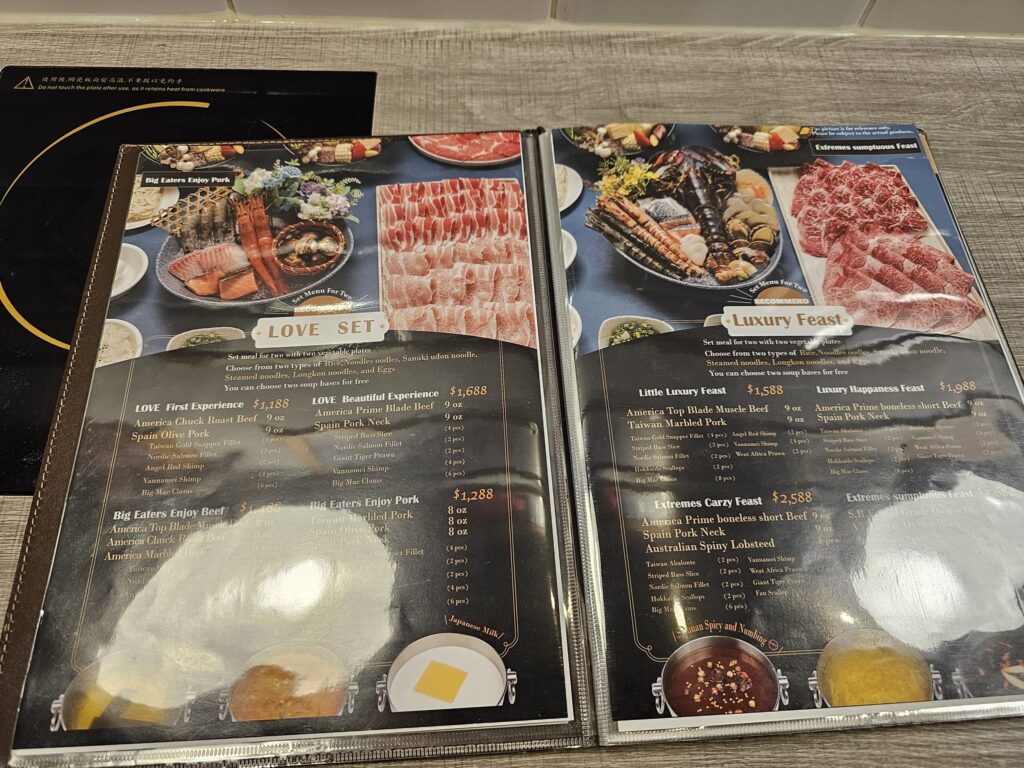
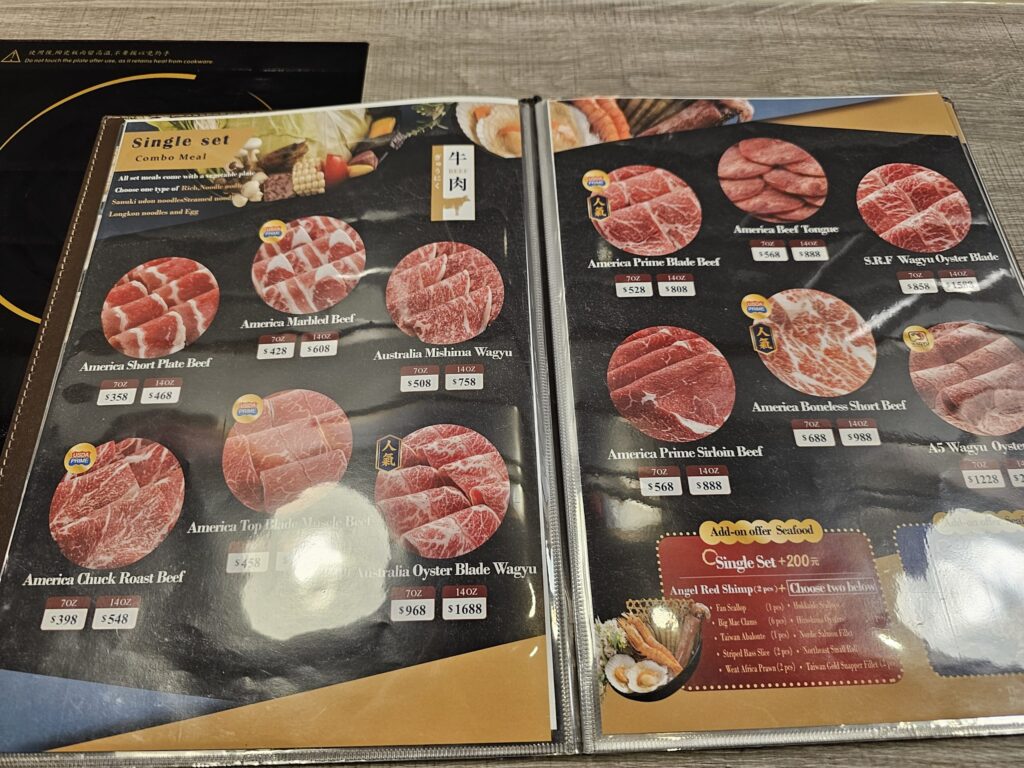
I ended up getting the 14 oz. American Chuck Roast Beef which came with a big side of vegetables then as side additions I got two shrimp, hokkaido scallop, and two pieces of atlantic salmon (949 NTD, $29.54, USD). I went with Sichaun as my soup base, since I wanted that spicy kick!
While I was waiting for my food to come out, there was a dipping sauce station, with a whole lot of different items to mix and match and make whatever kind of dipping sauce you could want. I really have no idea what kind of concoction I made here. There was some soy sauce, garlic, daikon, onion, black vinegar, some green onion. So pretty much everything but the kitchen sink, lol.
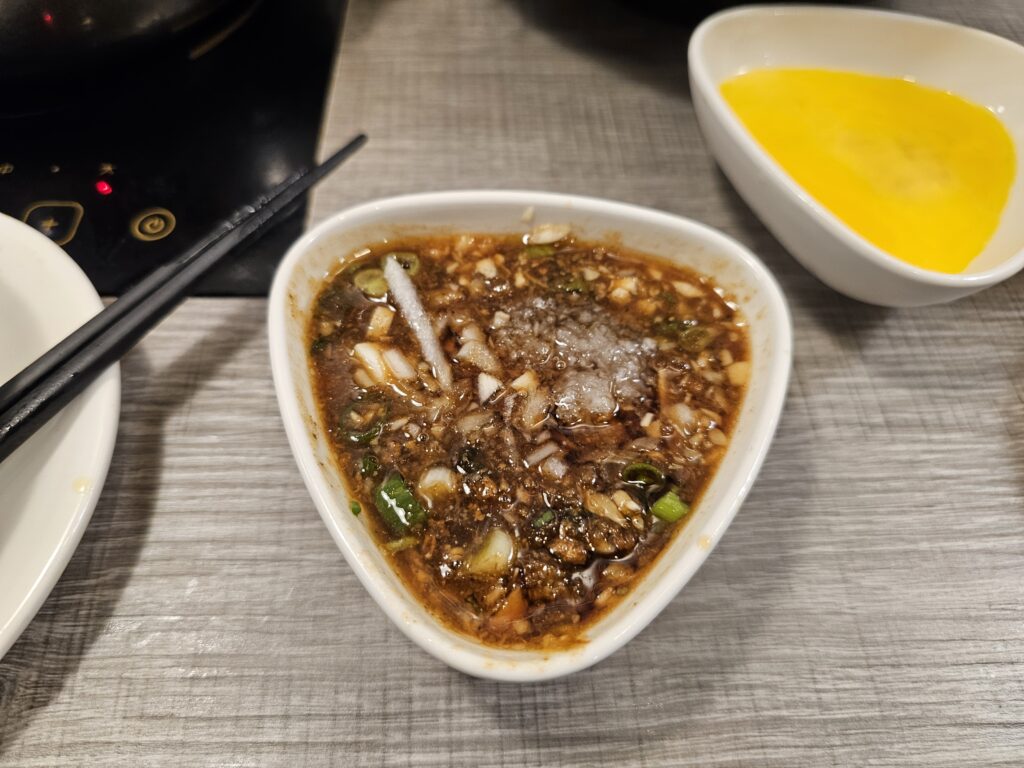
The Food
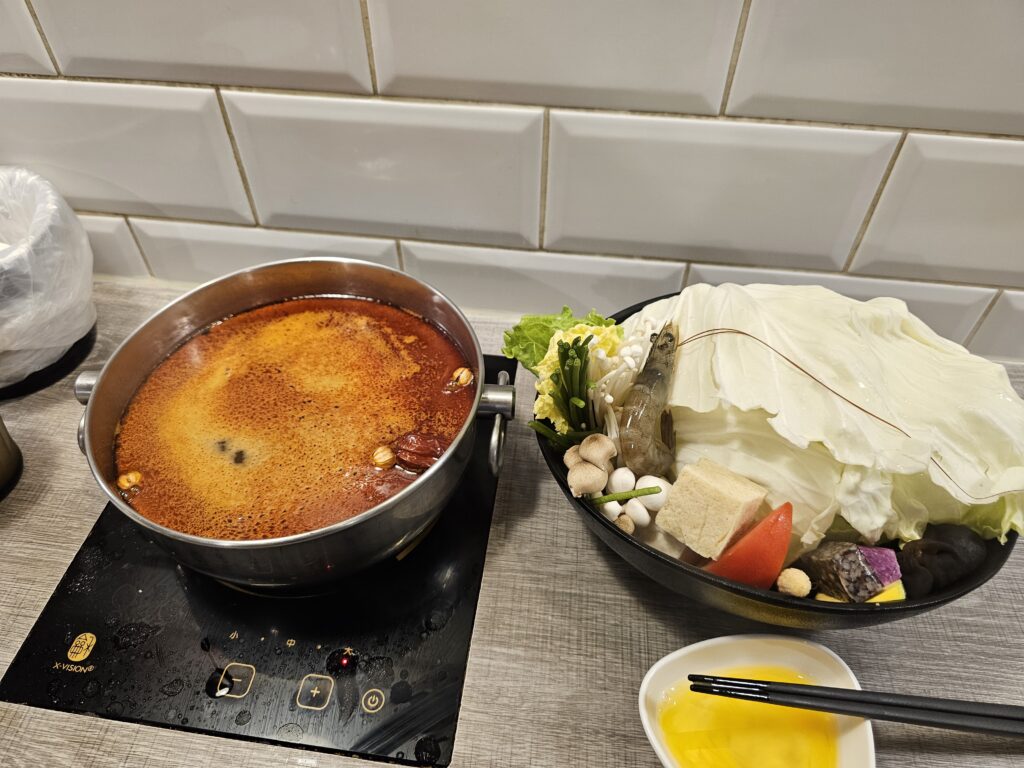
The sichaun soup base was definitely tasty. It had a rich, deep, flavor to it, and as you might expect by how red it is, a hearty, spicy kick to it.
I got a huge bowl that was filled with veggies. There was napa, cabbage, mushrooms, lettuce, tofu, tomato, taro, and a ton of other stuff I wasn’t completely sure of, but it was a lot, and I ate all of it!
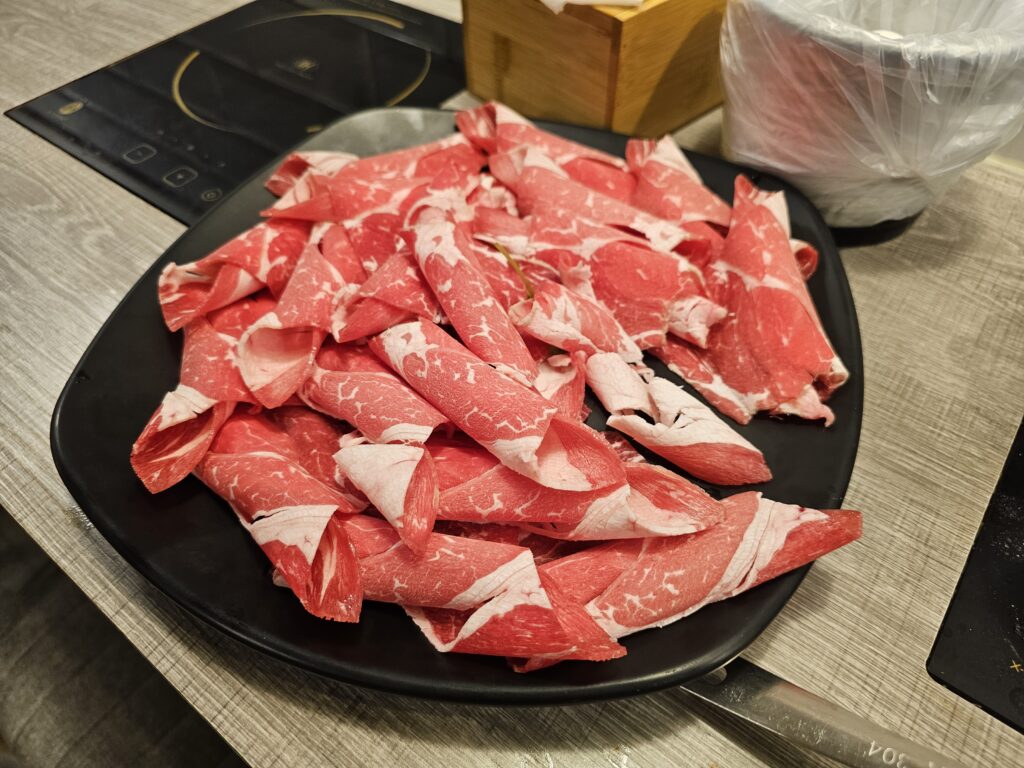
The plate of meat was quite hefty and definitely pretty tasty.
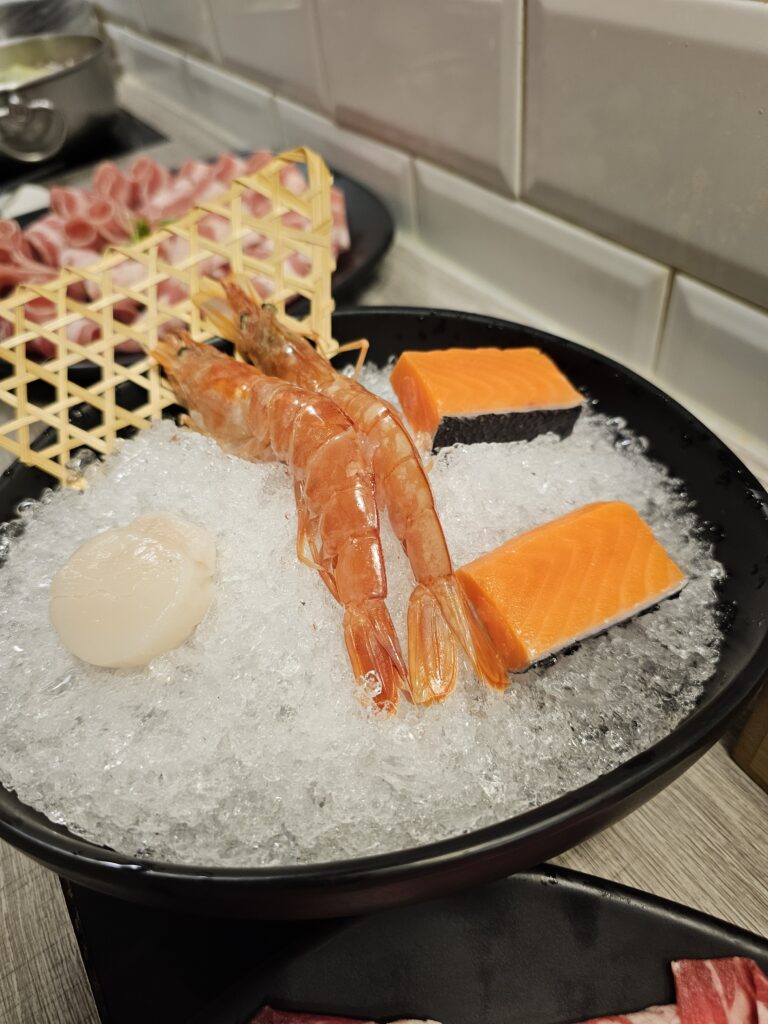
This was the extra seafood sides that I got. They literally came out on ice, nice!
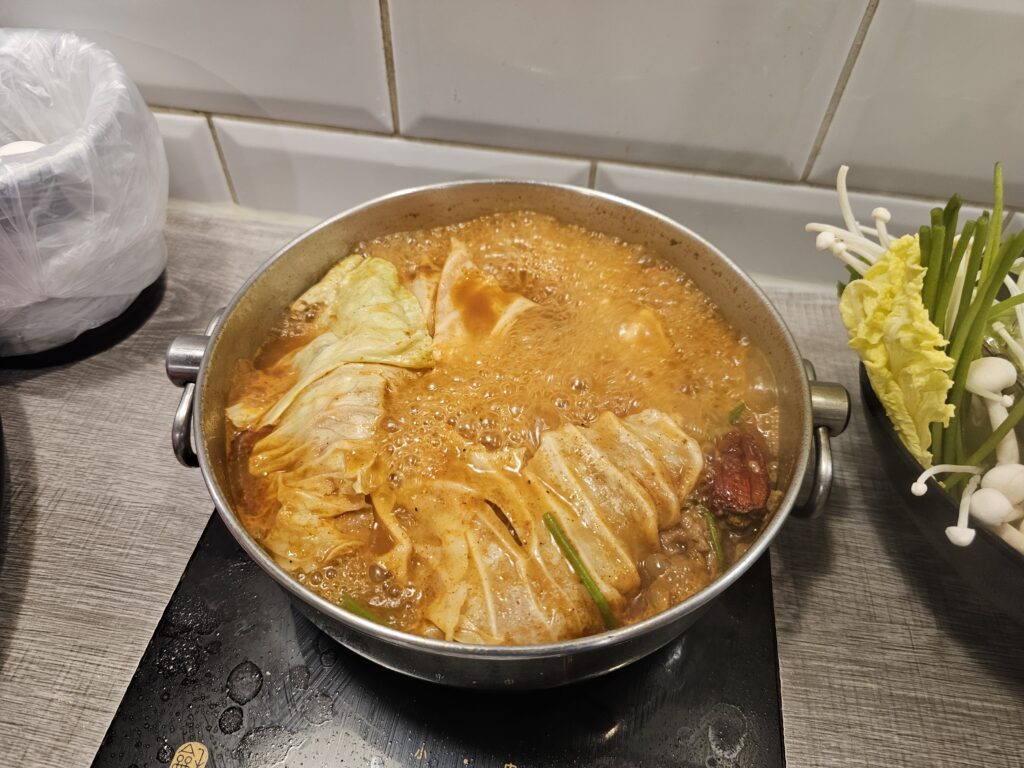
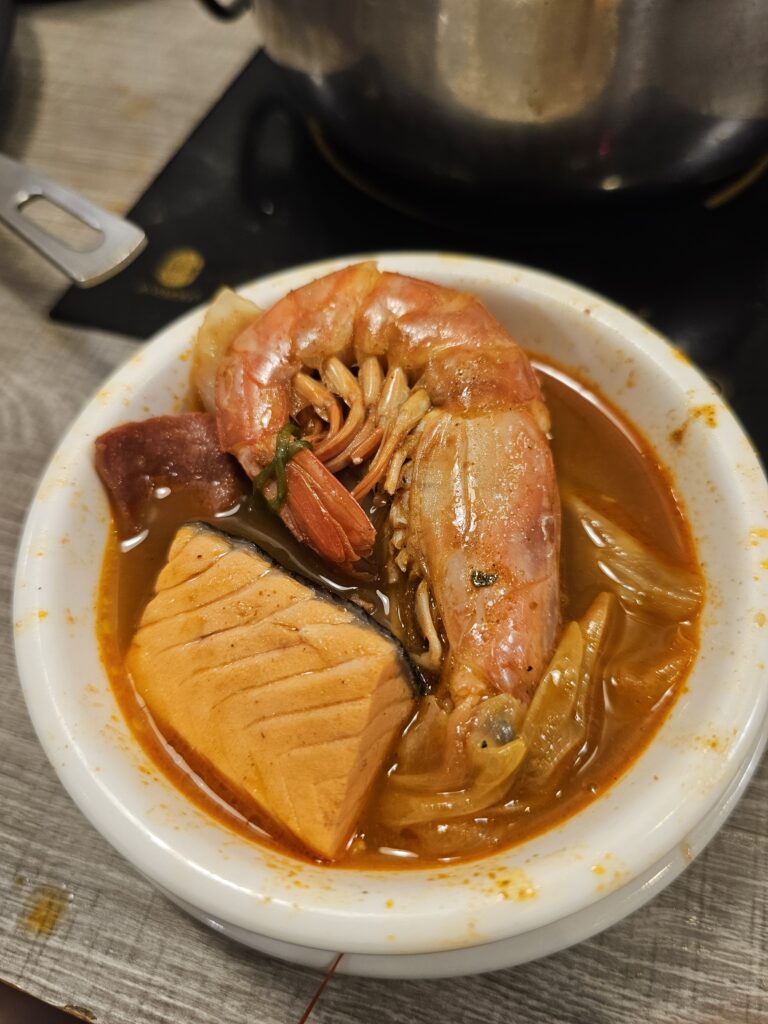
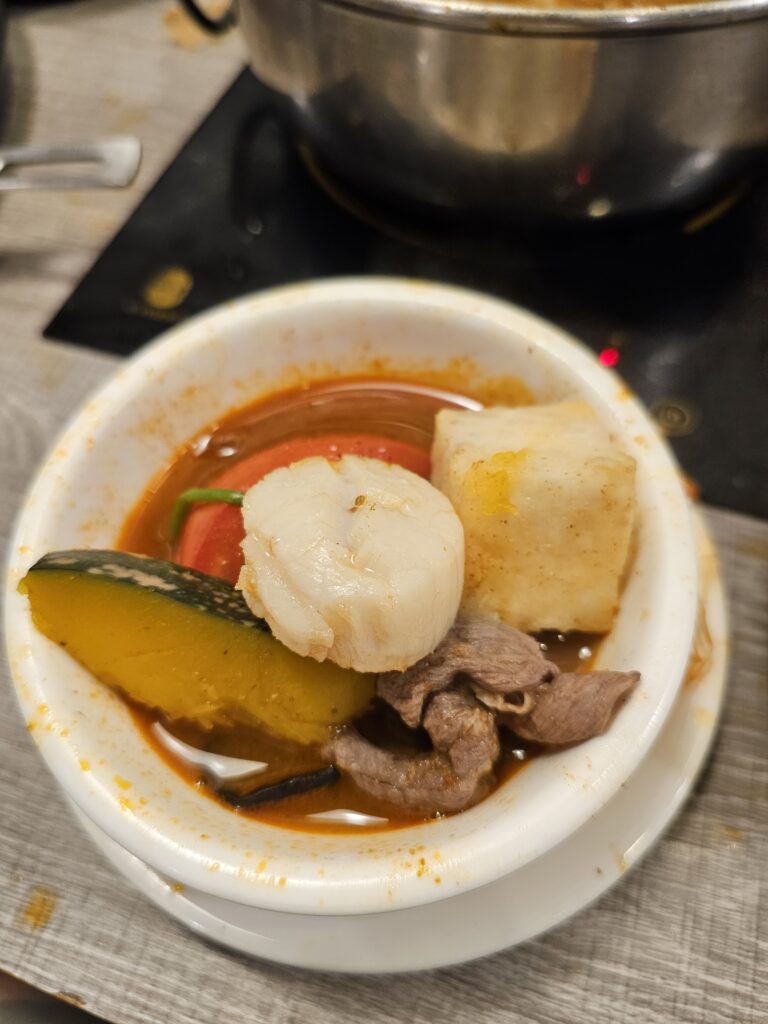
Overall, this was a TON of food to get through, but I wasn’t complaining and was up for the challenge. I really enjoyed how fresh everything was.
The seafood was delicious, the shrimp nice and sweet and very meaty. The hokkaido scallop was sweet and delicious.
The vegatables were crisp, tasty, and really soaked up that spicy sichaun soup base.
That random dipping sauce concoction I made was actually really good. I dipped everything in it, haha.
To end the meal there was an ice cream station too. They had a handful of flavors, including Thai tea and tropical fruit, which is what I went with. I was quite full, but there’s always going to be room for ice cream at the end of a meal.
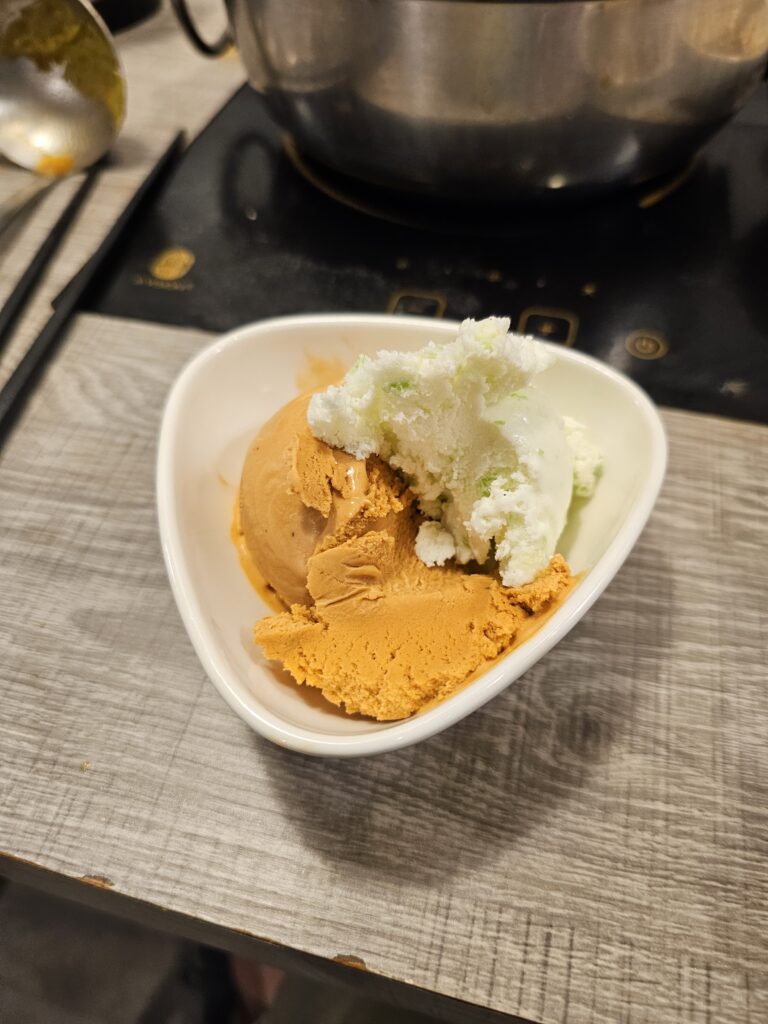
How Was The Experience?
All in all, this was a really delicious meal. For 949 NTD, $29.54, USD I got a ridiculous amount of food and stuffed my face. The meat, veggies, seafood, were all really fresh and delicious. I really enjoyed it. The dipping sauce bar, with its wide array of options and the ice cream were great little sides as well.
My first experience with getting hot pot in Taiwan was certainly a very enjoyable experience!
-
Is The Beautiful Beitou District Worth Visiting In Taipei?
Beitou is a popular tourist destination for both international travelers and domestic travelers alike due to its famous hot springs. Located in the northernmost part of Taipei, Beitou can feel like a completely separate city than Taipei. If you need a break from the hustle and bustle of Taipei, Beitou can be just the place for you.
Table of Contents
The History of the Beitou District
What makes Beitou so popular and famous is its hot springs. The hot springs have long been used by whomever has occupied the area.
The aboriginal people of Taiwan whom lived in the area had long used the hot springs prior to any foreigners.
Once trade to Taiwan opened up, German merchants established a hot spring club at one point in Beitou.
The hot springs were recognized, utilized and, ultimately commericalized, during Japanese rule (1895-1945). The first hot spring hotel (Tianguan Hot Spring Hotel) was built in 1896 and the first public hot spring bath (Beitou Hot Spring Public Bath) was constructed in 1913.
Japanese rule in Taiwan ended in 1945 and was handed back to China. Beitou fell under Taipei jurisdiction in 1968. The area declined for a period of time in the 1980s before it slowly started to rebuild itself and gain popularity once again.
Today, there are over 30 hot spring resorts in the district, one of the largest concentrations of hot spring resorts in the world.
Beitou Hot Spring Museum
The Beitou Hot Spring Museum was originally built as a public bathhouse and was constructed in 1913. After Japanese rule ended in Taiwan in 1945 the building was used in a variety of different ways but was eventually abandoned. The corrosive nature of the local hot springs had taken hold of the building and done its damage. It wasn’t until 1995 when Taiwan’s Ministry of the Interior declared the building a historical site. In 1998, a major renovation of the building took place and the Beitou Hot Spring Museum was created.
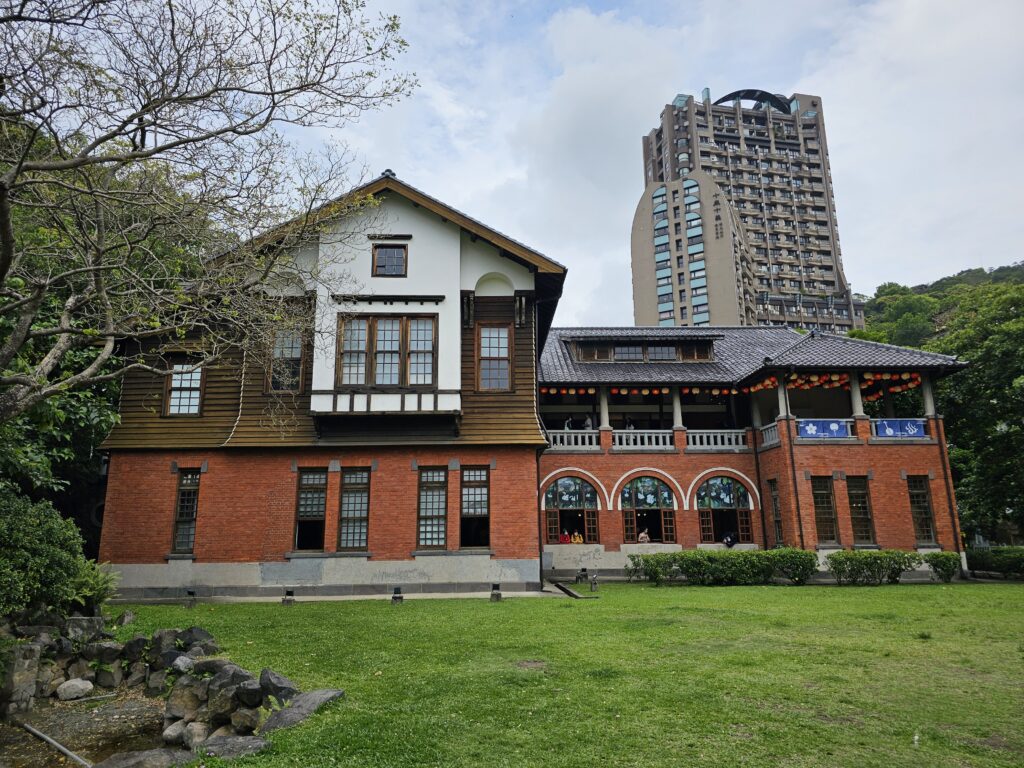
This little museum is free of charge and provides the history of the hot springs in Beitou, from it’s humble beginnings to its fall, and then its restoration and rise to the popular tourist destination it has now become.
It still retains some of the original bathing rooms, which is pretty interesting to see and to learn about!
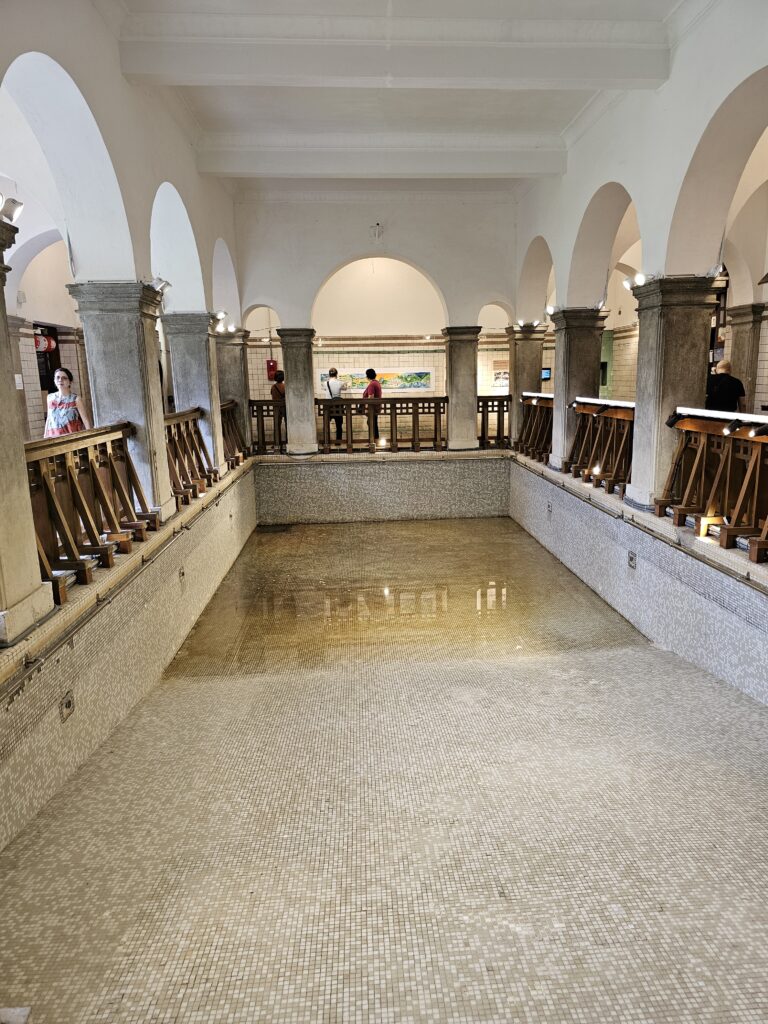
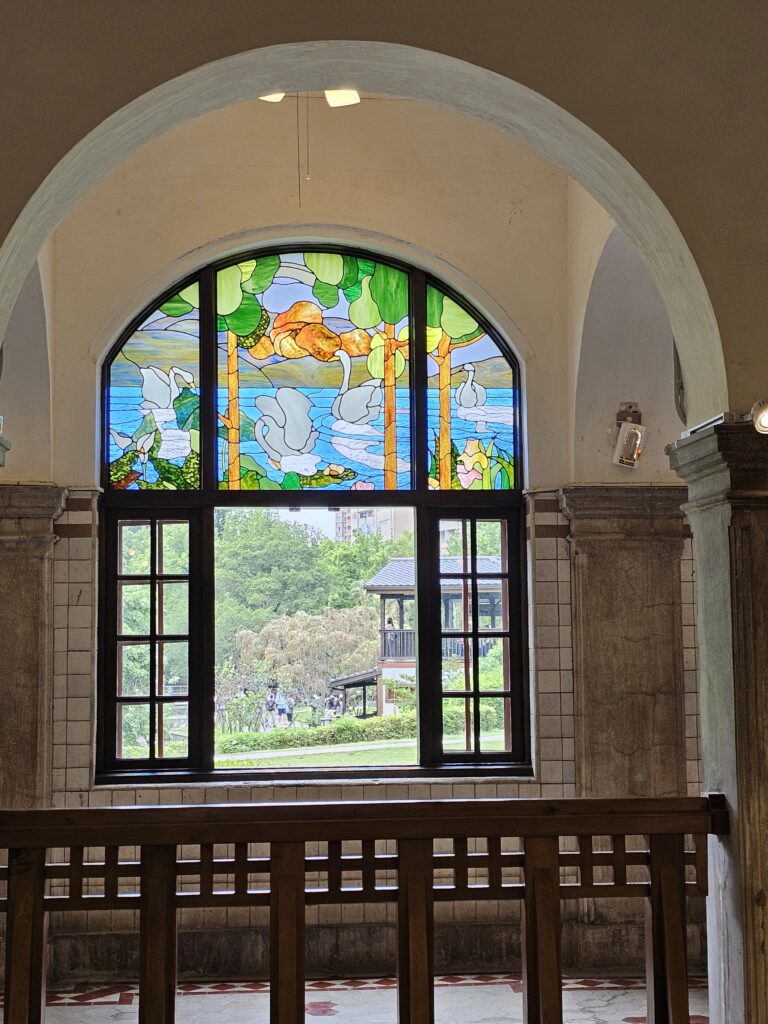
Beitou Library
Located right next to the Hot Spring Museum is the Beitou Library. The first “green” library in Taiwan, this distinctive looking building is notable for its architecture, which at a quick glance resembles a giant treehouse.
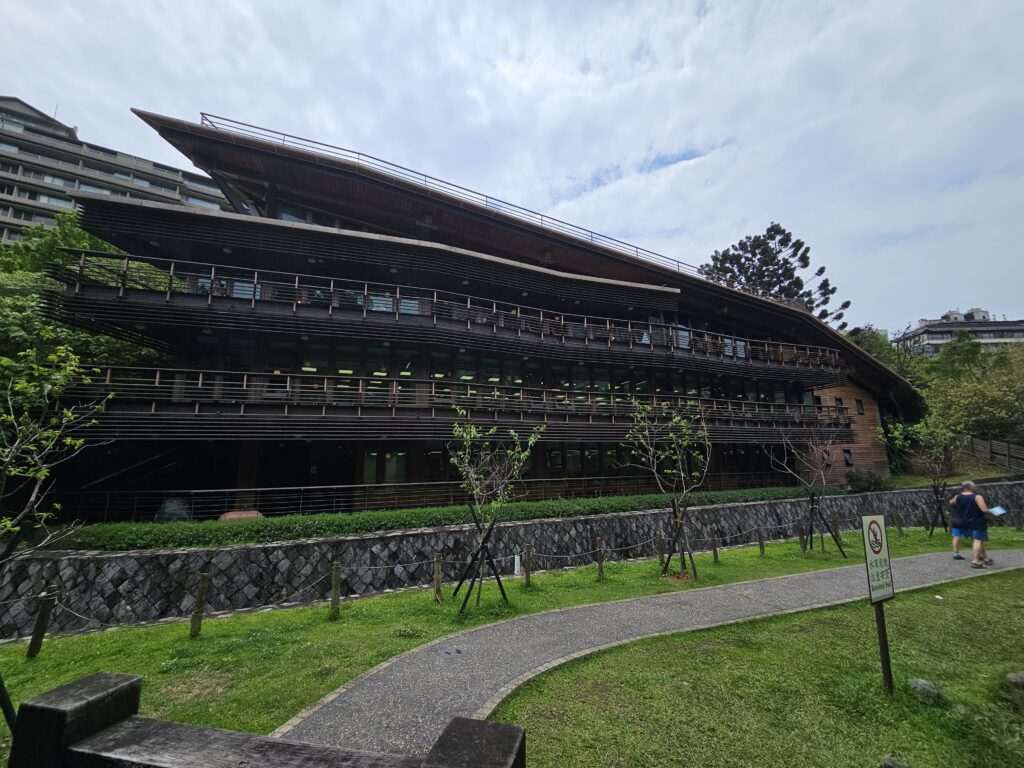
The library is adorned with a number of large windows that provides a lot of natural lighting throughout the buidling and helps to curb the use of electricity. Part of the roof is covered in solar panels which helps to store and utilize electricity for the building. The sloping roof’s drainage system is used to water the library’s plants and flush the toilets.
Since you can’t take pictures inside the library I didn’t venture in, just walked around it and checked it out. It’s a really cool looking, interesting builidng which happens to be a library.
Thermal Valley
Also known as Hell Valley, Thermal Valley, is a popular attraction in the area. It’s one of the sources that supplies the area’s hot springs. The average temperature of the water sits at a “cool” 80-100 degree celsius year round which produces a mystifying sulfur steam within the valley. There’s a nice little paved path that takes you around the valley where you can enjoy different viewpoints of the steam rising. It’s a really little walk watching the steam rise up from the depths of this blue /green spring water.
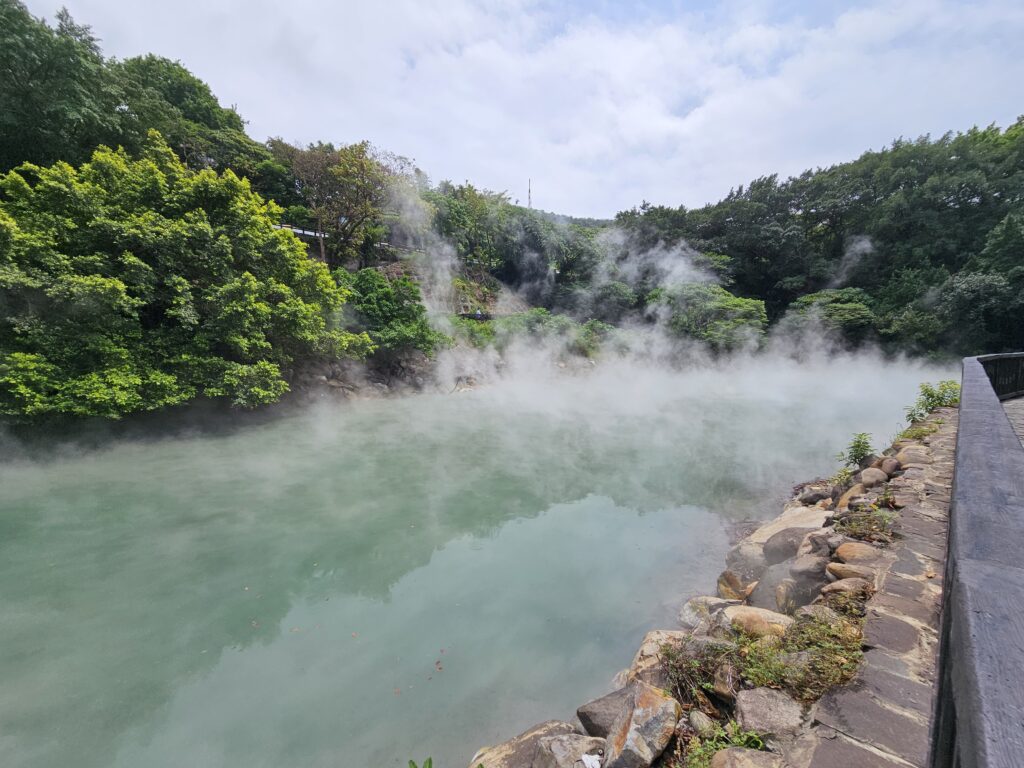
Visit A Spa Resort
If you’re visiting an area known for their hot springs then you gotta visit a spa resort right? ABSOLUTELY. There’s a wide range of spas you can visit in Beitou, ranging from the boujee and luxurious to the budget types. So it all depends on how much you’re willing to spend and what kind of experience you want to have.
I opted for more of a budget option. I really just wanted to relax for a couple hours for the experience and wasn’t looking to lounge for an entire day or even half a day. I was able to find a place that suited my needs for a reasonable cost – 1670 NTD, $51.98 USD for two hours.
It really was a perfect amount of time to relax and enjoy a nice soak at the tail end of my visit to Beitou. The water from the hot springs as one would imagine is piping hot and it’s really comforting to just relax and enjoy some peace and quiet.
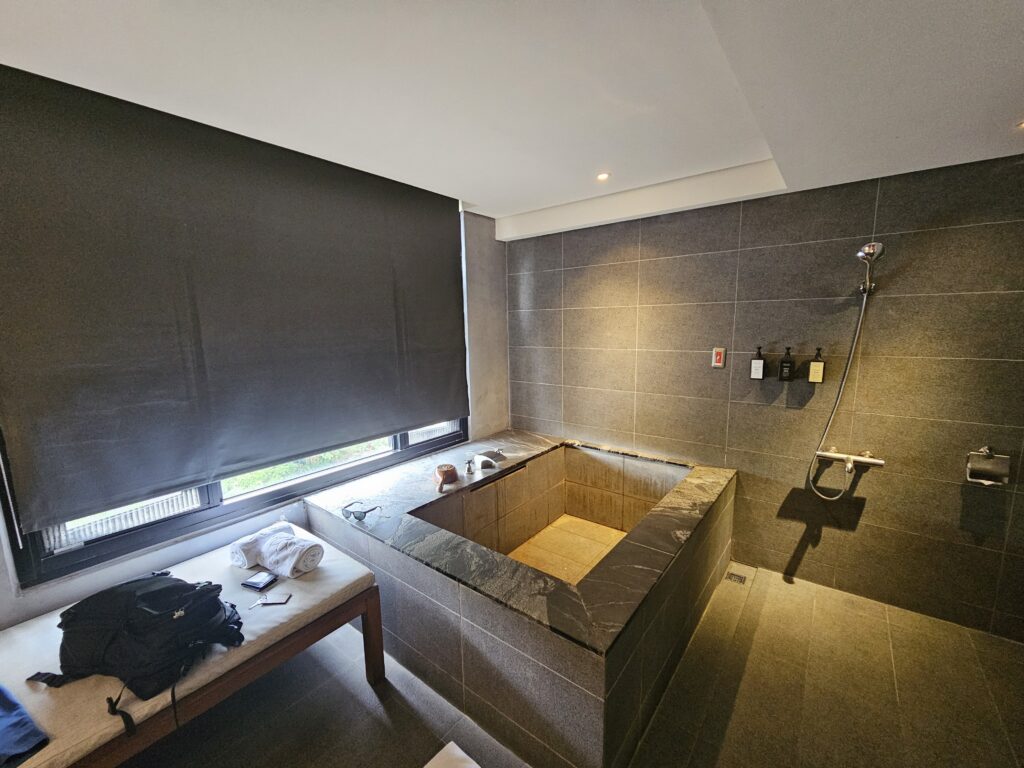
Is Beitou Worth Visiting?
If you’re visiting Taipei and want to have a totally different experience then what you’ve had in the city then 100% Beitou is worth a visit. Individually, the sights are cool, especially the Thermal Valley, but none by themselves would really warrant a time-consuming trip from the center of Taipei to get to and visit. But the sights, combined with a stay at spa, make a trip to Beitou well worth it.
Even though it’s technically part of Taipei, it just doesn’t feel like Taipei at all. Just a completely different vibe, much more laid back and less hectic. You feel like you’re in a totally different city. I really enjoyed it and would consider staying there for a night or two during my next trip to Taiwan just to fully unwind and relax at one of the spa resorts.
-
Is Go Dumpling A Legitimate Go To Restuarant In Taipei?
Table of Contents
In Taipei there is no shortage of places serving dumplings. That’s an understatement. You can find dumplings everywhere within this foodie haven of a city. It takes a special dumpling to really stand out within the city. After having spent my evening watching a Wei Chaun Dragons baseball game (a professional baseball team in Taipei) I was looking to cap my night with delicious food and stumbled upon Go Dumpling as I was walking back to my hotel.
The Go Dumpling Experience
Go Dumpling is pretty small and non-descript on a street in the Shilin District. What caught my eye was the green door, the violin menu holder (or whatever stringed instrument that may be lol), and the pig in a bowtie cutout that are all out in front of the restaurant.
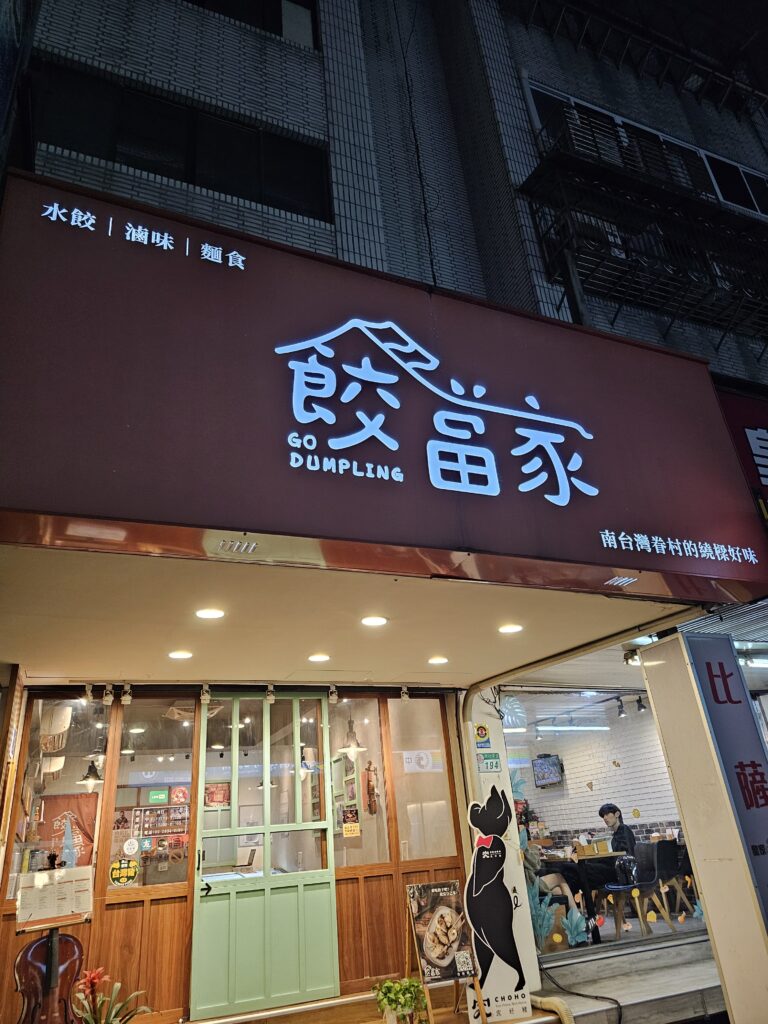
Intrigued by these quirky items and colorful door and most importantly hungry, on the verge of hangry (lol), I decided to check out the menu.
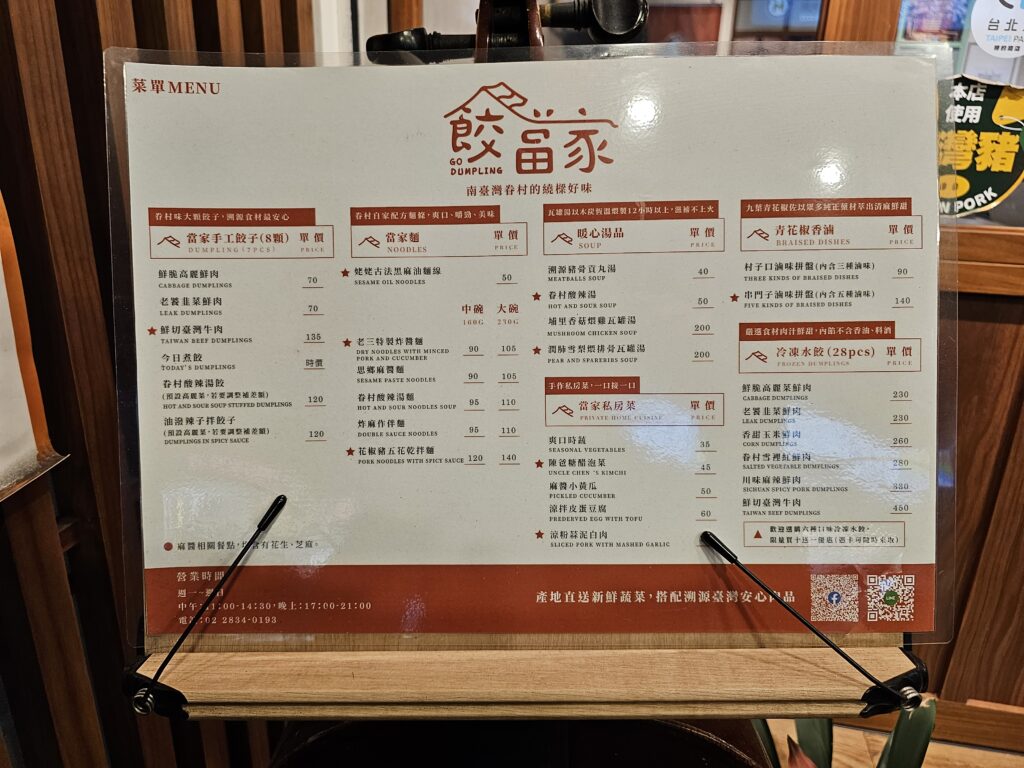
There were definitely a lot of interesting items that caught my eye. The menu wasn’t huge but what they had sounded pretty tasty! There were six different sections on the menu: dumplings, noodles, soup, private home cuisine, braised dishes, and frozen dumplings. and the prices were certainly reasonable, so it was an easy choice to stop here and grab some food!
The Food
So, here’s what I ended up getting during my visit to Go Dumpling: dumplings in spicy sauce (220 NTD, $6.86 USD), hot and sour soup (50 NTD, $1.55 USD), and sesame oil noodles (50 NTD, $1.55 USD).
The Spicy Dumplings
Eating at place called Go Dumpling, it was a no-brainer to grab some dumplings here. Spicy dumplings? Sold! I liked the presentation of these. There were about six or seven of these in the bowl with finely shredded cucumber layered over the top with green onion and sesame seeds sprinkled over the top.
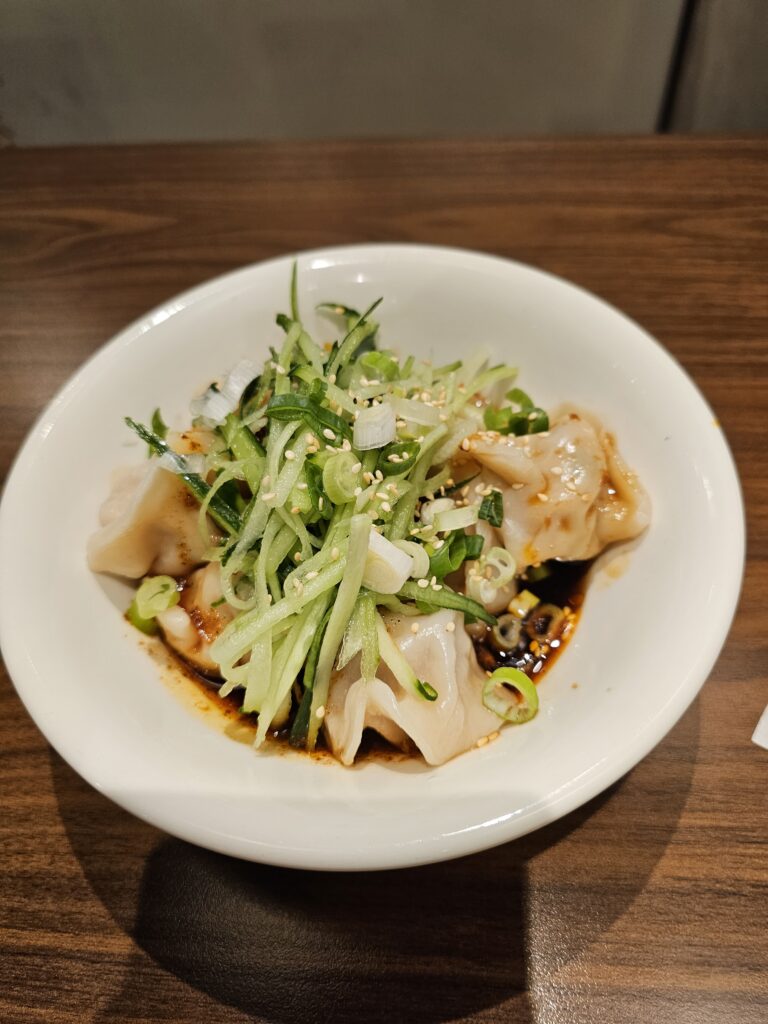
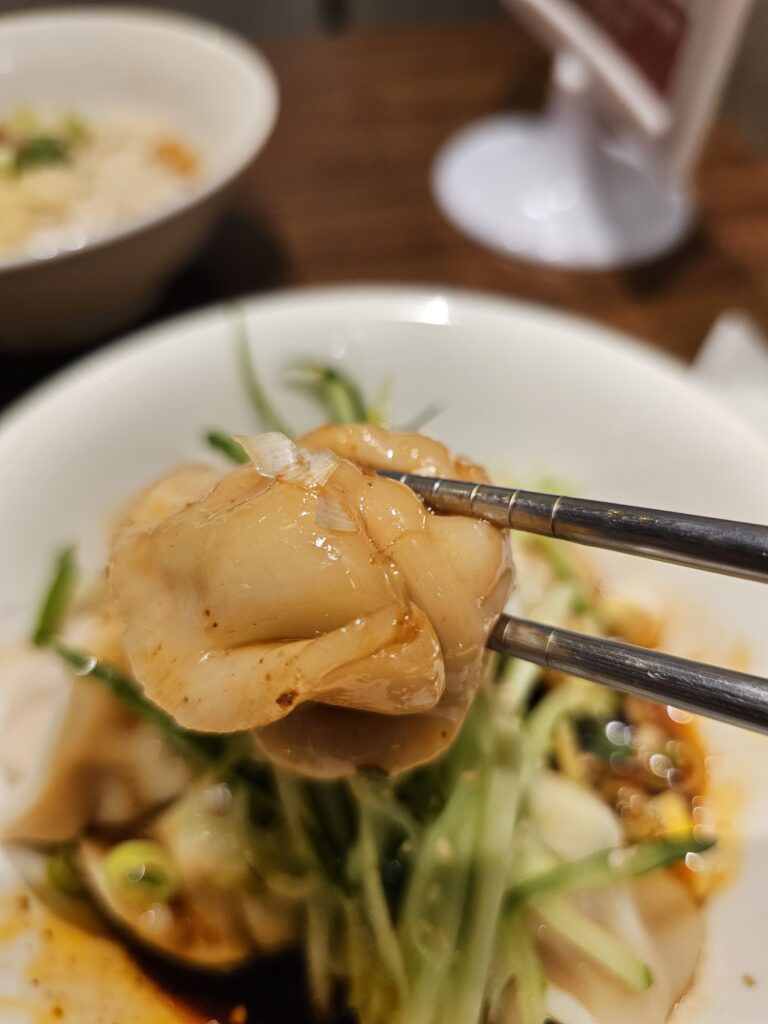
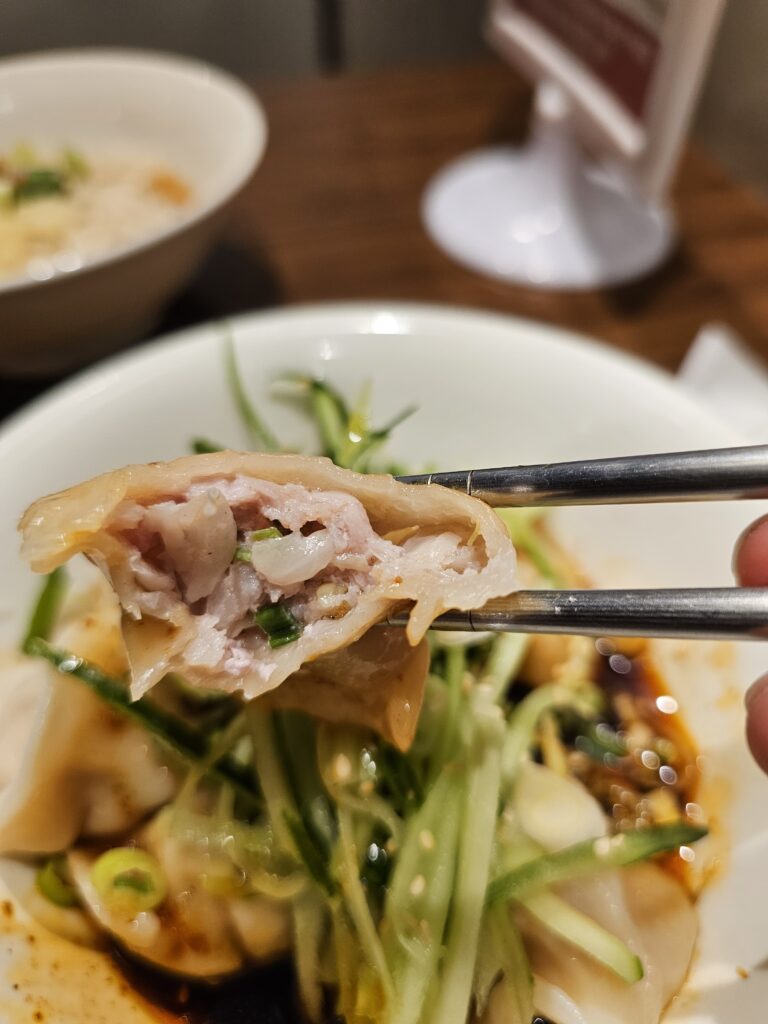
The dumplings were really tasty. The dough wasn’t too thick and seemed quite fresh. The meat filling was well seasoned with some green onion mixed in providing a different texture and crunch to the mix. The spicy sauce had some chili oil and sesame in it and packed a pretty decent punch. It certainly left the mouth burning a little bit, which is always the tell tale sign of a good ol’ fashioned spicy dish! The cucumber provided a nice little crunch and blended in well with the dumplings and sauce. The dumplings themselves were well coated in the spicy sauce which helped to enhance the flavor of them even more.
Hot And Sour Soup
Hot and sour soup, of course is something that’s popular world wide and isn’t some unique soup found only in Taiwan. I couldn’t recall the last time I’d had it, and being a soup lover, I thought it was a good time to get myself a bowl during my Go Dumpling visit.
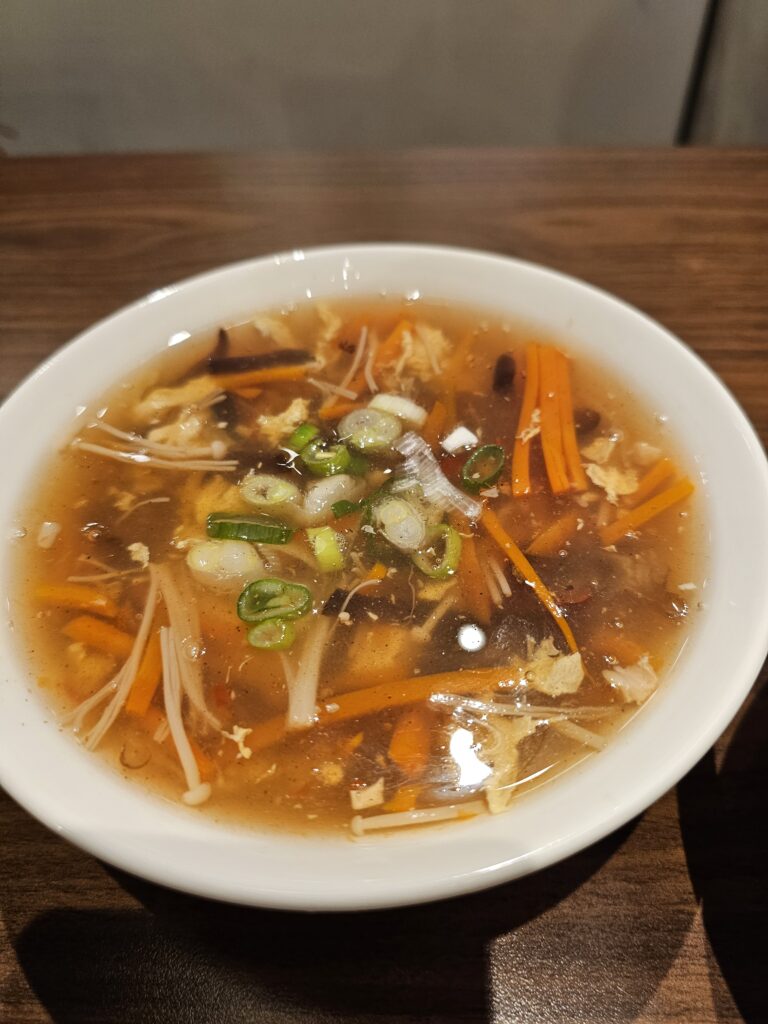
This was a good sized bowl of soup and was only 50 NTD ($1.55 USD)! The soup had carrot, a couple of different types of mushrooms, egg, chicken, green onion, and tofu. Typical trimmings for a hot and sour soup.
The soup was flavorful and tangy with that familiar balance of spicy, sour, and savory flavors. After a long day of going all around Taipei this was a nice comforting bowl to sit down and enjoy. After eating a few spoonfuls I quickly remembered why I enjoyed this soup so much and questioned why I hadn’t had it in so long, lol. The complex combination of tangy, spicy, and savory flavors, the thickness of the soup broth, really makes the soup memorable, especially when it’s well-made, which this one was.
Sesame Oil Noodles
Something that I hadn’t had, but sounded simple yet tasty, was the sesame oil noodles.
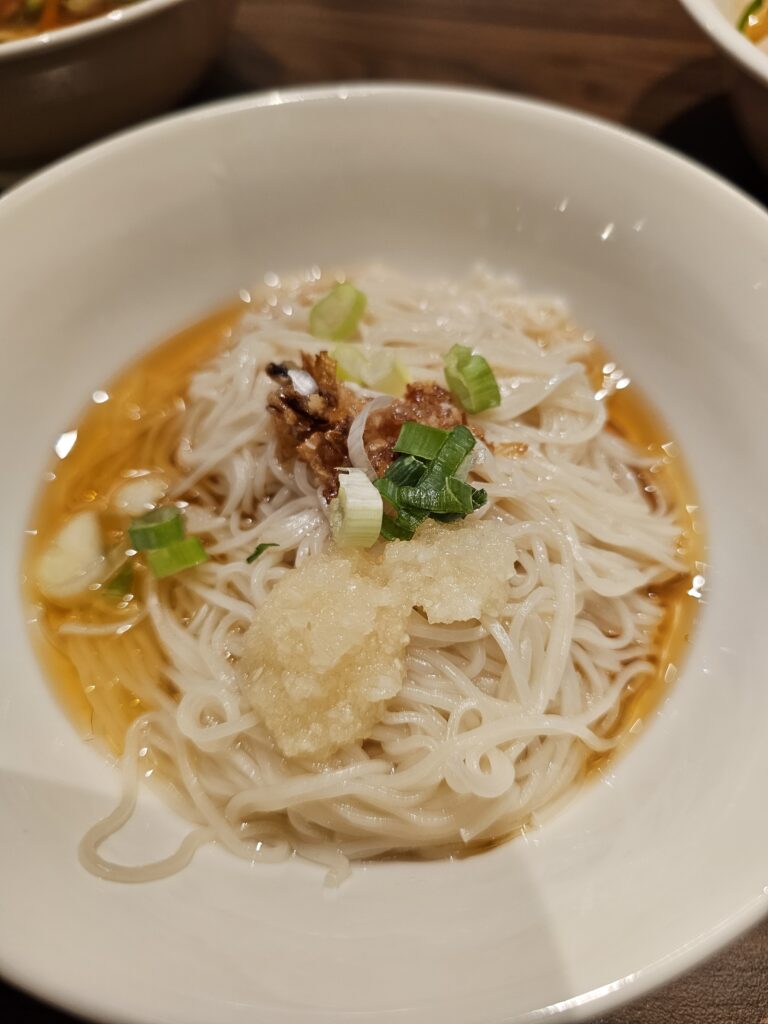
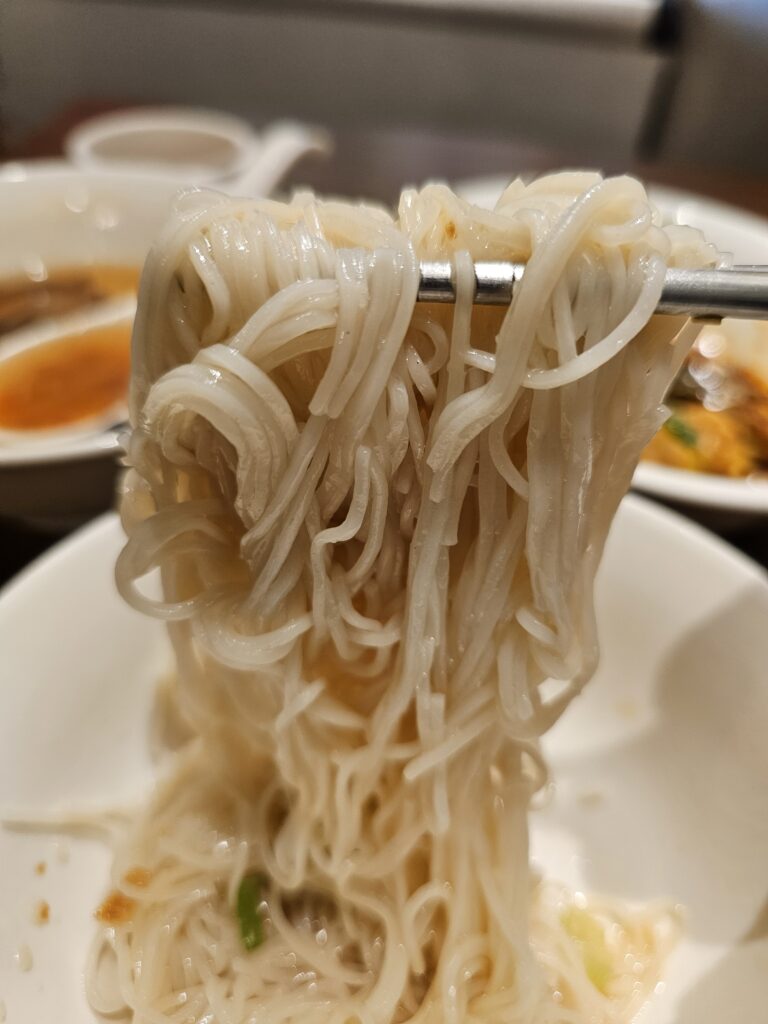
It didn’t get much simpler than this dish: noodles, sesame oil, minced garlic, and some green onions, that’s it. I enjoyed this dish. It was flavorful due to the sesame oil, the noodles were thin, quite soft, and very fresh. The noodle dish overall was very, very light and would go well as a side dish with just about anything, especially a heavier kind of meal.
Final Thoughts
Go Dumpling is a solid little restaurant to grab some food if you’re in the Shilin area. It’s not necessarily a place that you’re going to go out of your way to put on your foodie list when visiting Taipei, but it’s a good option that serves some great dishes. I found the food to be well-presented and just flat out comforting. The prices are incredibly cheap which is another bonus and adds to the allure!
-
Charming Wei Chuan Dragons Stadium: Is The Stadium Worth Visiting?
Table of Contents
If you’re a baseball fan and visiting Taipei during the CPBL season (Chinese Professional Baseball League), you have a couple of choices gto choose from in Taipei. There’s the Fubon Guardians, which I wrote about earlier, and there’s the Wei Chuan Dragons.
The Wei Chuan Dragons
The Dragons have an interesting history. They were a founding team, one of the original teams that started the CPBL. They had great success in the 90’s, winning the league in 1990, 1997, 1998, 1999. After the 1999 season it was announced the Wei Chuan Food Corporation, which owned the team, was disbanding it. It seems unprecedented and cruel to the fans, to disband a team after a season ending in a championship but that’s exactly what happened.
Fast forward 20 years: The team gets re-established in 2019 and plays as a minor league team in 2020 before rejoining the CPBL for the 2021 season. In 2023 the Dragons won the championship. They were back to their winning ways.
The Stadium
Out of all three baseball stadiums that I watched a game at, the Taipei Tianmu Baseball Stadium was by far the best. It has a large open concourse area with everything decked out in Wei Chaun Dragons signage and displays. The team store is located right next to the ticket booth and was popping when I went to it. People were definitely buying a bunch Wei Chuan Dragons apparel, hats, and other merchandise.
Tickets were easy to purchase, I just walked right up to the ticket booth on gameday and got a ticket down the first base line for (500 NTD, $15.56 USD).
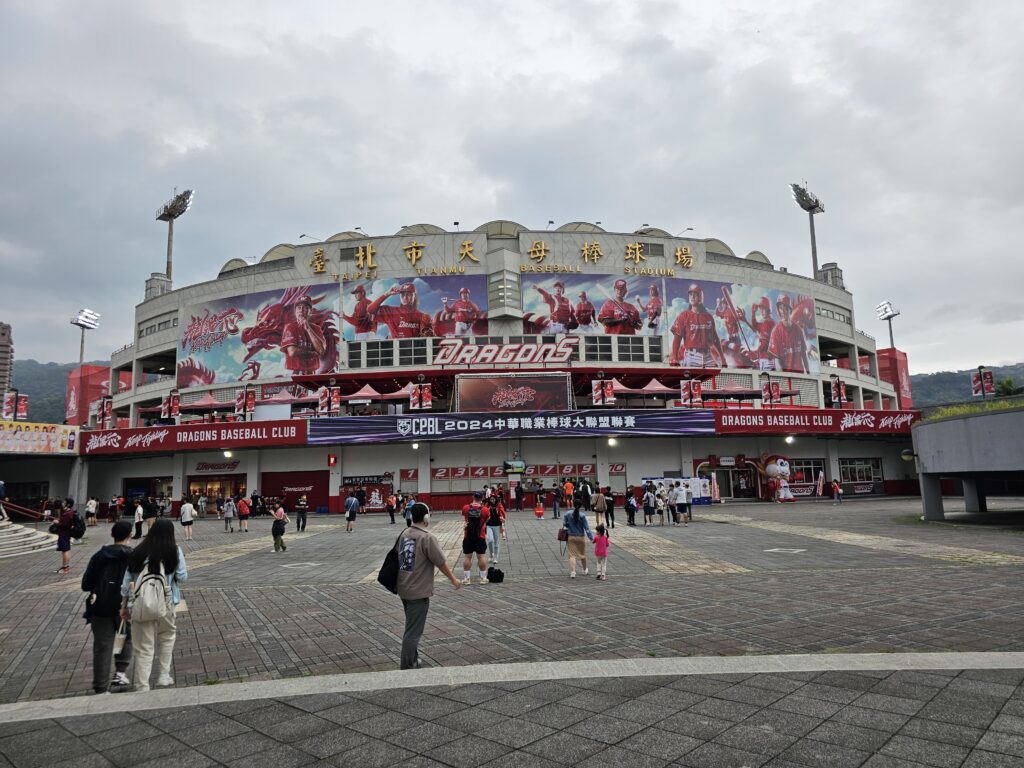
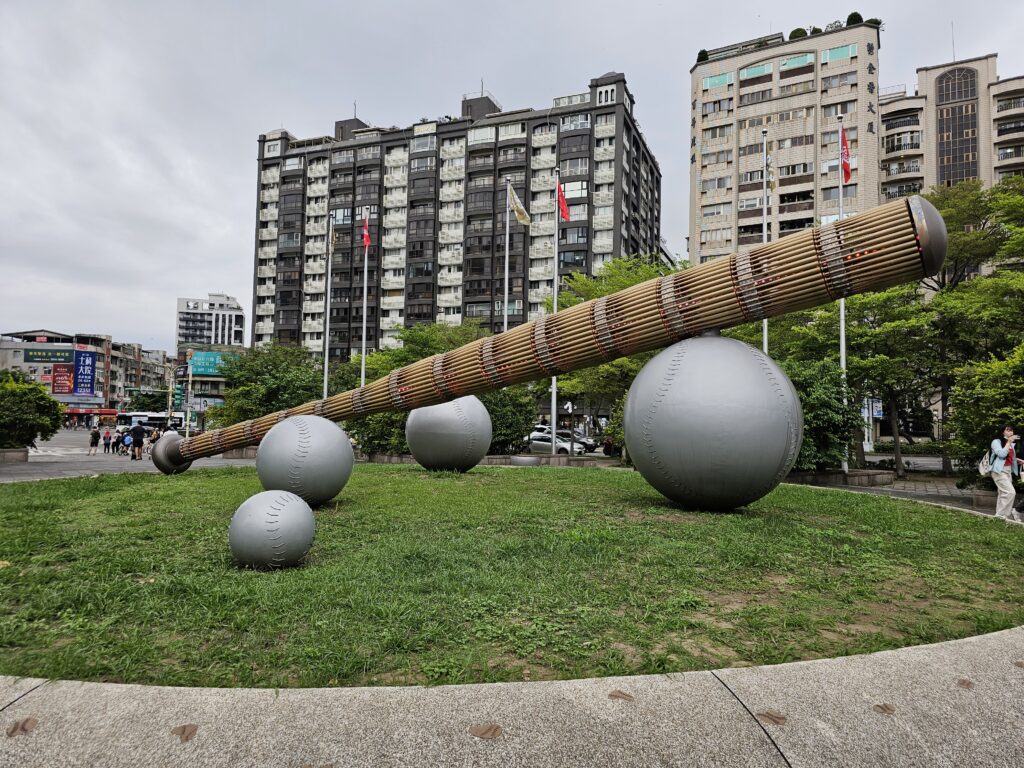
Once you walk into the stadium, there’s another concourse area with a bunch of food tents. There’s also additional food stalls inside the stadium. There’s a variety of food and snacks in general at this stadium to munch on while enjoying a Wei Chuan Dragons game.
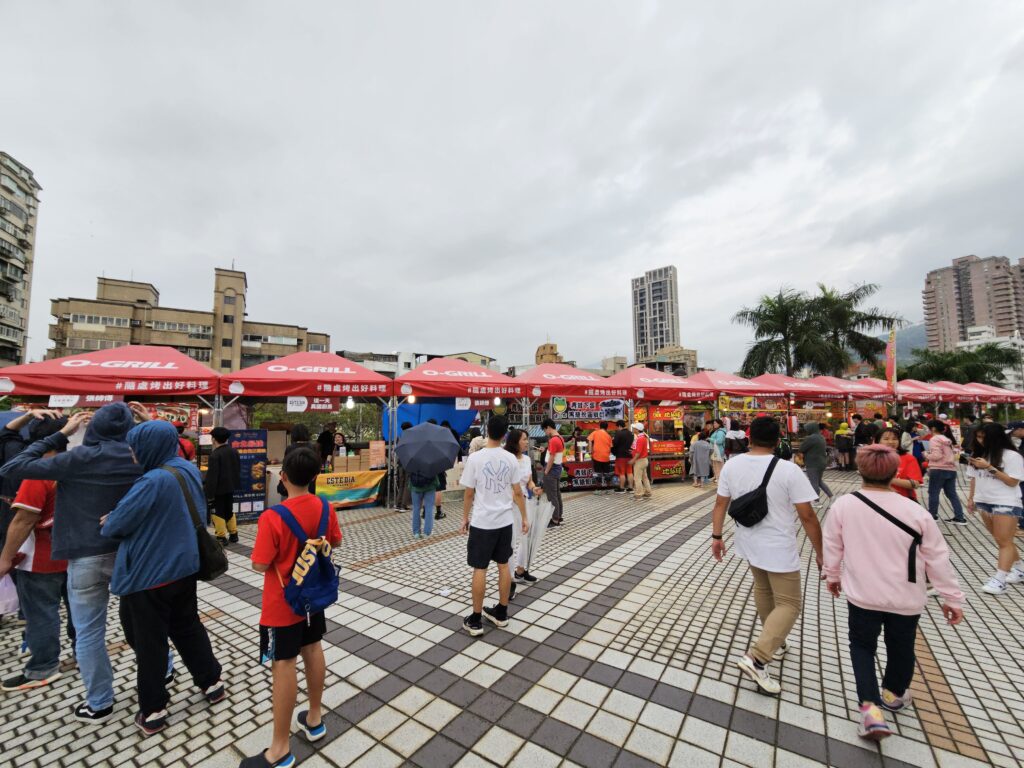
I opted for some sweet potato balls (80 NTD, $2.49 USD) and a cup of fries with honey mustard sauce drizzled over them (135 NTD, $4.20 USD) . Of course if you wanted to, you could bring in outside food and drinks as well with no issues which also provides further food and drink options!
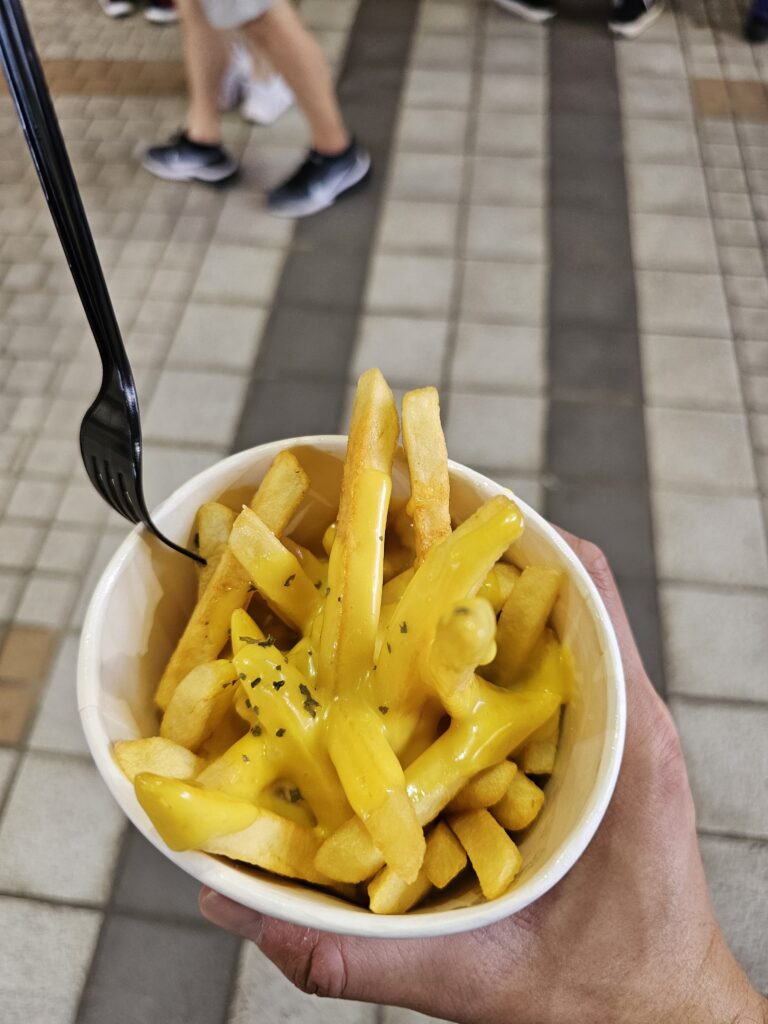
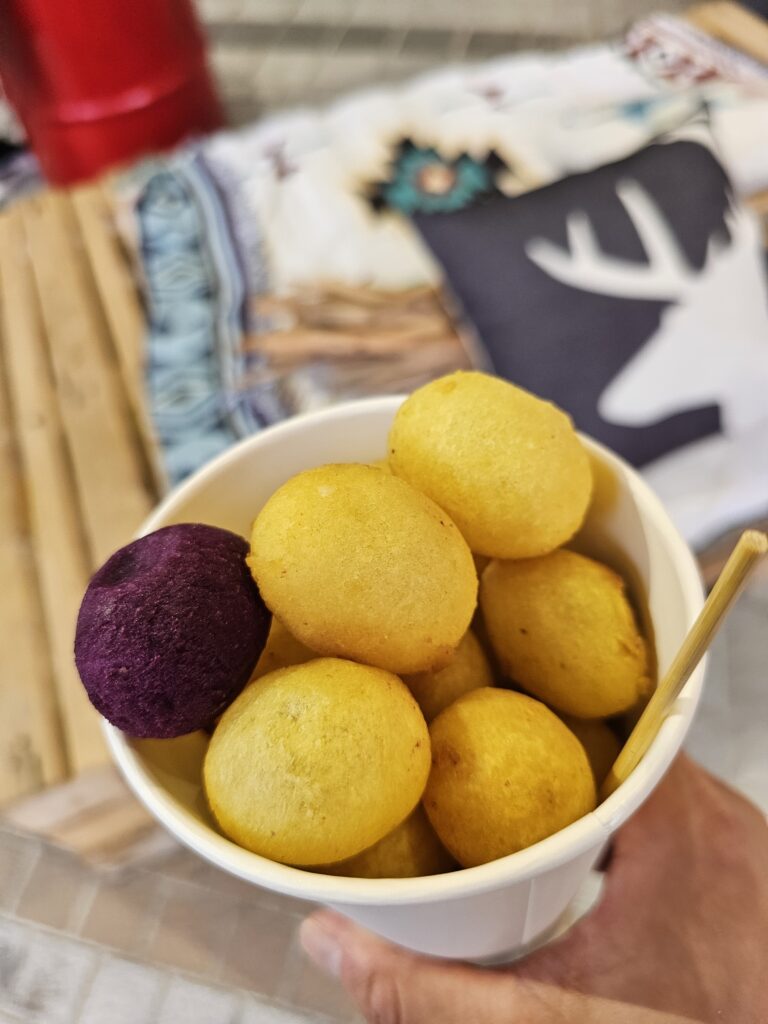
Walking around the stadium reminded me of a tiny Major League Baseball stadium. There’s a lot of banners, flags, lights hanging, and player portraits as well as portraits of the Wei Chuan Dragons cheerleaders hanging on the stadium pillars. It’s fun little atmosphere and definitely stood out amongst the stadiums that I visted while in Taiwan.
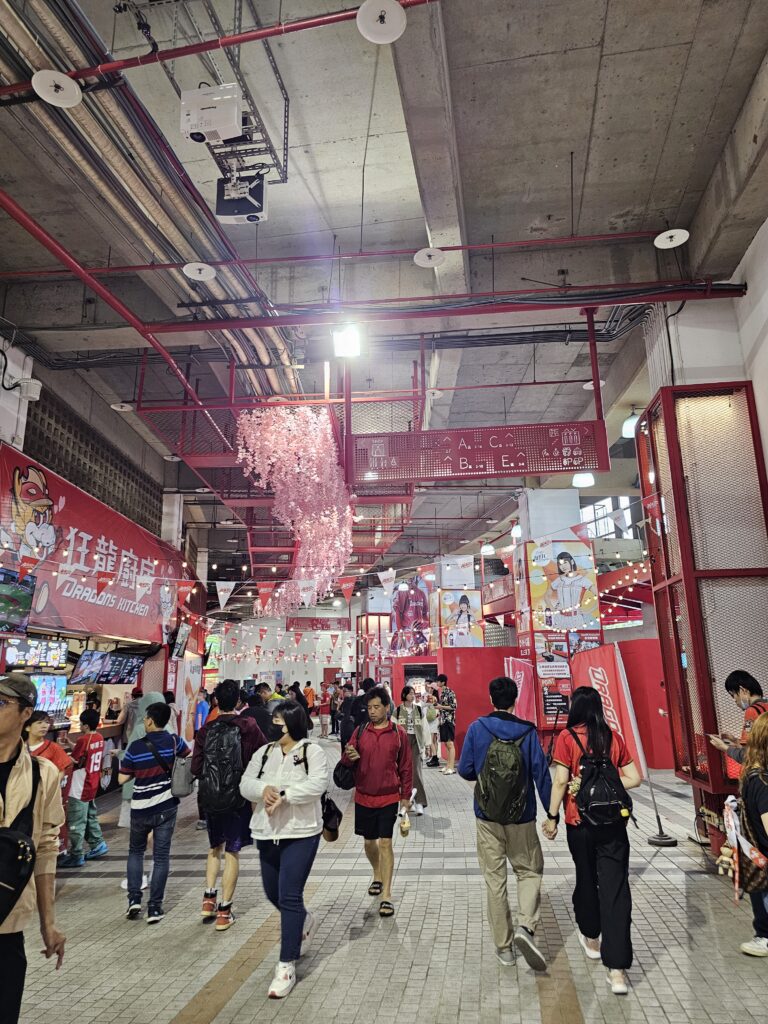
It’s a well cared for field and looks fantastic. With the stadium only seating about 10,500 people, it’s quite initmate as well. As with every game in the CPBL, a Wei Chuan Dragons game is a boisterous affair. Despite the rainy weather during the game I went to the cheers, songs, chants, were very much present.
Even though there were a lot of fans that had retreated to the inside of the stadium as the weather worsened, the crowd still watching the gam outside was very loud and enthusiastic. It really does make a big difference to the atmosphere and the game a lot more fun and entertaining.
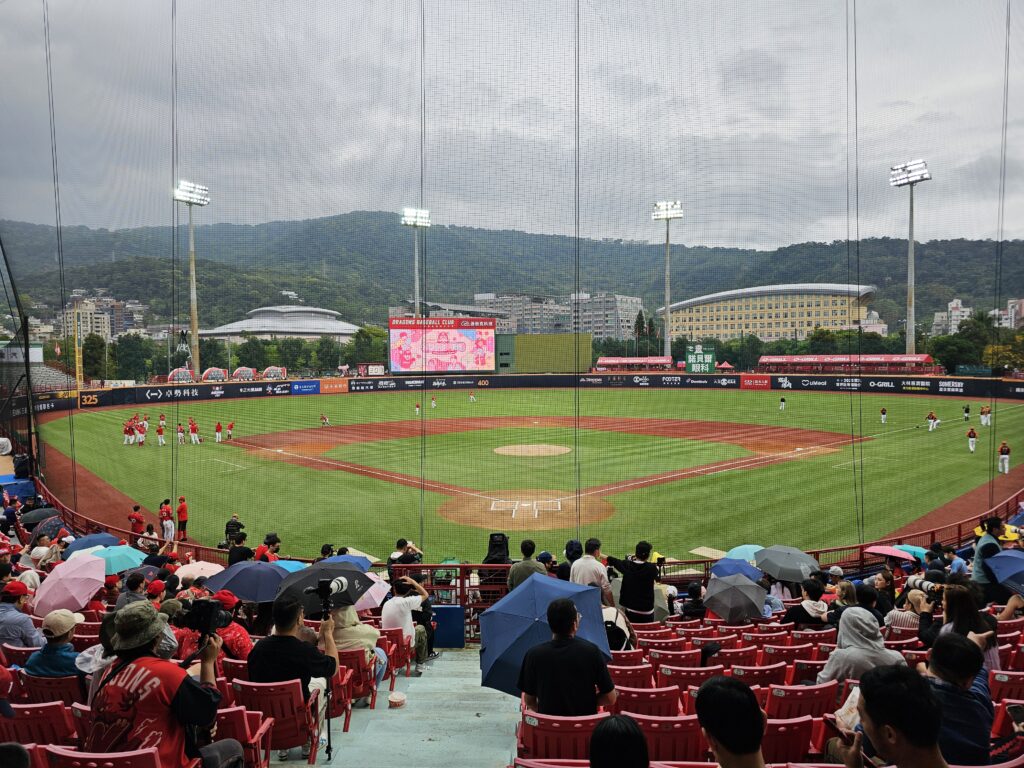
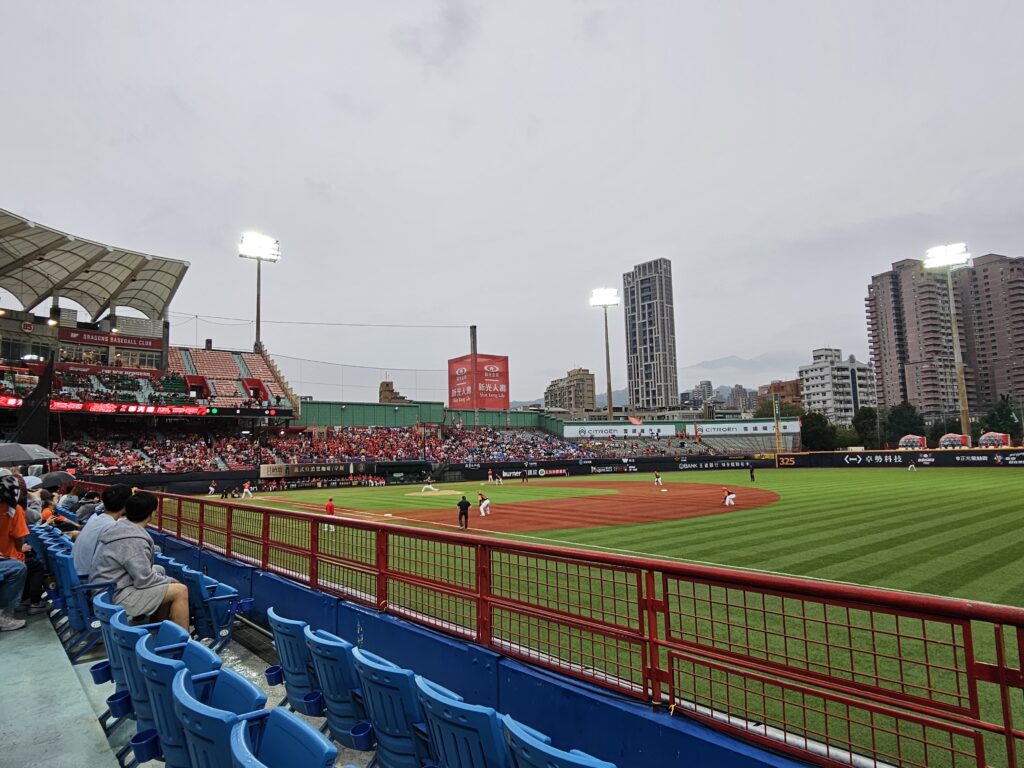
Is Taipei Tianmu Baseball Stadium Worth Visiting?
If you’re a baseball fan and only have time to watch one game and one team while in Taipei then a Wei Chuan Dragons at Taipei Tianmu Baseball Stadium is the team and stadium to visit. No offense to the Fubon Guardians, but the Taipei Tianmu Baseball Stadium is certainly superior and offers a much better gameday experience. There’s more food options, the team store is larger, and the team (the year I went) was better. It’s an overall fun experience and is definitely worth catching a game at!
-
Unlock the Treasures of Taiwan’s National Palace Museum: A Captivating Journey Through Time and Culture
Table of Contents
If you’re a fan of museums and learning about a country’s culture and history, the Taiwan National Palace Museum is the place for you while visiting Taipei. Housing over 700,000 pieces of Chinese artwork and artifacts the museum is absolutely massive. Depending on how you like to enjoy your time at museums, you can easily spend half a day at the Taiwan National Palace. There’s a variety of different exhibits to view within the cavernous building and the surrounding area, which includes a huge pond stocked with koi fish.
The History Of The National Palace Museum And Its Artifacts
Originally established in China’s Forbidden City, the National Palace Museum has a history that dates all the way back to 1925. Due to fear of the valuable pieces falling into the hands of the Japanese, the musuem pieces were constantly on the move. From 1931 – 1947, the artifacts, artwork, and other objects of value, were shuttled within thousands of crates, from the Forbidden City to Shanghai to Nanjing to Anshun / Leshan then back to Nanjing.
In 1948, following the end of World War II, the Chinese Civil War resumed. It was due to the worsening conditions from this Civil War on mainland China that led to some of the artifacts being shipped to Taiwan. It’s estimated that about 22% of the original collection made its way to Taiwan. Much of it remained in China after the controlling Communist party had seized control of the National Beijing Palace Museum where many of the artifacts were being stored.
The collection was stored in the mountain village of Beigou, which is located in Taichung. Here it stayed in storage until a small exhibition hall was built in 1956 where a small sample of the artificats could be displayed.
By 1960 a special fund had been created for the construction of the National Palace Museum. It took over fiver year to build and opened in August of 1965. After 40 years traversing several cities, the many artificats, artwork, and other valuables, had found a permanent home.
The National Palace Museum Experience
The National Palace Museum isn’t located near a subway exit so it’s a little more complicated to get to as opposed to some of the other attractions and will require taking the bus if you plan on taking public transportation.
Once you do get there, you are greeted to a huge tree-lined walkway with the massive National Palace Museum looming in the distance. It’s really a beautiful setting since there’s nothing but lush greenery behind the museum. It takes your mind out of the busy city vibes of Taipei and transports you to another time and place in Taiwan’s history.
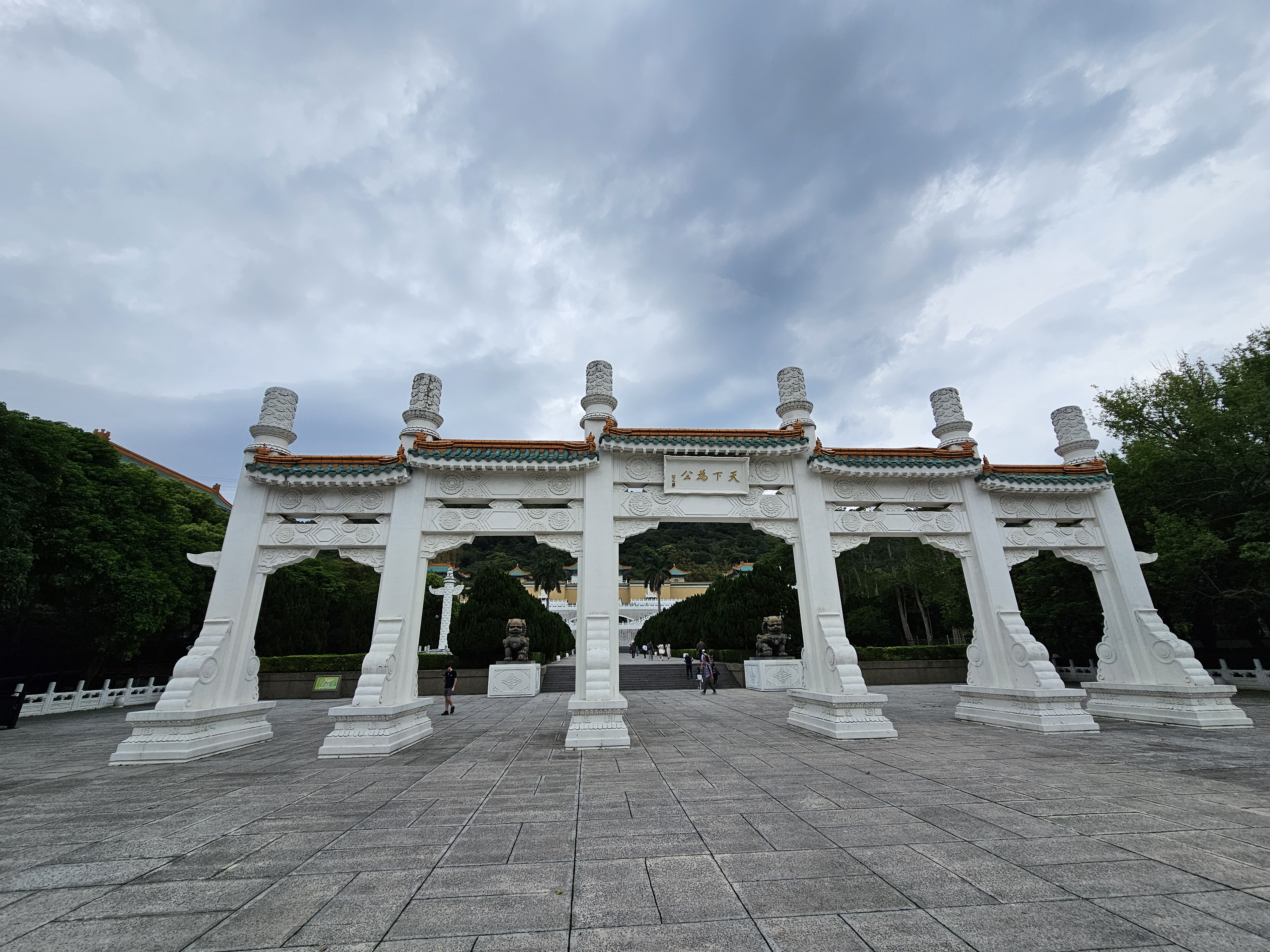
As you walk up to the museum, to the right there’s a path that leads to a huge pond that has walkways and bridges and pavilions with places to sit, escape the sun, and have a snack or drink. The pond is stacked with huge koi fish. It’s peaceful little place to take a stroll before or after the visit and take a breather. It’s cool little area.
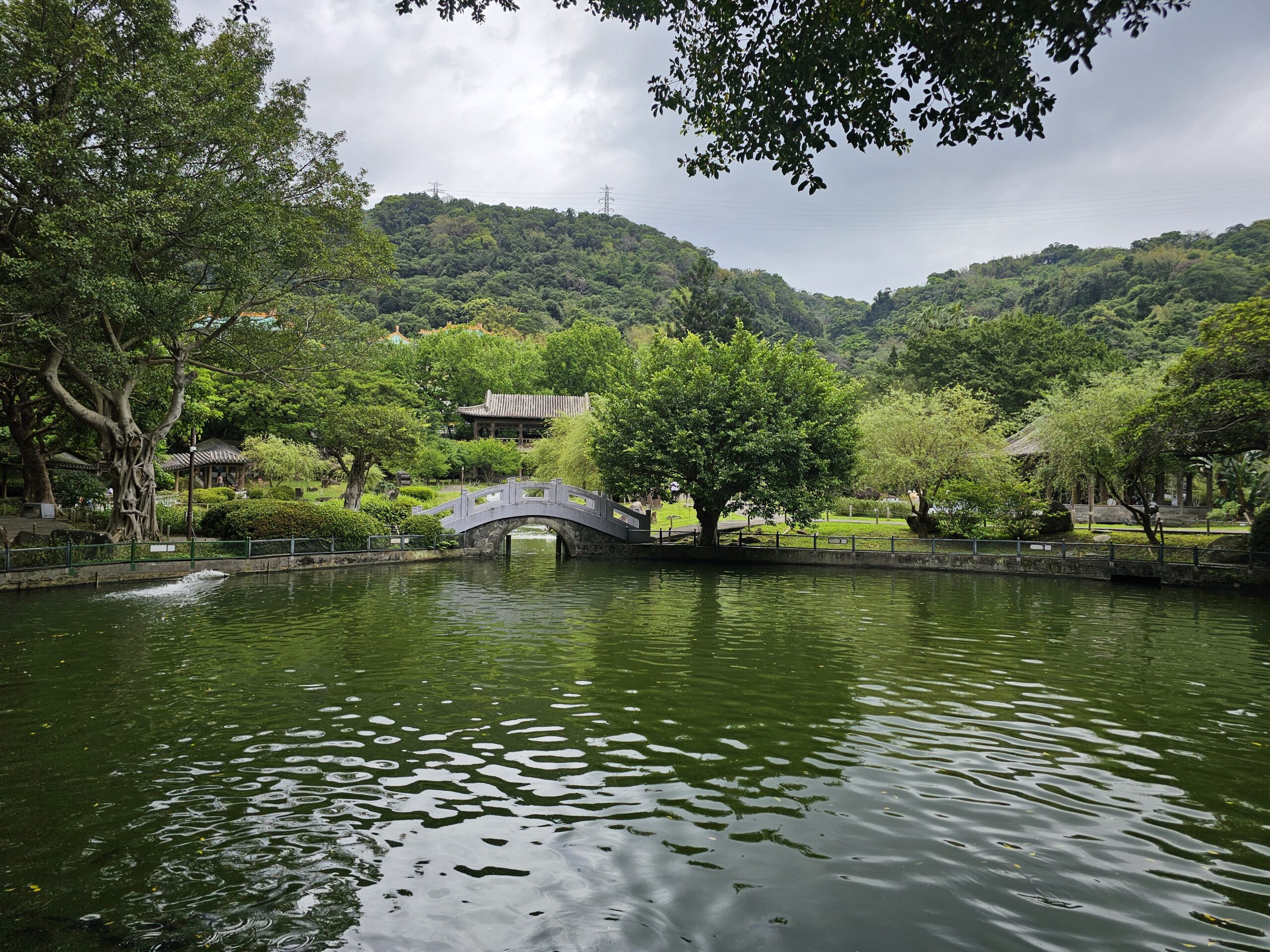
Once you make the walk to the museum itself, you’ll be impressed with the sheer size of the building. It’s HUGE. The price of admission is 350 NTD ($10.89 USD).
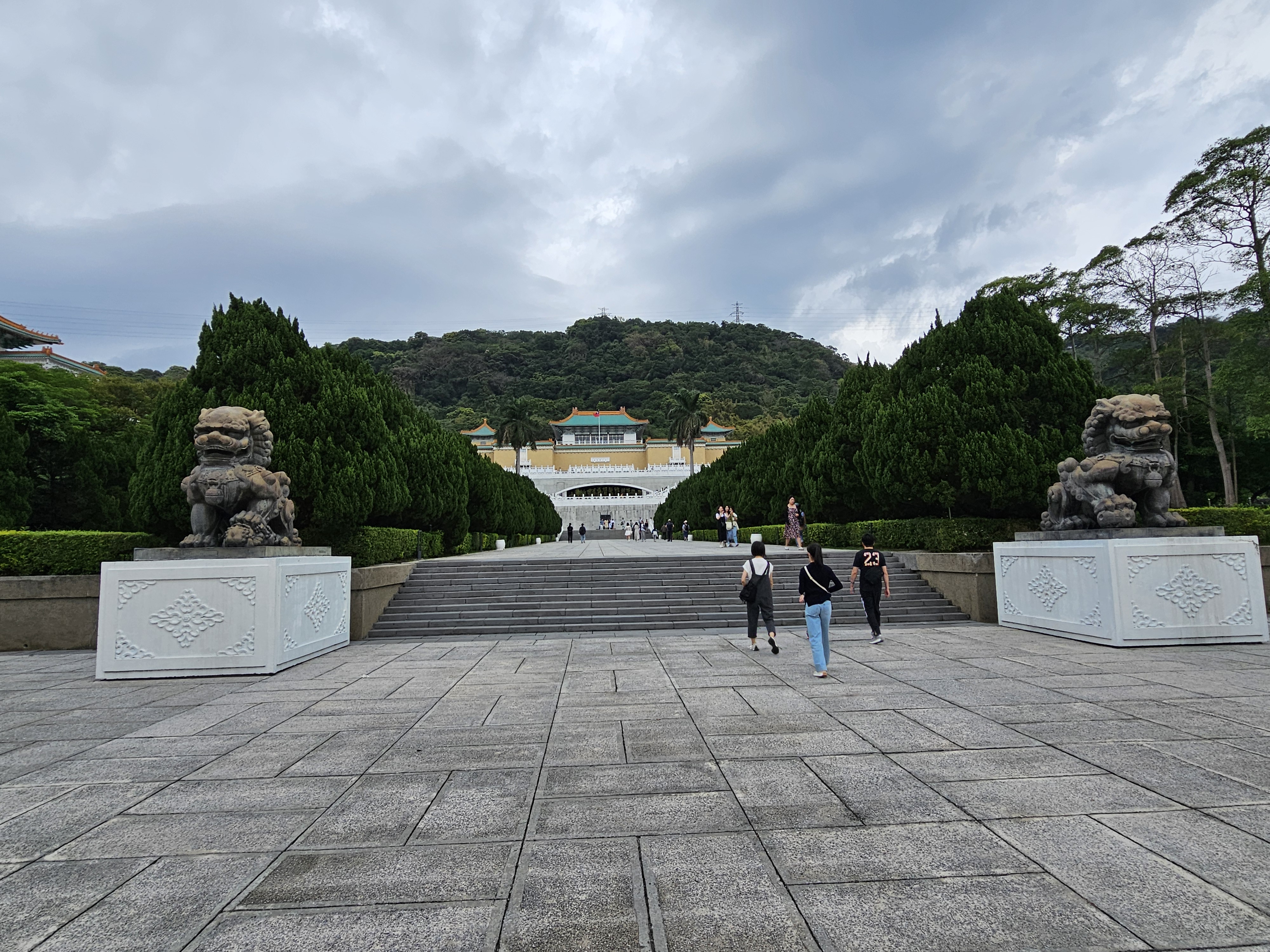
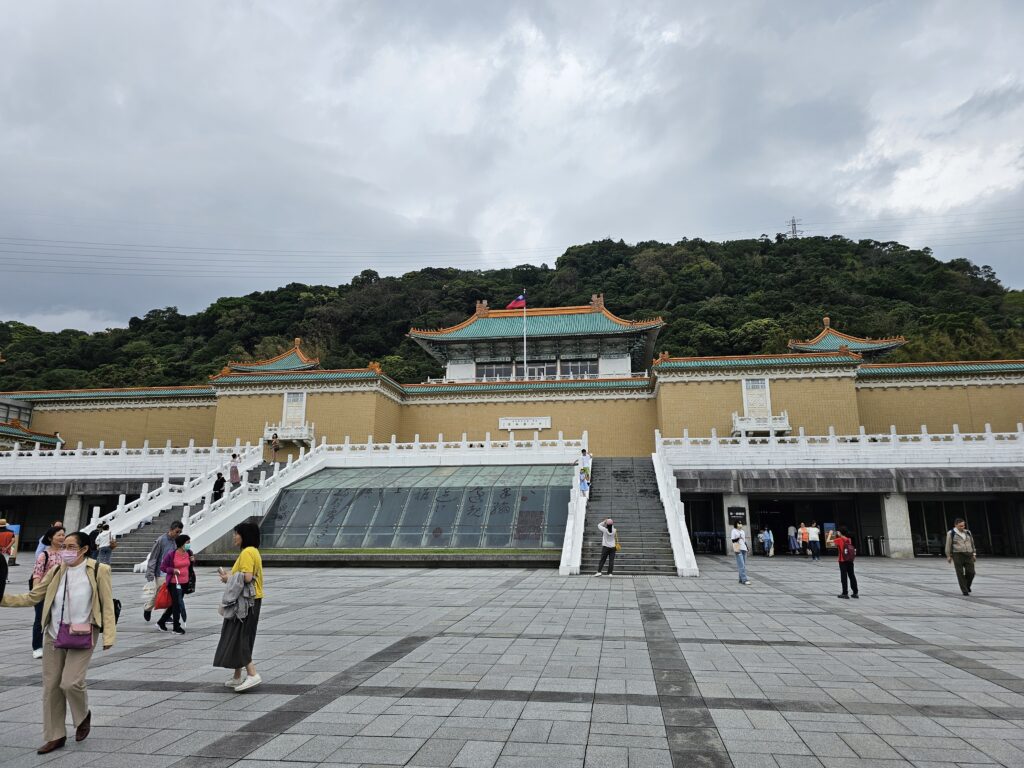
There’s multiple levels here, each absolutely packed with exhibits stocked full of all those artifacts, artwork, and other valuables that had made the journey through all those cities decades ago.
Notable Artifacts
In total, it’s estimated the museum has accumulated nearly 700,000 artifacts. Of which, only about 1% is exhibited at a time at the National Palace Museum which is about 3,000 items. Exhibits and items can get swapped out and the remaining items are stored in temperature controlled vaults.
Of all the artifacts and items at the museum, there are two which are very popular and famous.
The Jadeite Cabbage is a piece of jade that’s carved into the shape of a cabbage head with a small grasshopper hidden amongst its leaves. It’s a beautiful piece of craftsmanship.
The Meat Shaped Stone is a piece of jasper, which was carved into a piece of pork, which looks incredibly real.
Based off the official website, you’re not supposed to post any pictures of the actual artifacts on sites like this so I decided not to include any pictures of anything within the museum itself, unfortunately.
Is The National Palace Museum Worth Visiting?
If you’re going to Taipei the National Palace Museum should certainly be circled on your list of places to visit within the city. It has so much history within its walls. The exhibits are impressive and huge and are all very nicely displayed. The museum building is massive and it will take some time to walk through if you want to really see everything and learn about all the pieces displayed. The property itself is quite nice to walk around, especially the nearby pond area.
